More than 8,700 teachers from across the United States have signed the pledge to teach history honestly. This is an act of resistance to the GOP bills in at least 44 states that would require teachers to lie to students about the role of racism, sexism, heterosexism, and oppression throughout U.S. history.
The pledge states: “‘One has not only a legal, but a moral responsibility to obey just laws. Conversely, one has a moral responsibility to disobey unjust laws.’ – Martin Luther King Jr. (“Letter From Birmingham Jail,” April 1963). We, the undersigned educators, refuse to lie to young people about U.S. history and current events.”
We share some of the pledges below. There are many more. In addition to signing the pledge, many teachers are organizing. Read As States Build Barriers to Racial Justice Teaching, Educators Fight Back in Rethinking Schools.
If you are an educator, we invite you to sign the pledge. Everyone else, please share the pledges and tell your state legislators to defend the teaching of people’s history.

A complete and nuanced history education requires us to engage with multiple perspectives, amplify the voices of people who have been oppressed and marginalized, critically examine systems of power, and connect events of the past to our contemporary realities so that today’s students are equipped to be citizen leaders and agents of change.
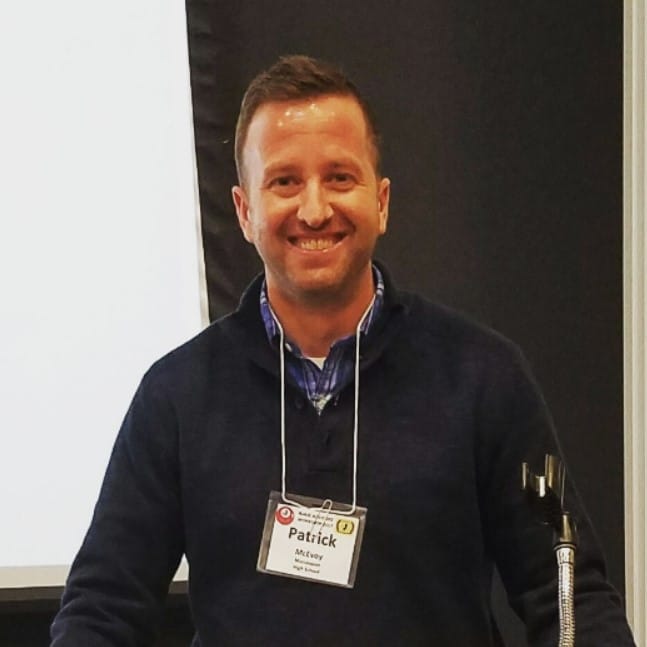
If we do not face and address racism, bias, and mistakes of our past, we are creating a generation of students who will not know reality. I cannot ignore facts from the past as a history teacher. If our politicians can look in the mirror and think ignoring the past is beneficial in respect to our country and citizens, then I encourage them to have a sit-down conversation with every teacher they represent in their state. History is not moving backward; it is moving forward.
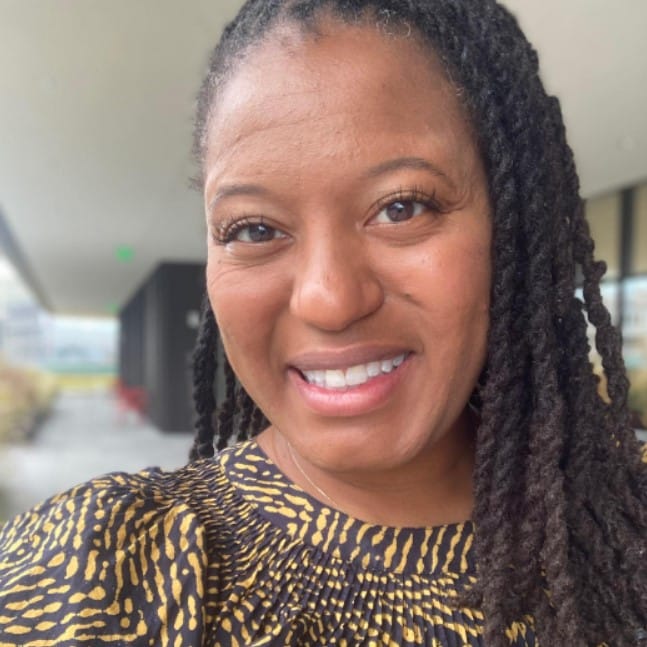
Students deserve access to the full array of American narratives and to know the facts that will help them build the future they want for themselves and their peers.
Defend people’s history teachers. Donate today.
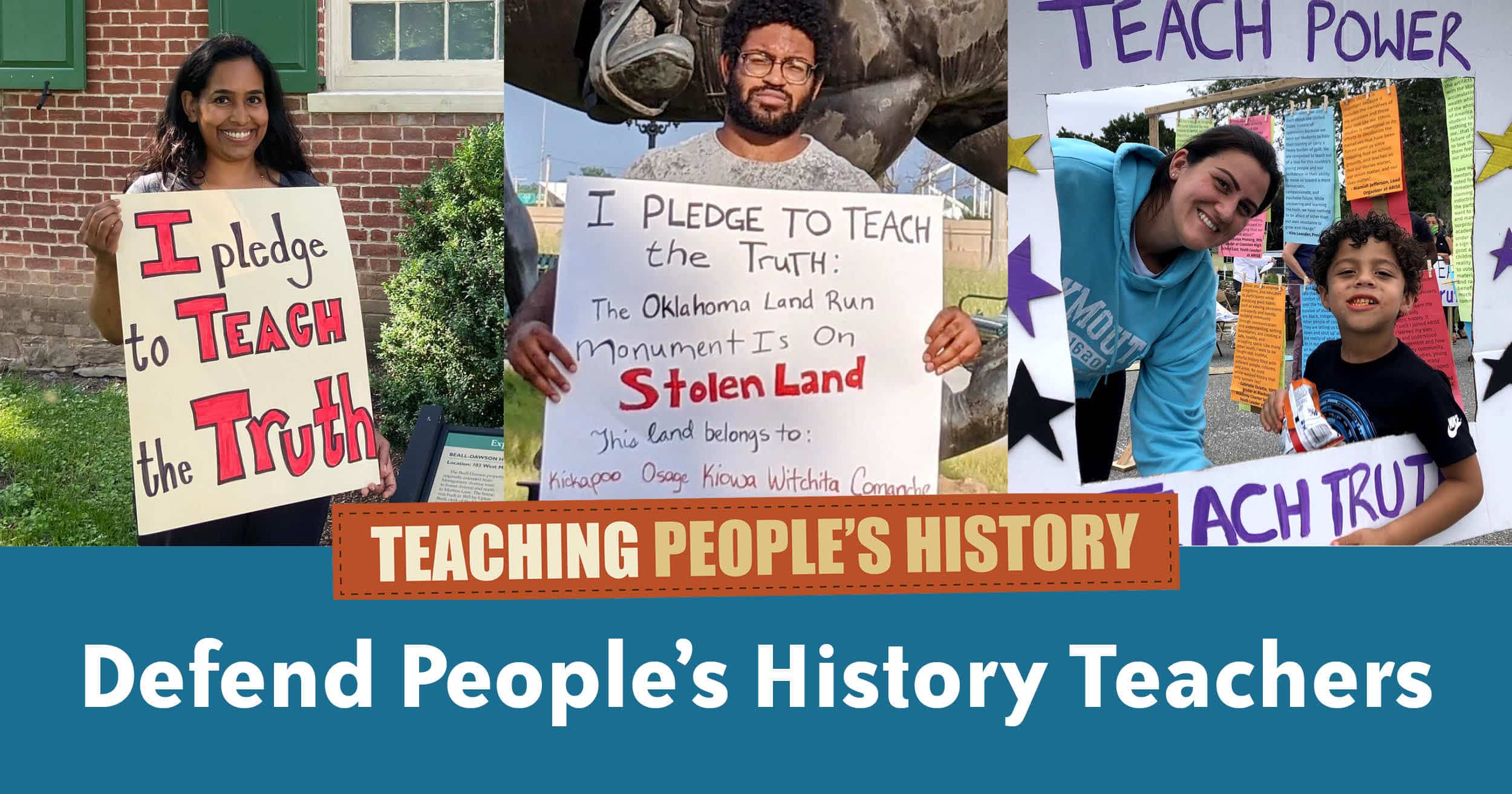
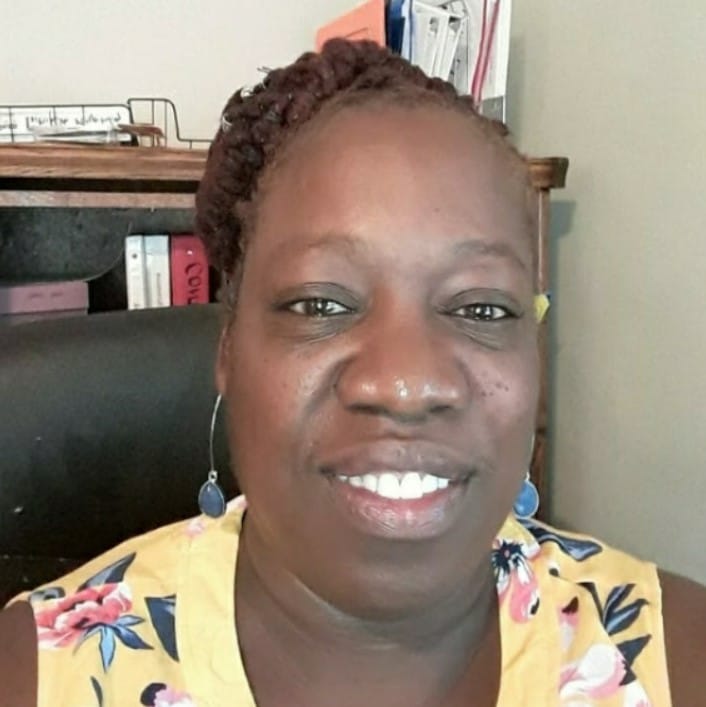
As an educator, I believe I have an obligation to tell the whole truth about our country’s past and our present, and to also encourage students to think critically about the direction we should take as a nation.
In order to effectively evaluate and adequately understand our nation, we must study and reflect on our past with regards to indigenous peoples and people of color, as well as countries we have subjugated for our own benefit. Without introspection there is no truth and without truth we’ll learn HIStory — but we will never learn the whole story. I resolve to present the whole story so that my students can be equipped to right wrongs and to craft a more equitable, inclusive story and an equitable, inclusive world.
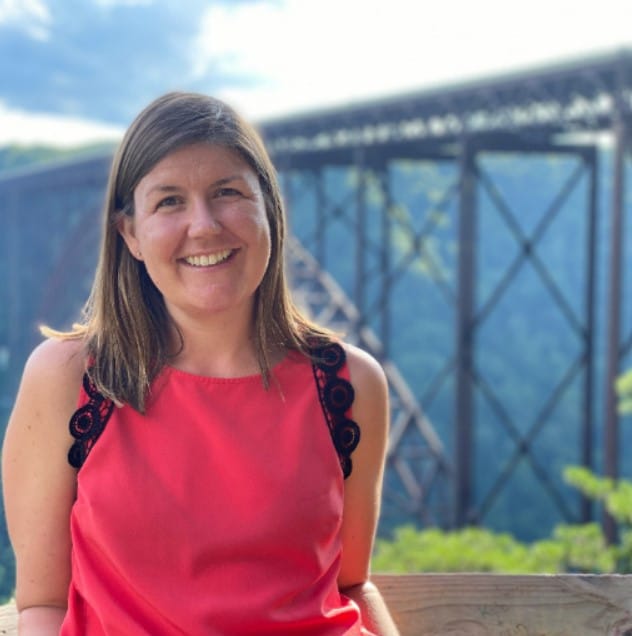
Students are future voters and need the truth to make informed, just decisions.
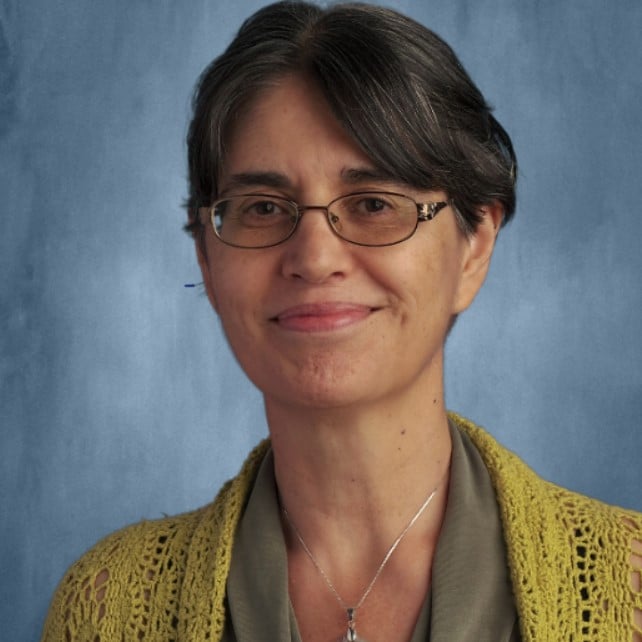
Children deserve to learn the truth so that they can become the unbiased citizens of tomorrow, and the United States can become an equal opportunity country for everyone.
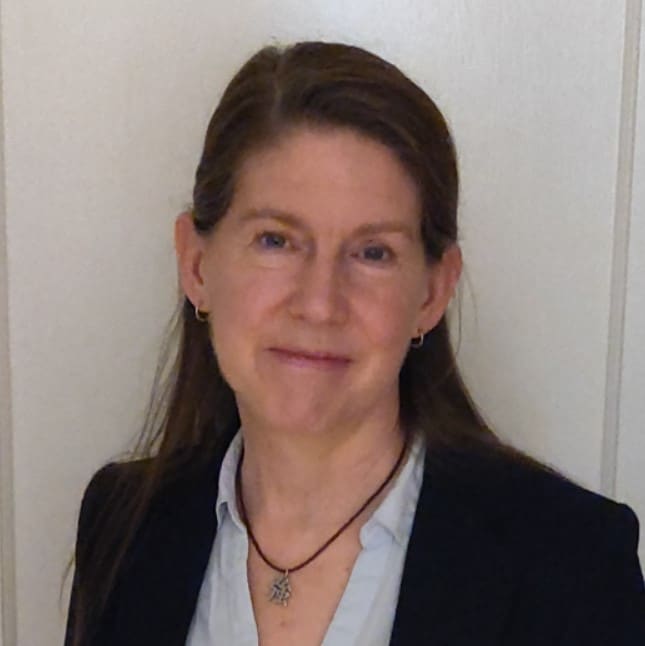
All children deserve to know the truth of our histories so that they are empowered to create the future they dream of.
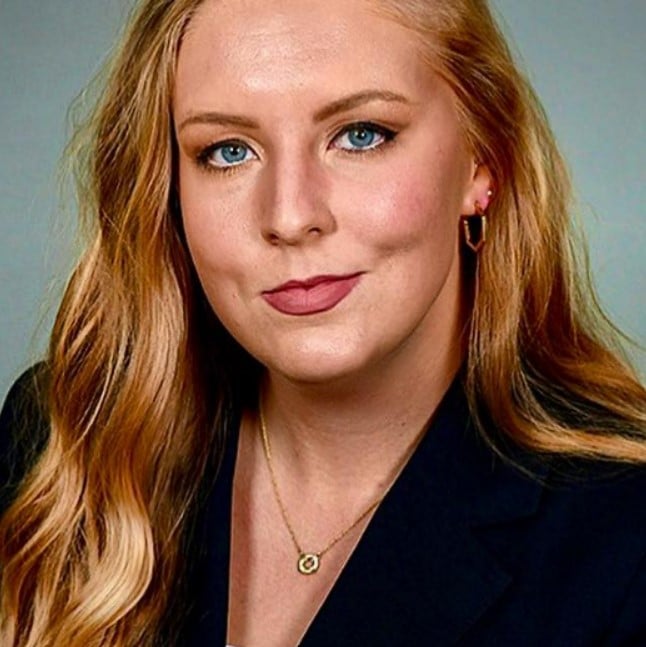
I will not be remembered as a woman who kept her mouth shut in the face of injustice.

There can be nothing more insidious than the eradication of a subject from the curriculum because of fear, intimidation, intolerance, or political indifference.
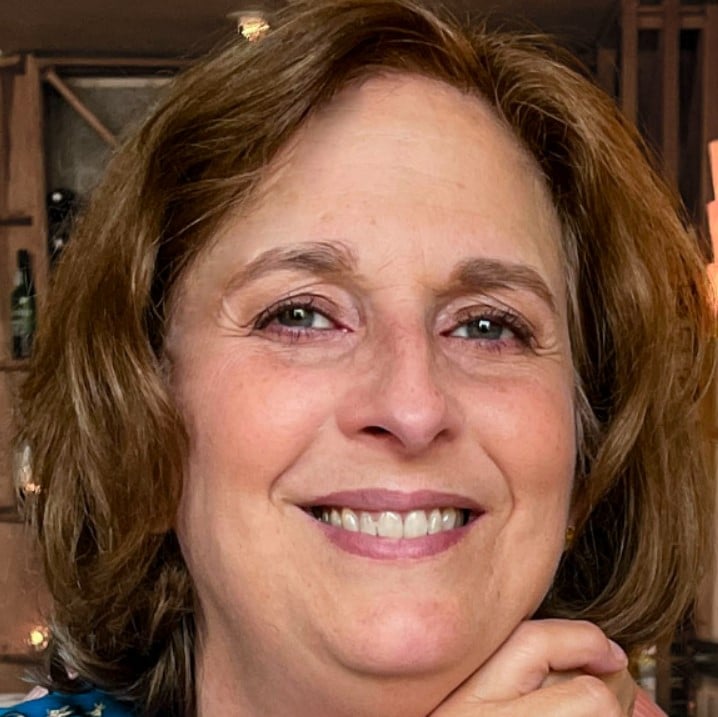
I was taught a feel-good version of U.S. history in school and I remember the shock of learning about things like Japanese American Internment when I got to college. I was taught a Eurocentric version of World History that did not address cultures outside of Europe, especially Africa.
As a historian, my job is to look at the documents and interpret those documents based on corroboration of evidence across sources from multiple perspectives to arrive at an interpretation. Real history is messy and makes us uncomfortable at times. But it is through those experiences that we learn and grow in our understanding of the world as a complicated place. Students should learn the critical thinking skills that will allow them to be functioning members of society.
After teaching about race, class, and gender in U.S. history, I watched my students grow angry that they were in the last years of their public education and no one had ever mentioned these topics.
Research has shown that students, who do not see their history in school, do not do as well as their peers.
Our job is to arm students with the ability and desire to seek the truth, which is often disturbing and almost always astonishing.
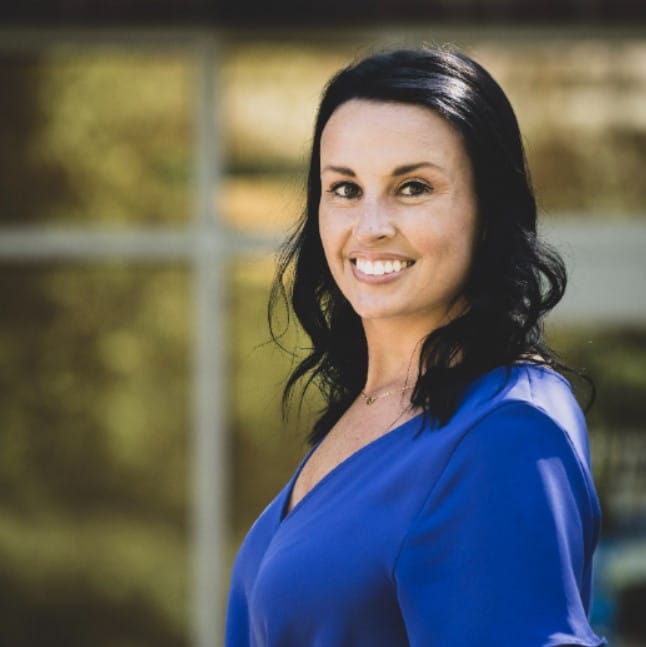
I have spent my entire professional career in public education and have earned four degrees related to public education (3 advanced – M.A., Ed.S., and Ed.D.). Before any lawmakers begin to draft policy related to public education, they actually need to take the time to LISTEN to public educators on the front lines to learn what is actually going on in public schools. They should take time to visit public schools to observe the great work teachers are doing rather than listening to one-sided (often extremist) propaganda full of fear tactics.

I cannot accurately teach U.S. history without mentioning how imperialism, racism, and sexism shaped the development of this nation. Students are not harmed by learning the truth about past and present practices that have led to the inequitable distribution of wealth and opportunity. Instead, they are empowered to identify and work to dismantle unjust systems. It is this possibility, not the desire to protect young people, that motivates those who seek to prevent educators from teaching the truth.
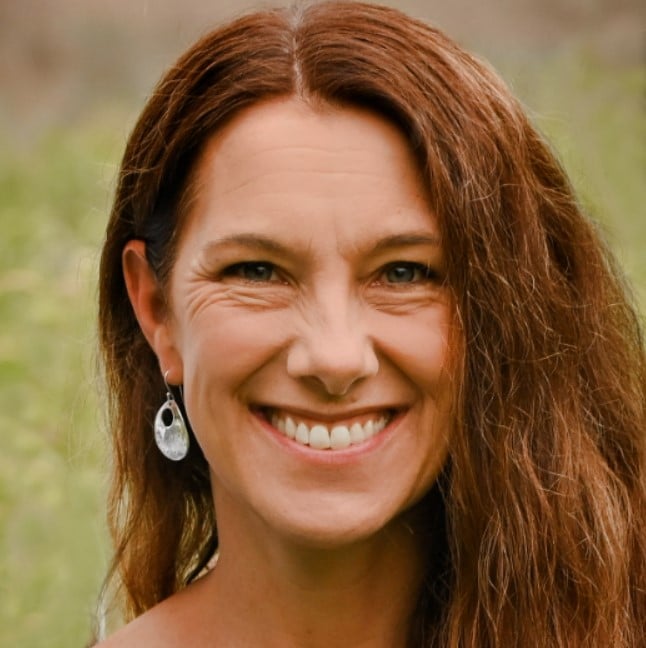
We cannot overcome racism in our country if we are not honest about where we are and where we have come from.
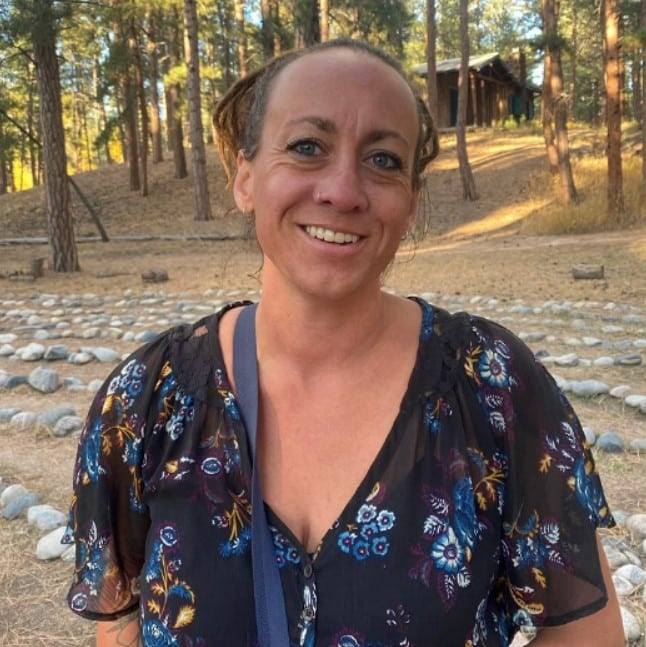
My students deserve the truth about THEIR history!
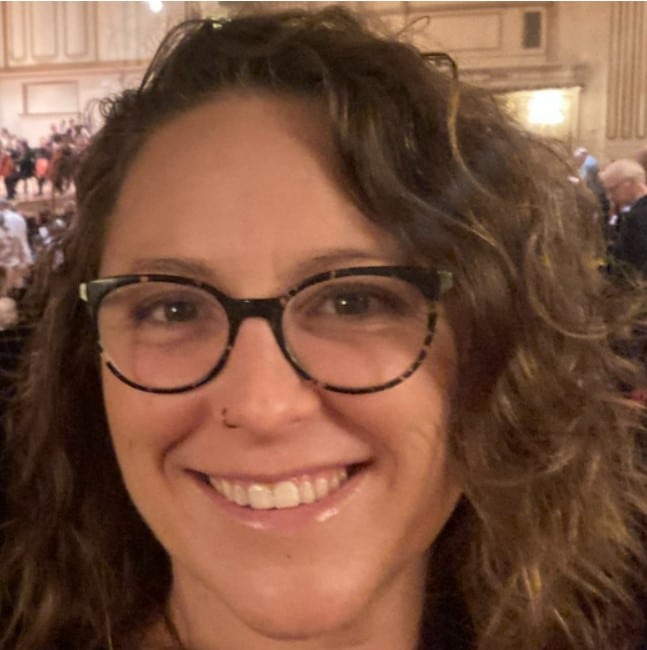
I owe it to the students I teach to honor them by teaching the truth and including all perspectives of history.
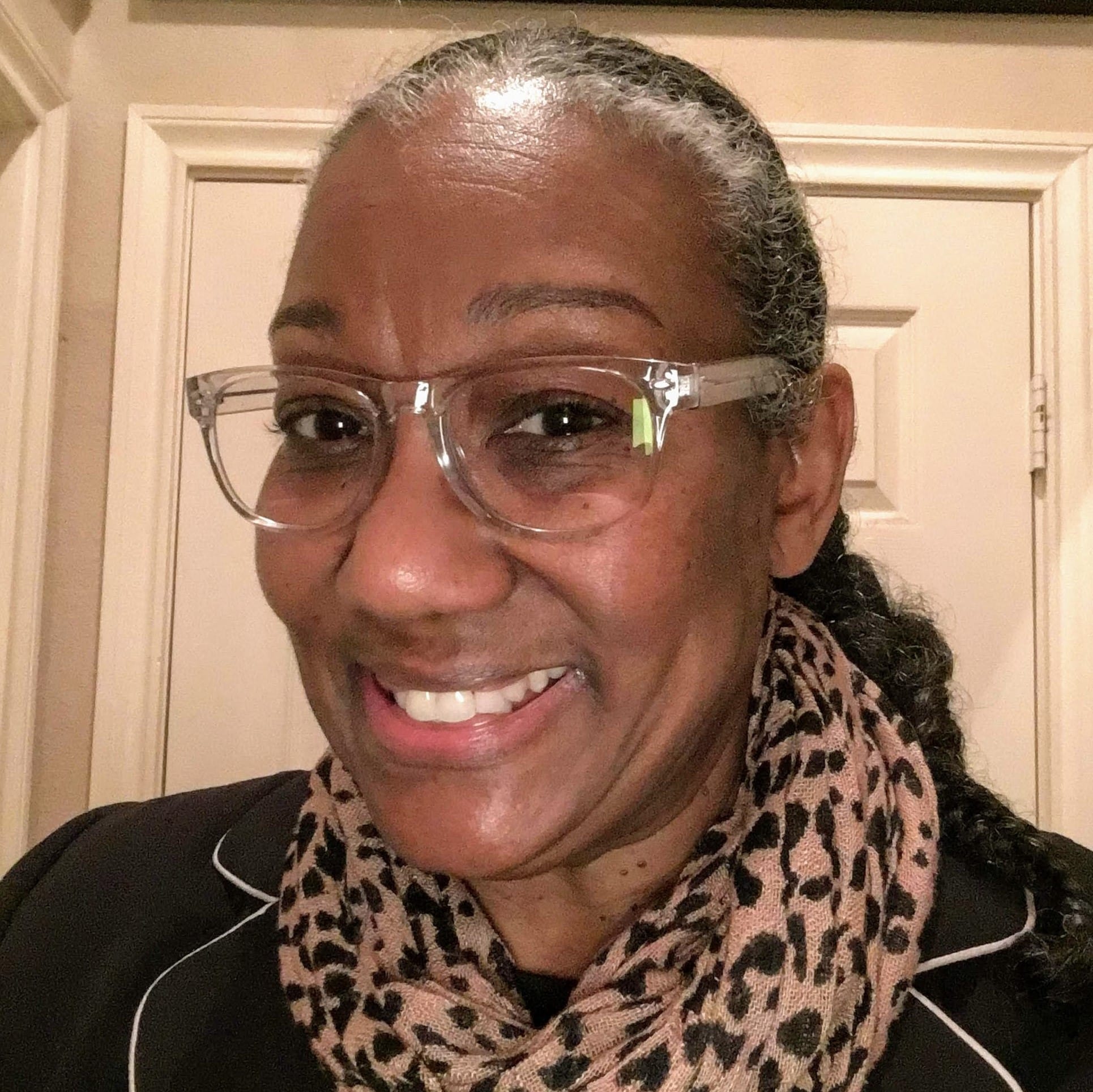
I teach in Texas and the bill about to become law harms my students. I will continue to teach truth to power because my students deserve to see themselves in history, to know that their ancestors were overcomers, and that they MATTER! To the governor: Too late!
Maybe the governor needs to visit my class to get an understanding of what real teaching looks like. Just in case anyone asks . . . I proudly teach at YWCPA, all day, every day! It is a very sad day in Texas when accurate authentic history is considered a threat to fragile feelings brought on by guilt and ignorance. As educators, we need to stay vigilant and be truth tellers.
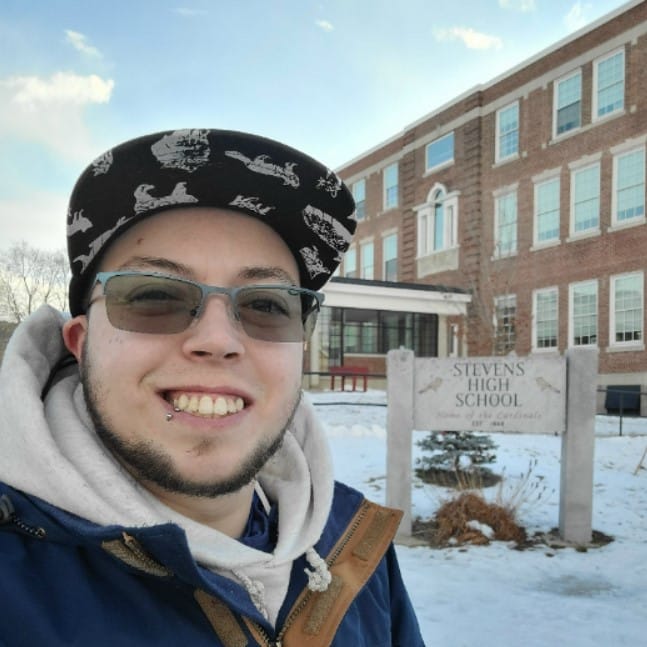
I refuse to be bullied by lawmakers who have never stepped foot in a public school. American history is not pretty, and I refuse to teach children a dumbed down, whitewashed version of it just to appease bigoted individuals. Teaching accurate history isn’t against the law.
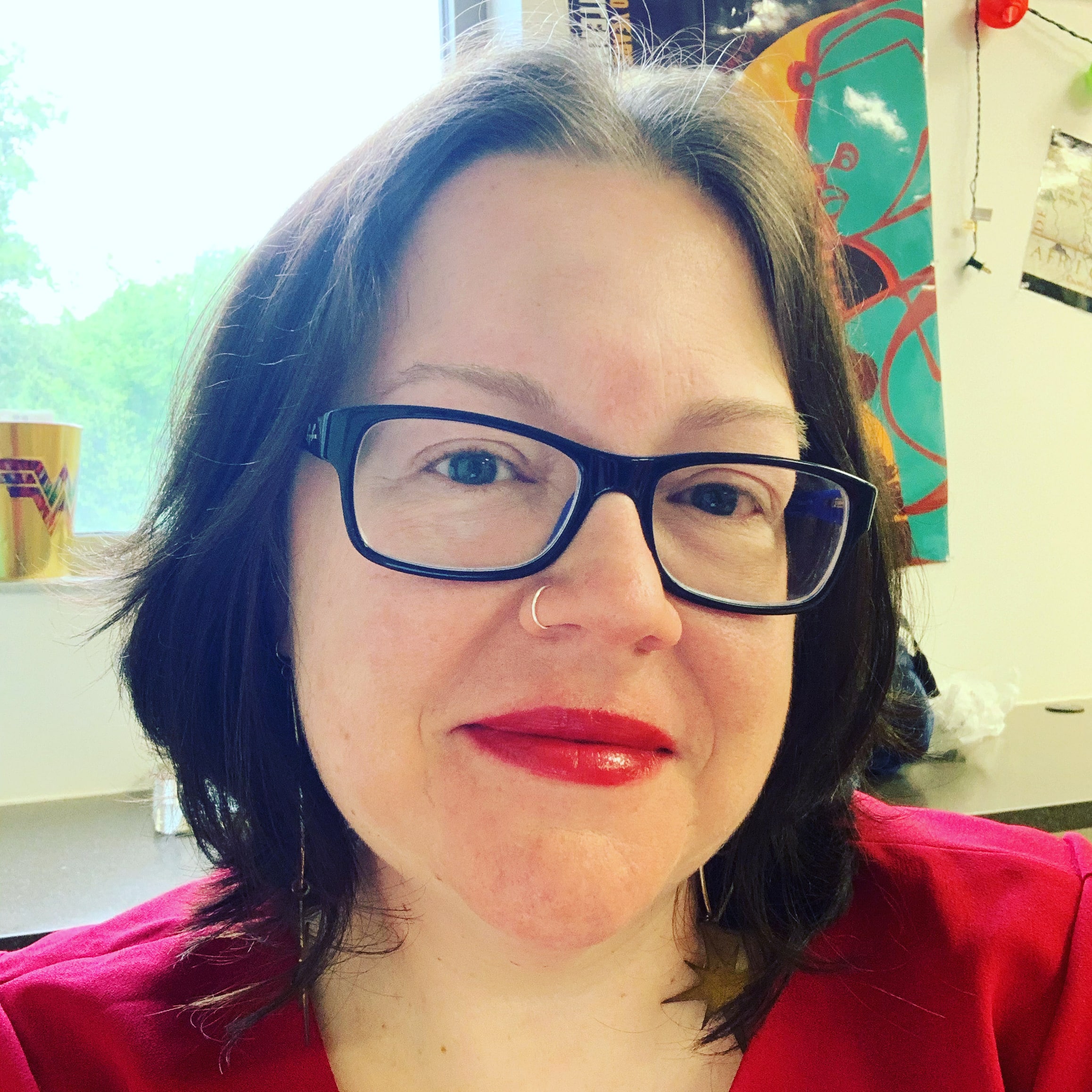
As a history teacher, I am committed to helping young people understand the past and how it connects to the present. It is my job to help educate and prepare students to be active and engaged citizens in the world with a full understanding of the ways that the U.S. has succeeded and failed to live up to its ideals.

Our students deserve far more credit than legislation like this grants them. They are compassionate and they care about the experiences of those like and unlike them. They deserve to learn the truth — it is in fact their right — and it is our responsibility to teach it to them, regardless of how it makes us feel and our own personal political affiliation.
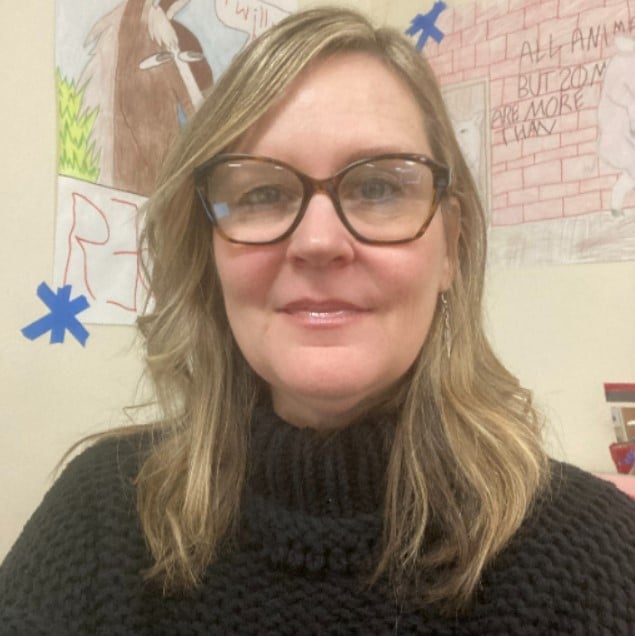
To understand the society we live in currently, we have to spend time analyzing the past without censorship.
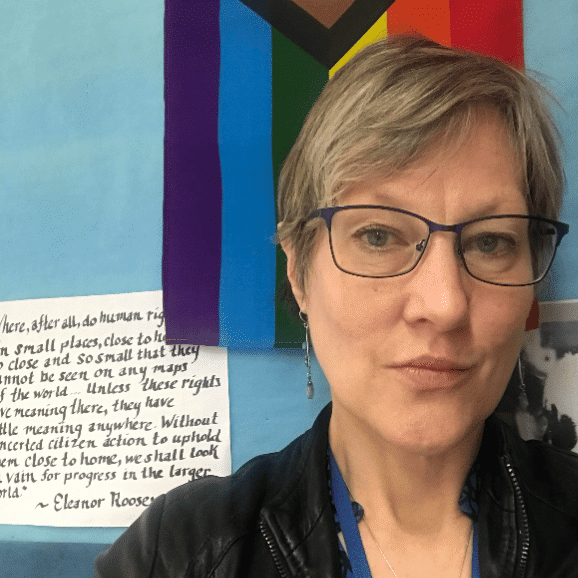
I have always believed in teaching the truth and our role as educators is to give our students opportunities to explore and question not only history but current events.
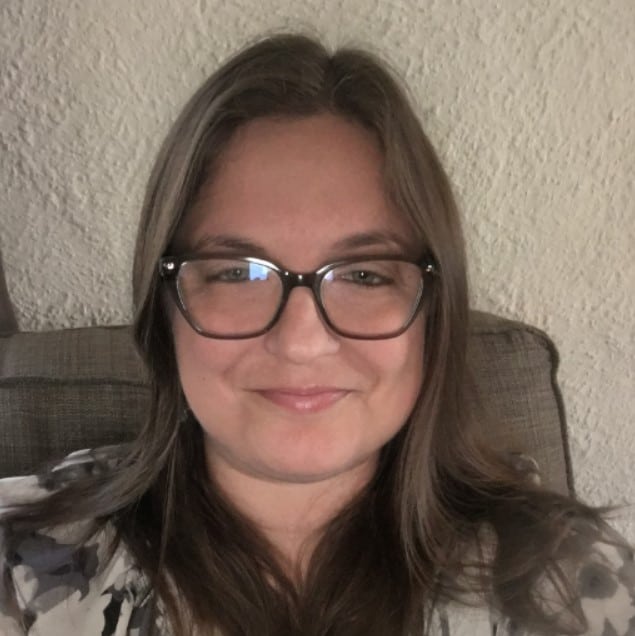
I fundamentally believe that this nation will never move forward unless we acknowledge the truth of our past, own it, and find ways to address the systemic issues it has created.
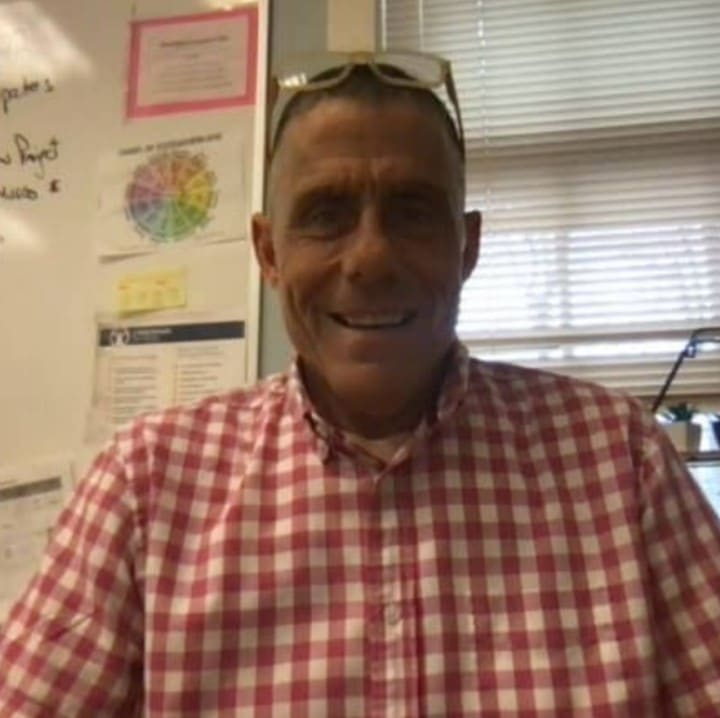
Now, more than ever, educators must teach with their heads and their heart. This means we filter out the fringe, ignorant chatter that is attempting to intimidate us into teaching selective history. History is history — it happened. It was not always pretty, nor was it always kind.
It is incumbent upon us to teach the truth about our past, to help our students understand the context of our past, and think deeply about, and learn from our past. This is a critically important time for educators to teach truth, and do it thoughtfully, intelligently, and empathetically. It’s really not that hard, just use your head and your heart.
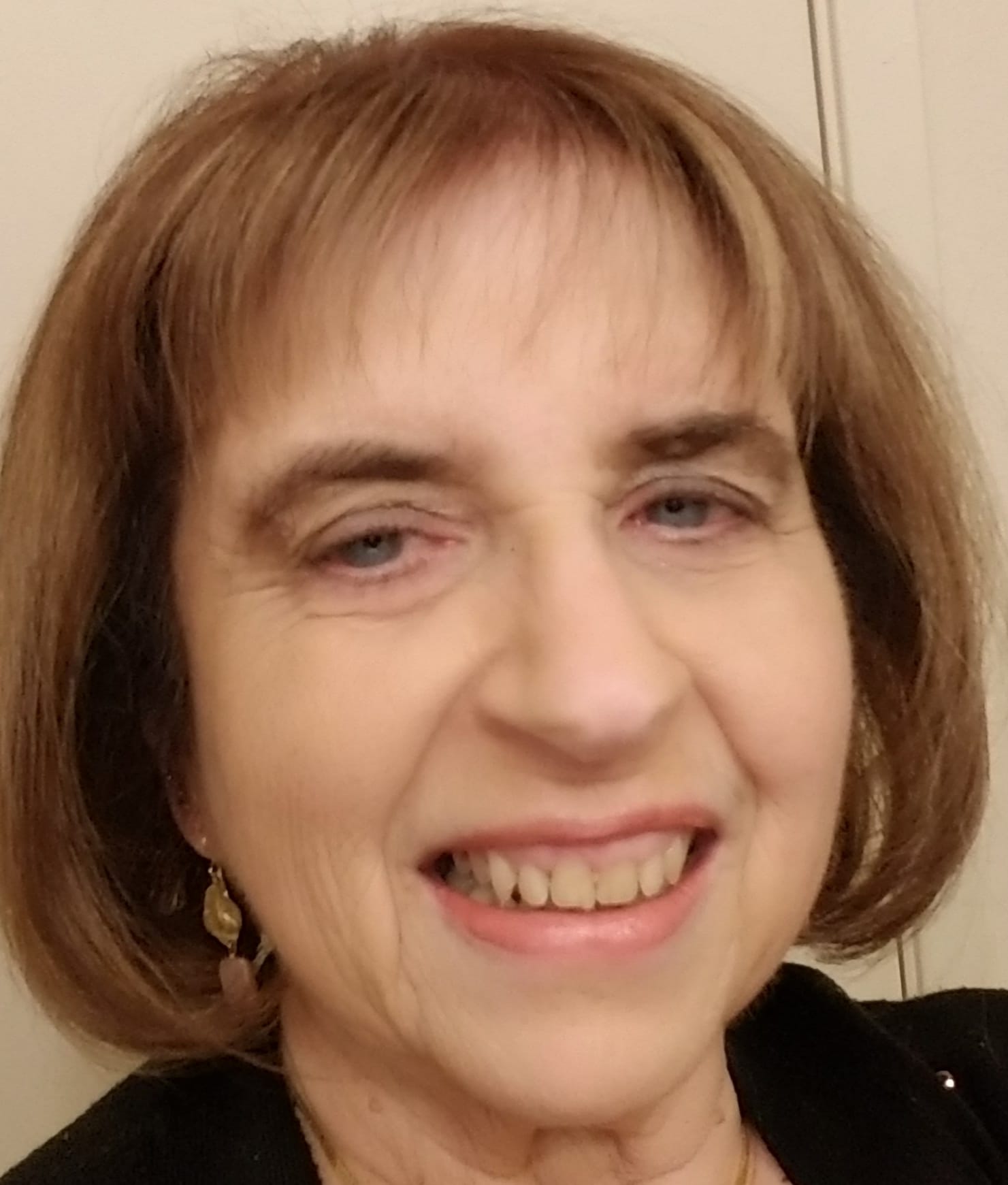
To teach less than the full truth about history — to omit facts and perspectives and legacies — is to teach lies, both lies of commission and lies of omission. Education must be the whole story — composed of the good and the bad and all the many shades of both in between. We must teach through an inclusive social justice lens if we are to right wrongs and provide a collective force to fulfill the great promise of this country.
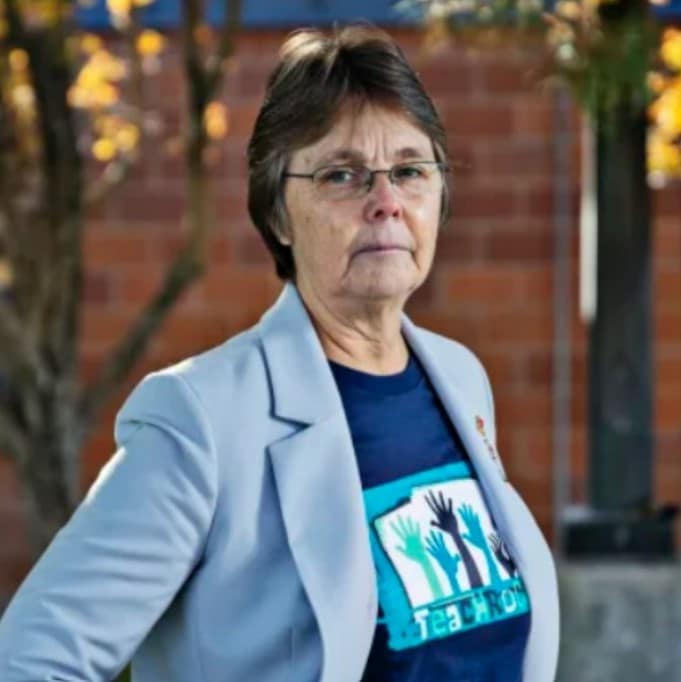
I tell my students we’re going to learn the full history of our country. We wouldn’t do a puzzle with just the pieces of a puzzle that appealed to us because we wouldn’t get the full picture, so we’re going to study all the stories from a multitude of perspectives so we can find the truth about who we are, and who we want to be.

As James Baldwin reminds us, “Not everything that is faced can be changed, but nothing can be changed until it is faced.”
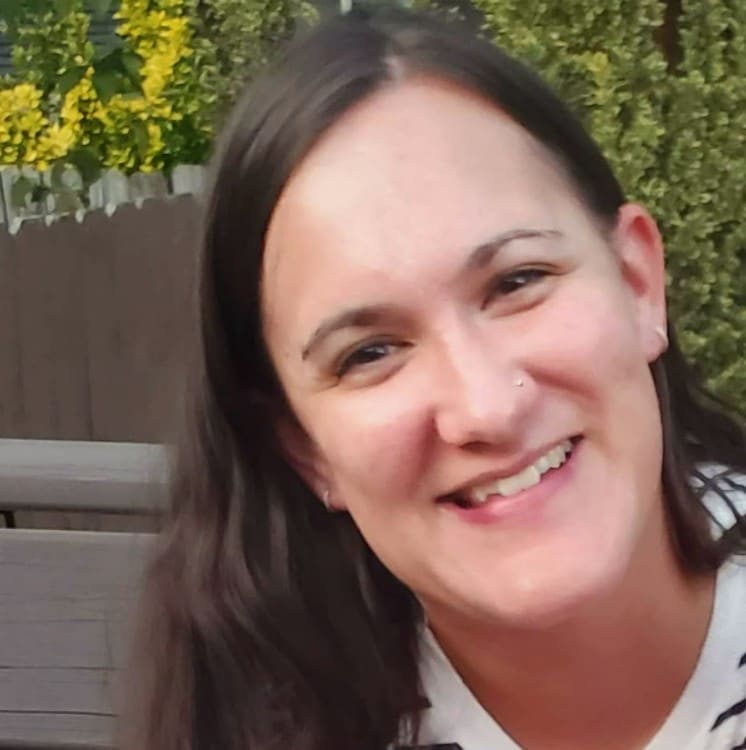
Teaching children the whole truth about the history of this country is incredibly important. It would be a disservice to the future of this country to not acknowledge the struggles that have happened throughout history.
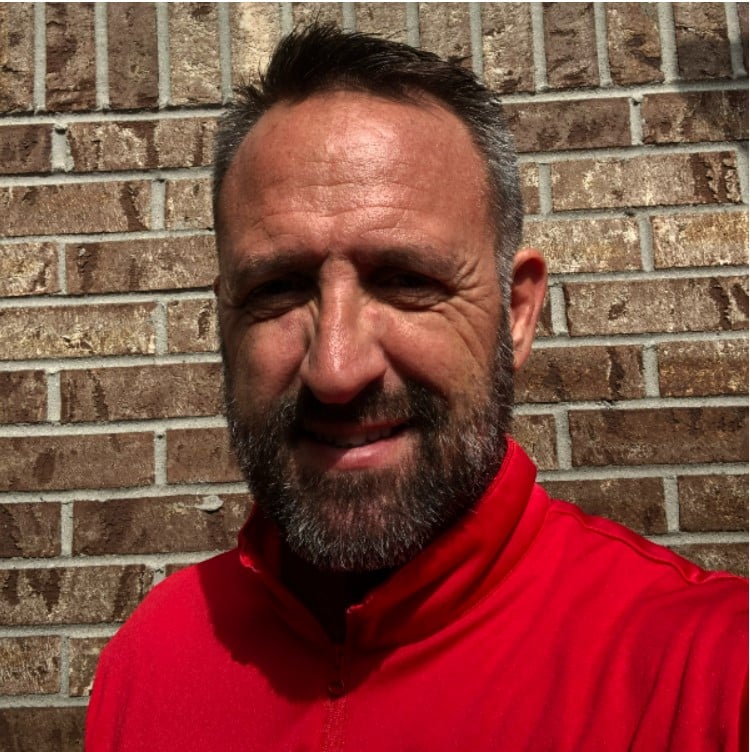
I will not respect or follow laws designed to intimidate educators from teaching historical truths. Our history is full of remarkable moments and people courageously sacrificing for the greater good. Greed, selfishness, and violence are also a part of our history. To minimize either aspect is to lie by omission. To progress as humans and reach our potential, we must fully understand our history.
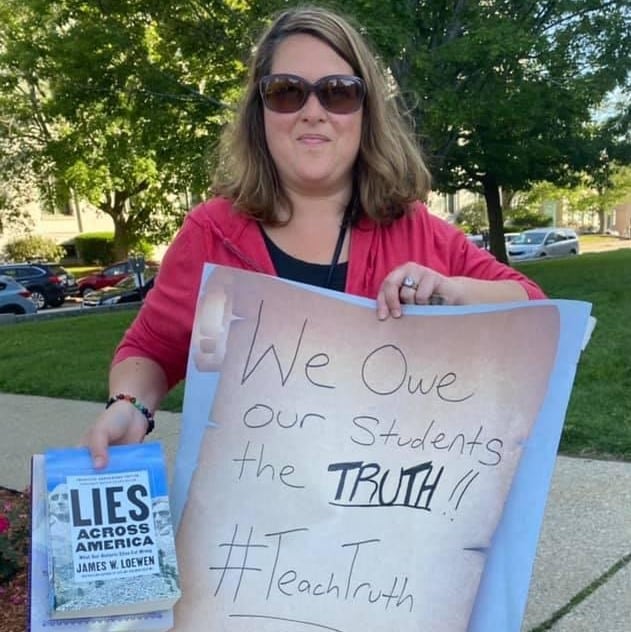
I am signing this pledge because I am deeply disturbed by both the attempted culture war and censorship being thrust upon schools and other organizations all across the nation. The teaching of truth to people of all ages is essential so we can examine our past and create a society focused on progress. Good teaching also means utilizing a rich landscape of stories and perspectives that are all around us and I refuse to bury that truth as it is shared with the world.
If we don’t give our students truthful information about our nation’s past and present, they won’t be able to build a better future.
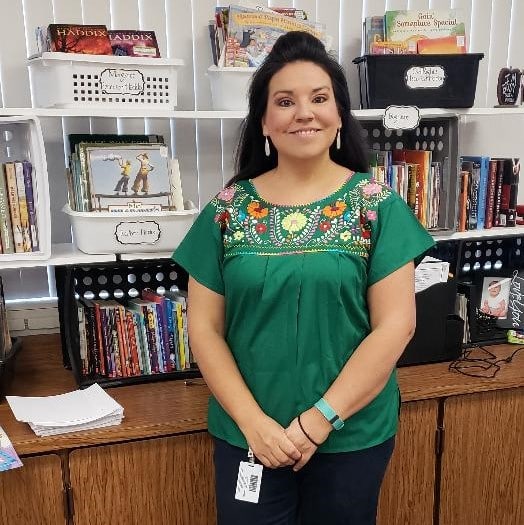
We are inextricably linked. If we are not searching for the liberation of all of us, we cannot have true liberation. We deserve to see, hear, and read about our people. All of them. How they fought back and how they changed lives.
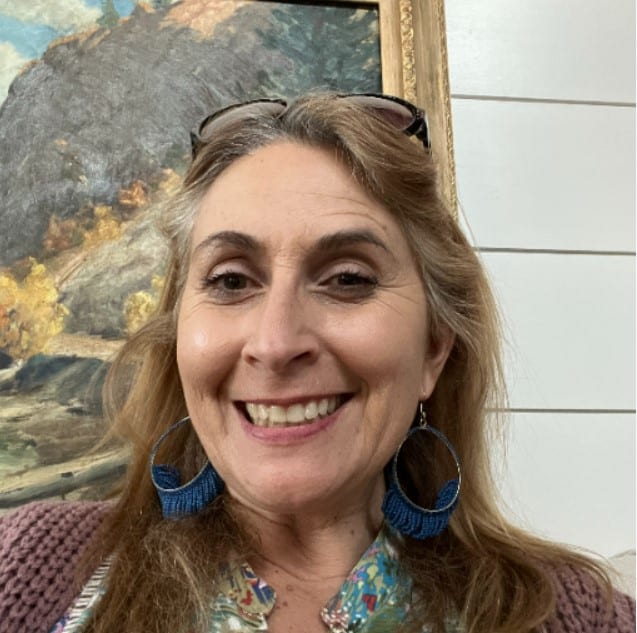
All students deserve to know the truth about the problems that exist in society and they should have the chance to express their voices to speak about how we might come to resolve these issues.

Students NEED to be taught the truth if we expect them to make meaningful contributions to society and NOT repeat the errors and cruelty of the past. They need to be BETTER than previous generations. They cannot do that WITHOUT knowing the ENTIRE truth of our existence.
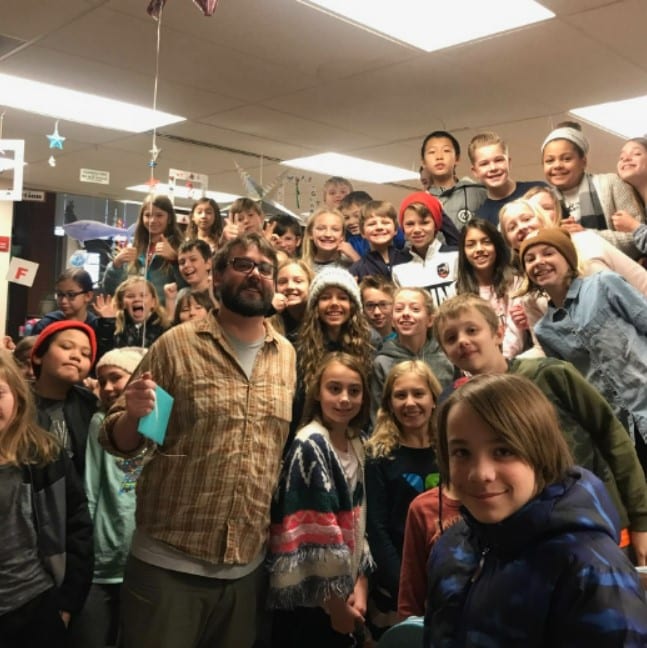
Hiding America’s true history from students is doing more harm than good. It is important to learn from our mistakes instead of running away from them.
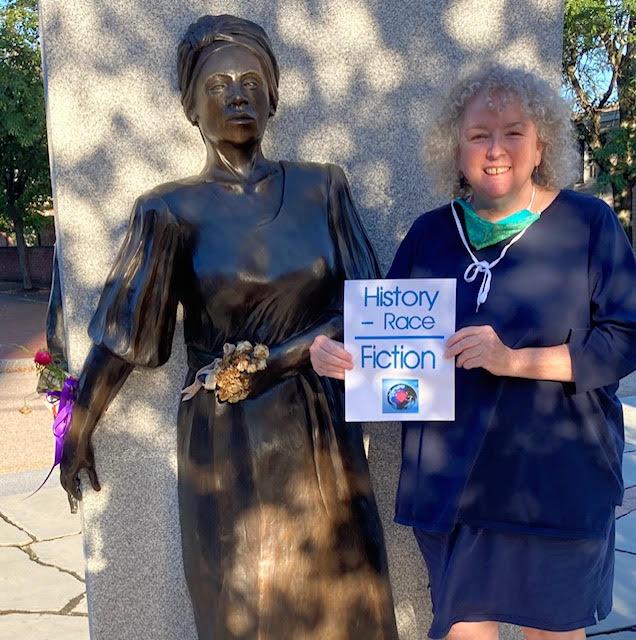
Understanding the role race has played in our history only allows for true academic and social growth.
Ignoring race only leads to conflict and misunderstanding.
It is NOT about political correctness nor cancel culture it IS about moving forward with understanding and positive intent.
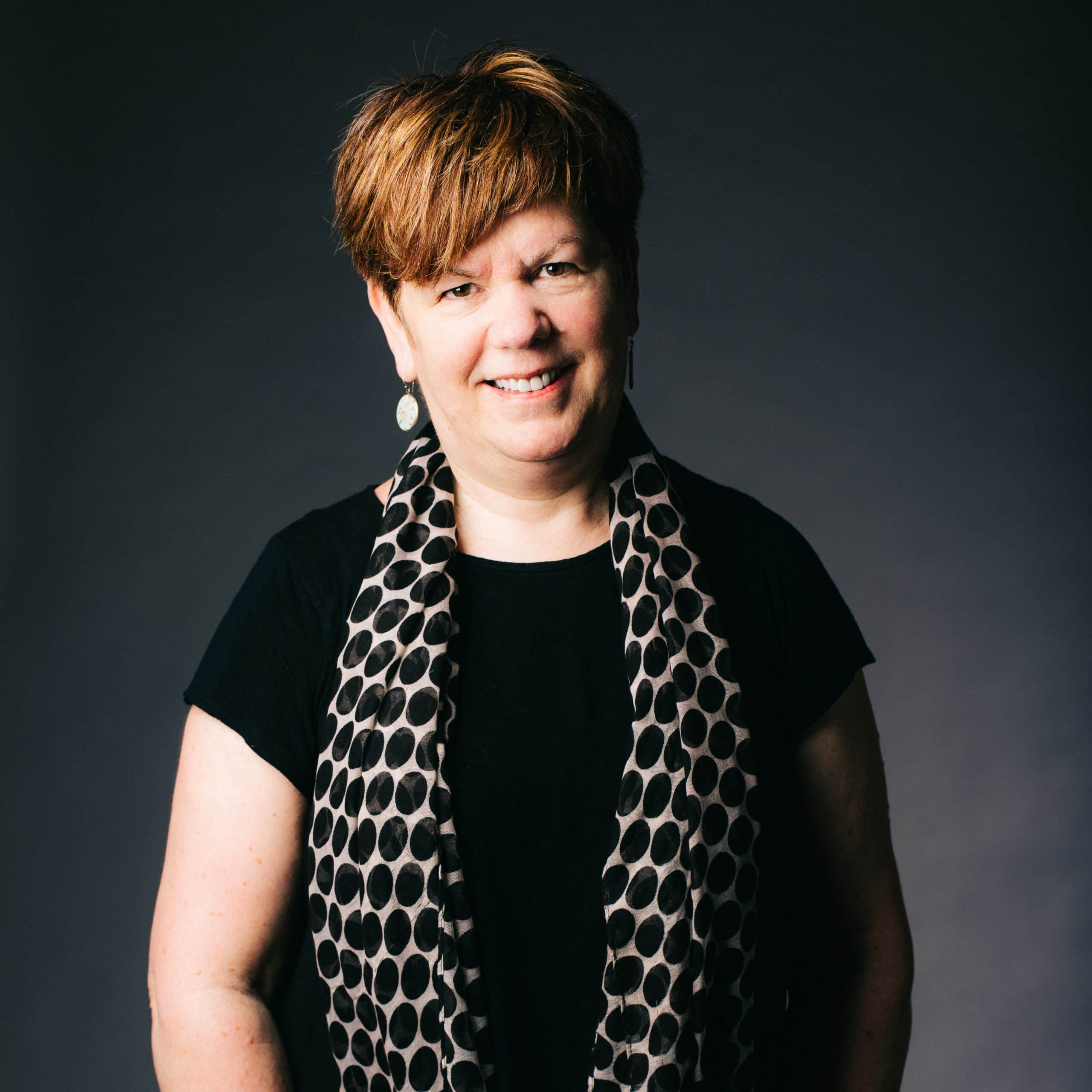
Teaching the true history of the United States is critical. Our job as teachers isn’t to deposit information to our students — it isn’t about propaganda or creating a false narrative about how great this country is. Our job is to help students discover who they are and what they believe — and for that, they need to know the TRUE history of where we came from and how we got to where we are.

I do not believe we can build a better future until we are honest about our past.
Acknowledging past wrongs is necessary if we ever hope to heal.
The truth matters and we owe it to not only the groups of people who have been oppressed for the entirety of U.S. history, but also to the future of our country to teach them our failures so that they can build a better future for our country.
This is not about guilt and shame, this is about justice and reconciliation for everyone. Reconciliation can only happen when the facts are given and dealt with.
We owe it to our country to acknowledge our history and work to not repeat it.
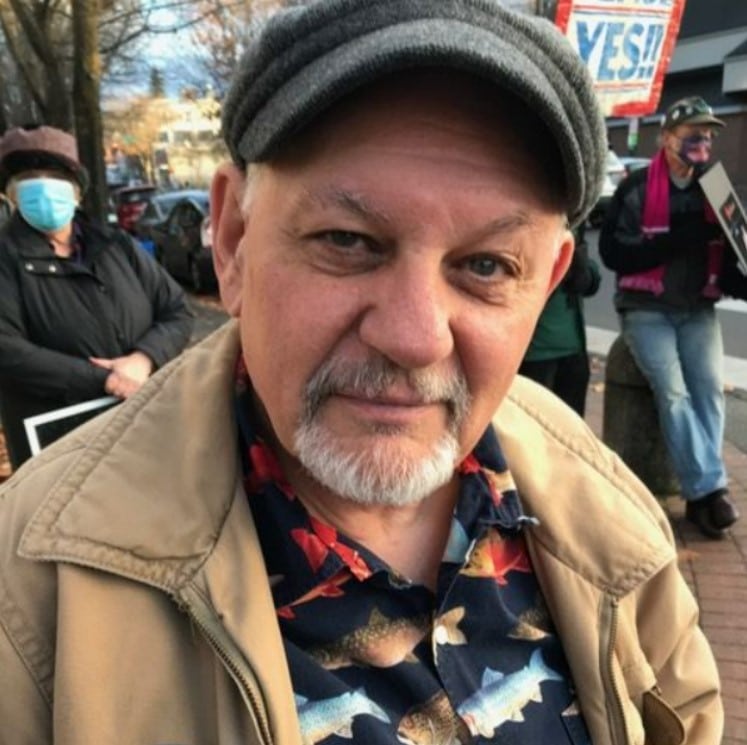
“It’s actually simple: If you can feel pride in things you didn’t personally take part in, then you can feel shame in things you didn’t personally take part in. Some of you are motivated to make this hard, but it’s only hard because you want the glory of our history but not the burden.” — Ida Bae Wells (aka Nikole Hannah Jones)
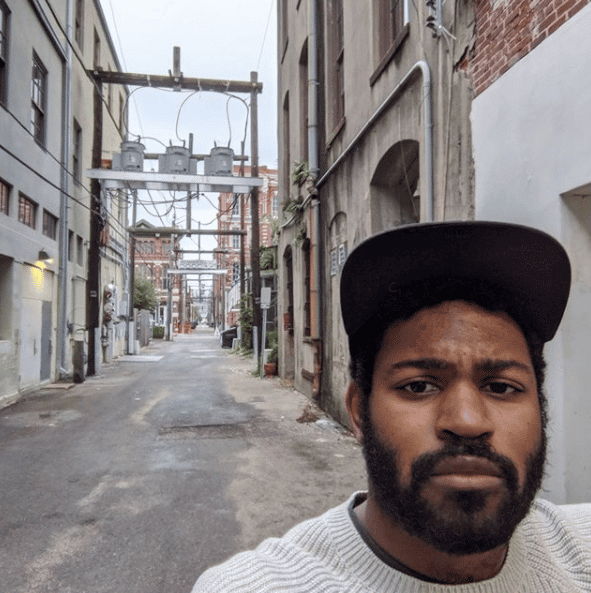
How is it possible to teach about civics without discussing racism? How will our nation ever move past racism if it can’t acknowledge that it happened in the first place?
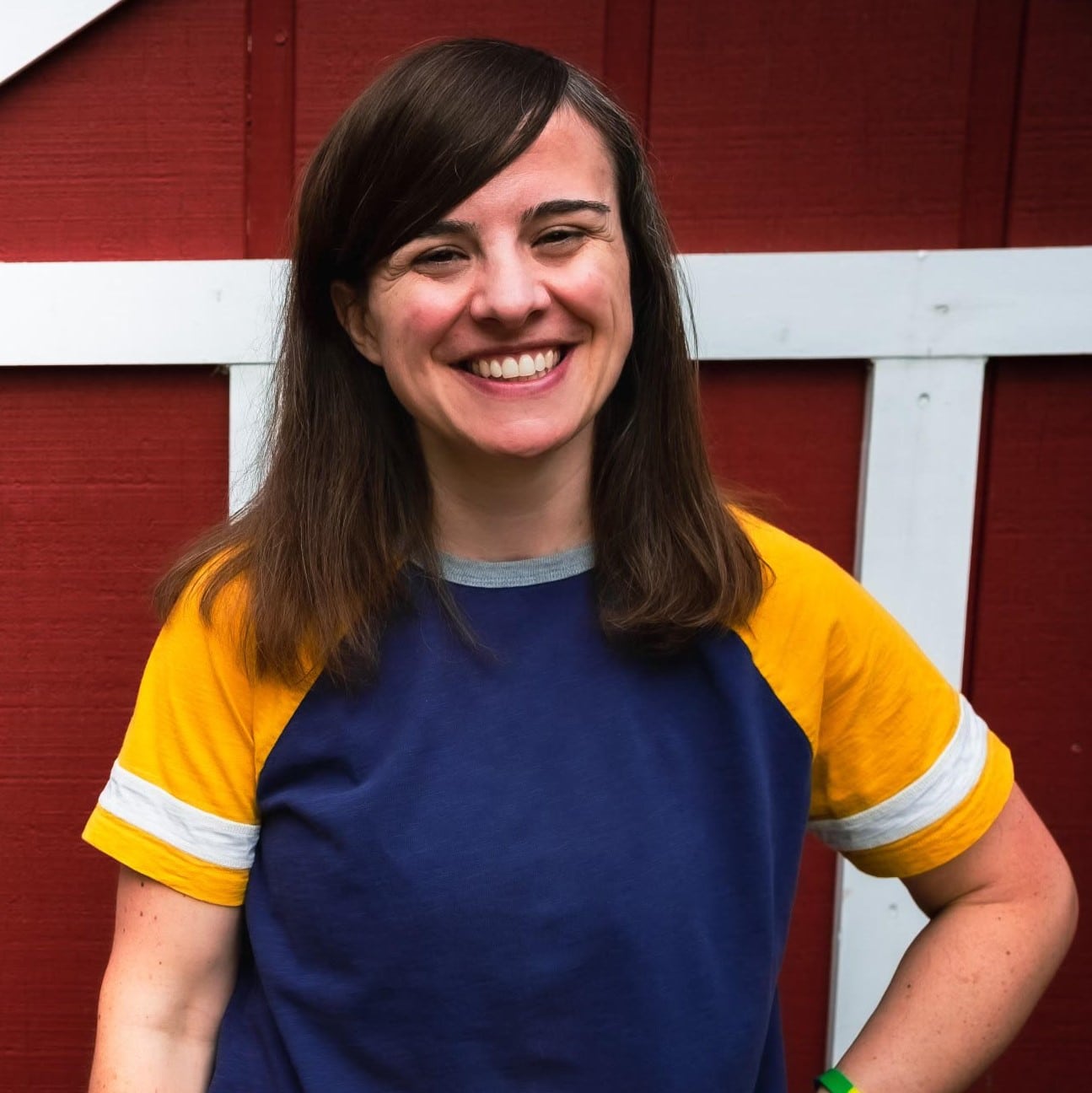
Ida B. Wells-Barnett wrote, “The way to right wrongs is to turn the light of truth upon them.”
I can’t live my values as a teacher and librarian and lie to children. It’s that simple.
Facing history, understanding the present, and working to challenge oppression is not always easy, but it can be empowering when the learning community comes together in collective care, support, and change-making.
I am signing this pledge because the recently proposed legislation to dictate to teachers is censorship and the whitewashing of U.S. history.
If our kids are going to be prepared for the challenges of their future, we as their teachers need to foster an honest representation of the past, while giving them the critical thinking skills and the empathy to treat all people with respect and understanding.
These proposed bills are indoctrination, whereas we teachers need to promote an inclusive history so young people can make informed decisions about their futures.
I believe it is a moral imperative to teach the truth even when that truth may be difficult, uncomfortable, or challenge long-held myths about American exceptionalism.
If we lie (or leave out the truth) to young people growing up in our society, we do them a terrible disservice.
Real care and respect for students and families begins with telling the truth, a basic value that we all seek to imbue in our children.
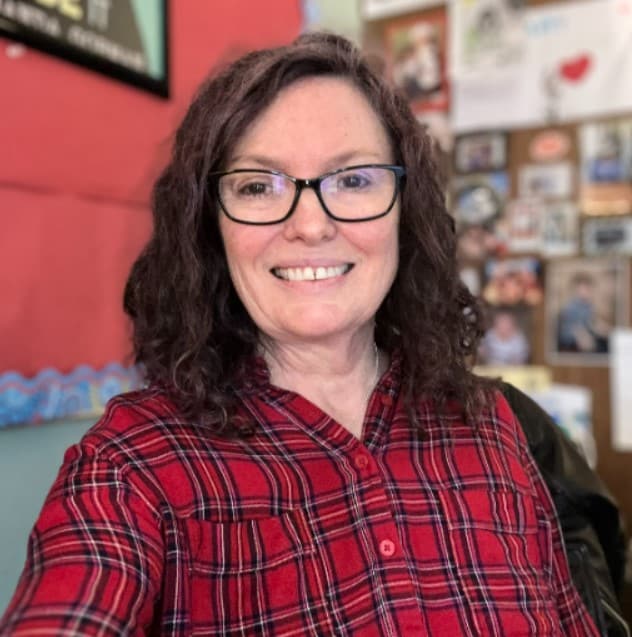
To deny history is denying the truth. As an educator I present factual evidence, even the ugly truth, to my students and encourage critical thinking. I do not belong in the classroom if I am supporting lies for fragile egos to survive.
The language of these bills is absurdly vague and often inaccurate, and their intention violates every tenet of academic freedom that we should hold sacred.
Teachers and those interested in education should stand tall and aver that we shall explore all aspects of the history of our country, not just those that serve an unquestioningly “patriotic” narrative. To do less does a disservice to our nation and to the ideals that we purportedly hold, and to the children whom we supposedly serve.
Criticality does not equal hatred, but instead can lead us to understand ourselves and our history more deeply and thus to better serve and practice those aforementioned ideals.
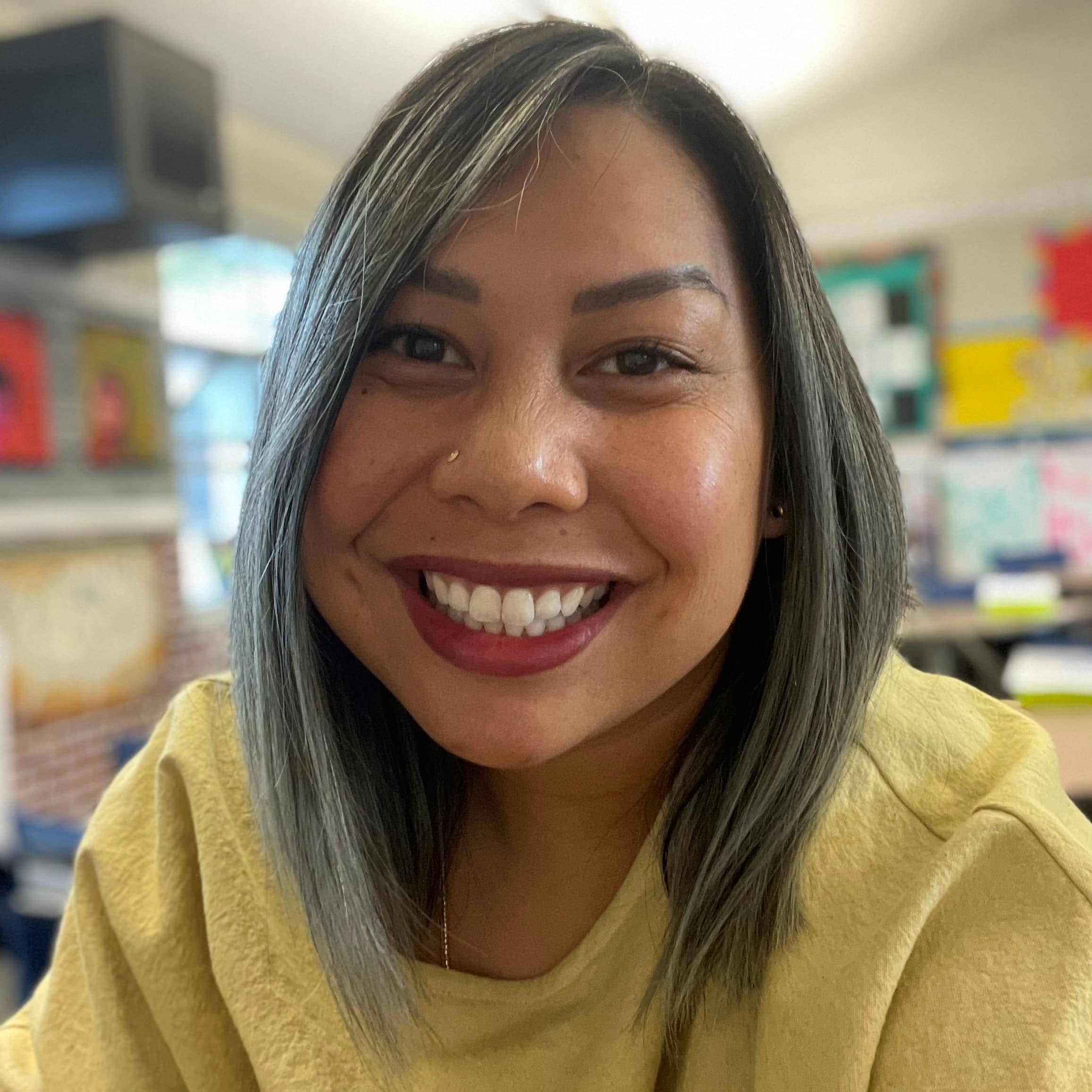
I refuse to lie to my students and teach them an abbreviated version of history that erases the struggle and resistance of everyday people.
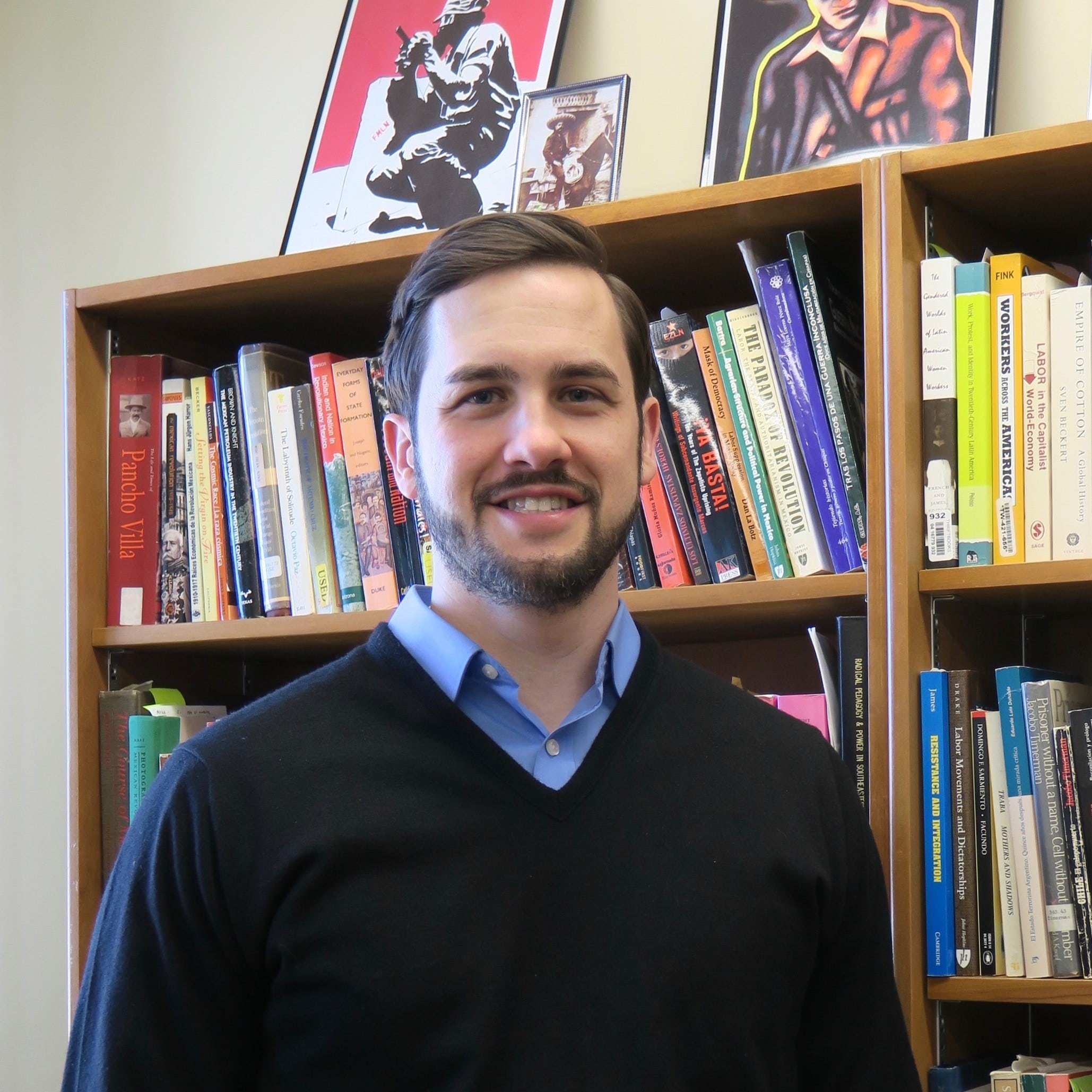
We need to fight the New McCarthyism. “Conservative” is a euphemism for those who are trying to whitewash U.S. history.
They are not just conservatives, they are Orwellian propaganda agents dedicated to silencing the past in order to enable racist violence, class domination, and empire, and to preventing responsible responses to the climate and COVID emergencies.
Their agenda targets the most vulnerable and marginalized populations but it also harms the entire 99%, including the white working and professional classes and most of the people who self-identify as “conservative.”
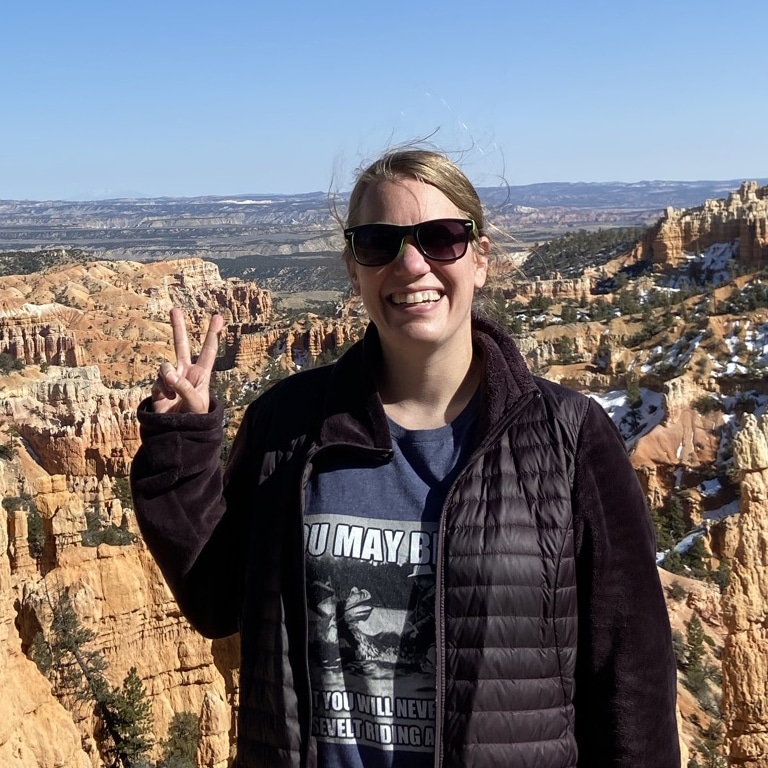
We cannot become better if we do not acknowledge our past mistakes.
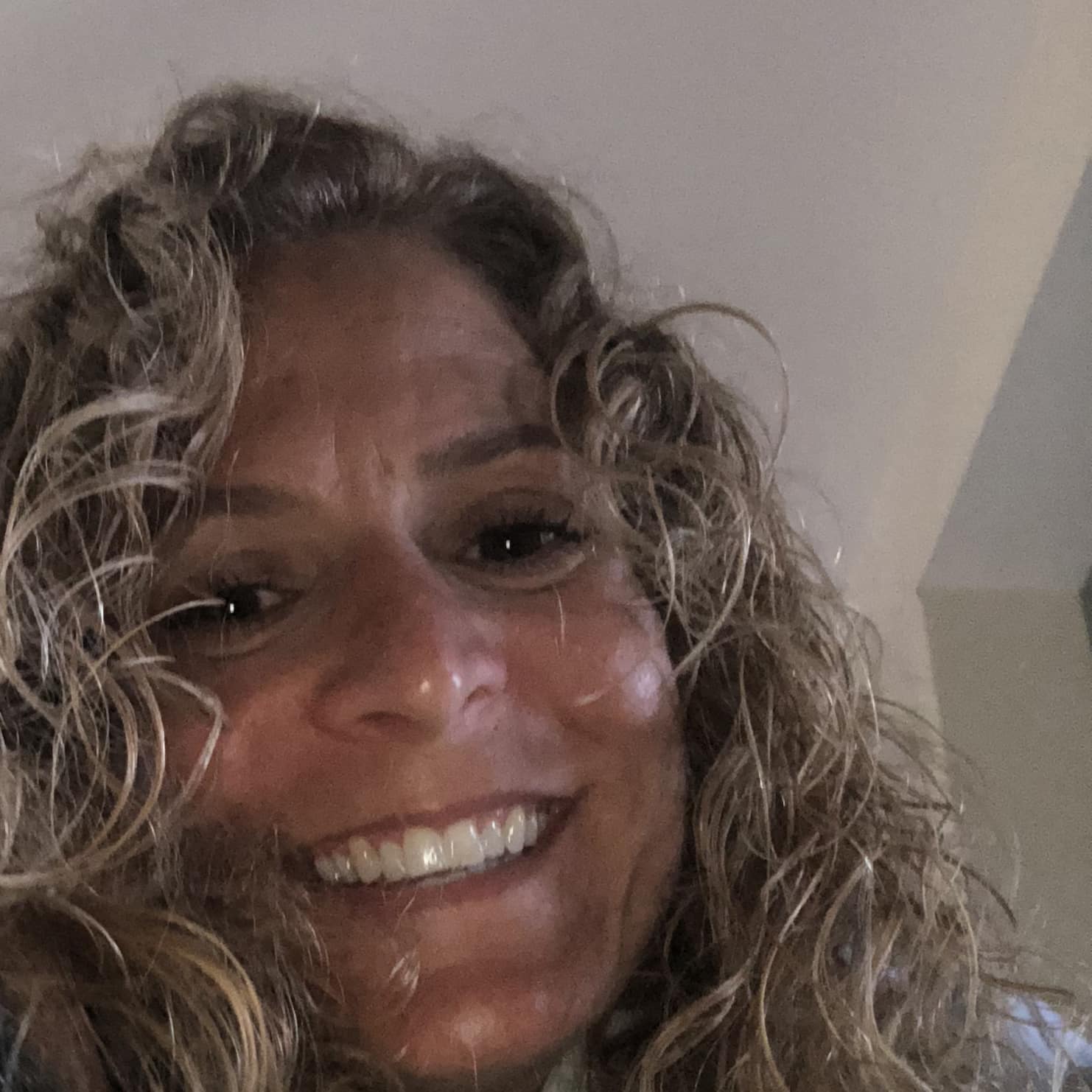
Truth kills ignorance.
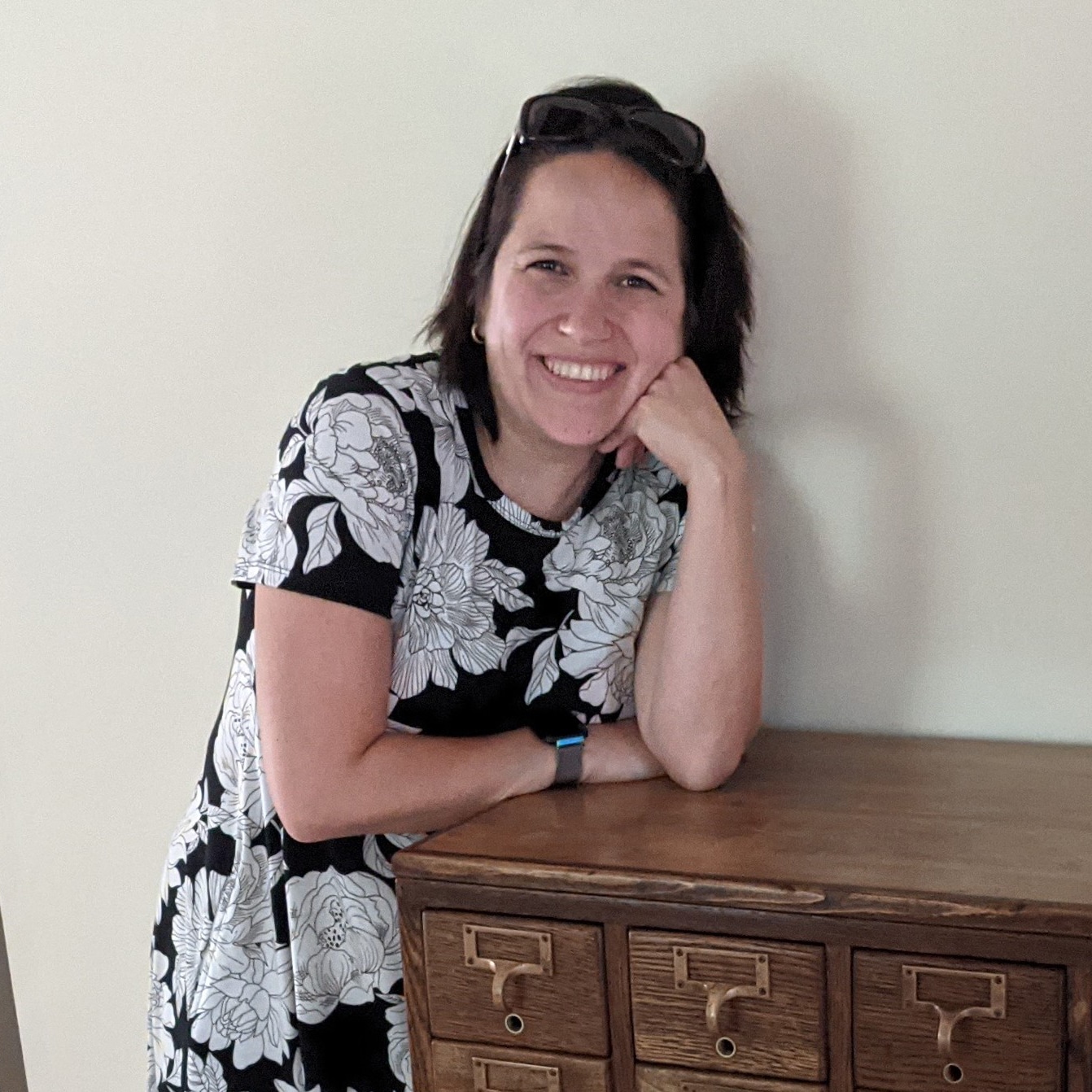
I am a librarian. I fight against mis and disinformation. Disseminating truth is essential.
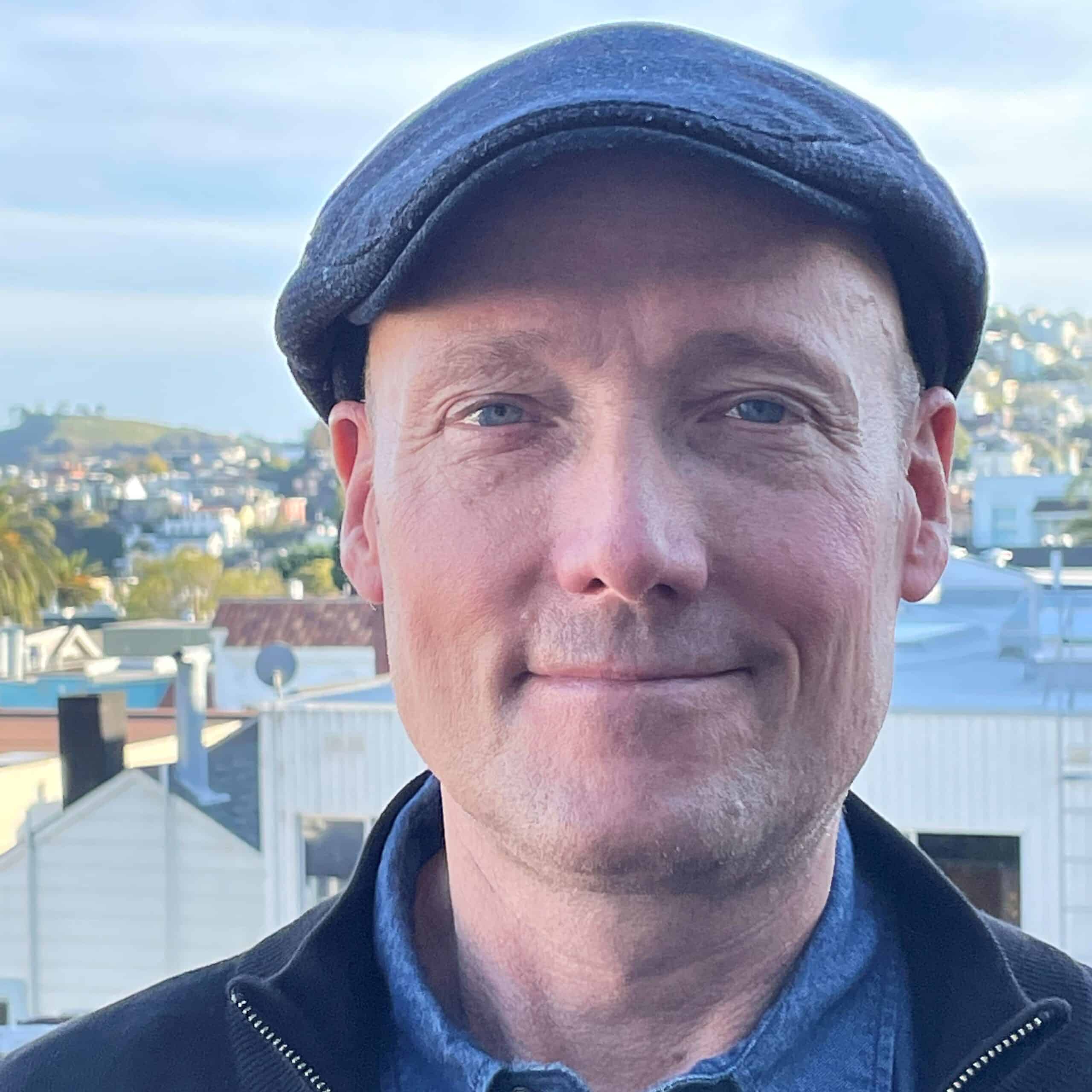
Our district has used books based in Critical Race Theory like Ibram X. Kendi’s How To Be Anti-Racist for student, staff, and parent book clubs, and implemented a race curriculum also based in CRT by Courageous Conversations.
But hypocritically they also respond to parent complaints regarding race curriculum by threatening to discipline teachers and implement stricter oversight of curriculum, even when the curriculum is strictly in line with the district’s courses of study.
Educators need to be empowered, not disciplined or chilled, when they are on the front lines conducting these important conversations.
Our students deserve to be taught the truth in American history.
Teachers like myself also deserve the autonomy to teach all facets of the curriculum they are responsible for covering; that includes the parts of history that reactionaries, white supremacists, and politicians who pander & enable these people, want to gloss over and blot out in the history books.
It’s the teachers who are the professionals and know their content — not these noise-makers. Let’s keep #TeachingTruth as we always have!
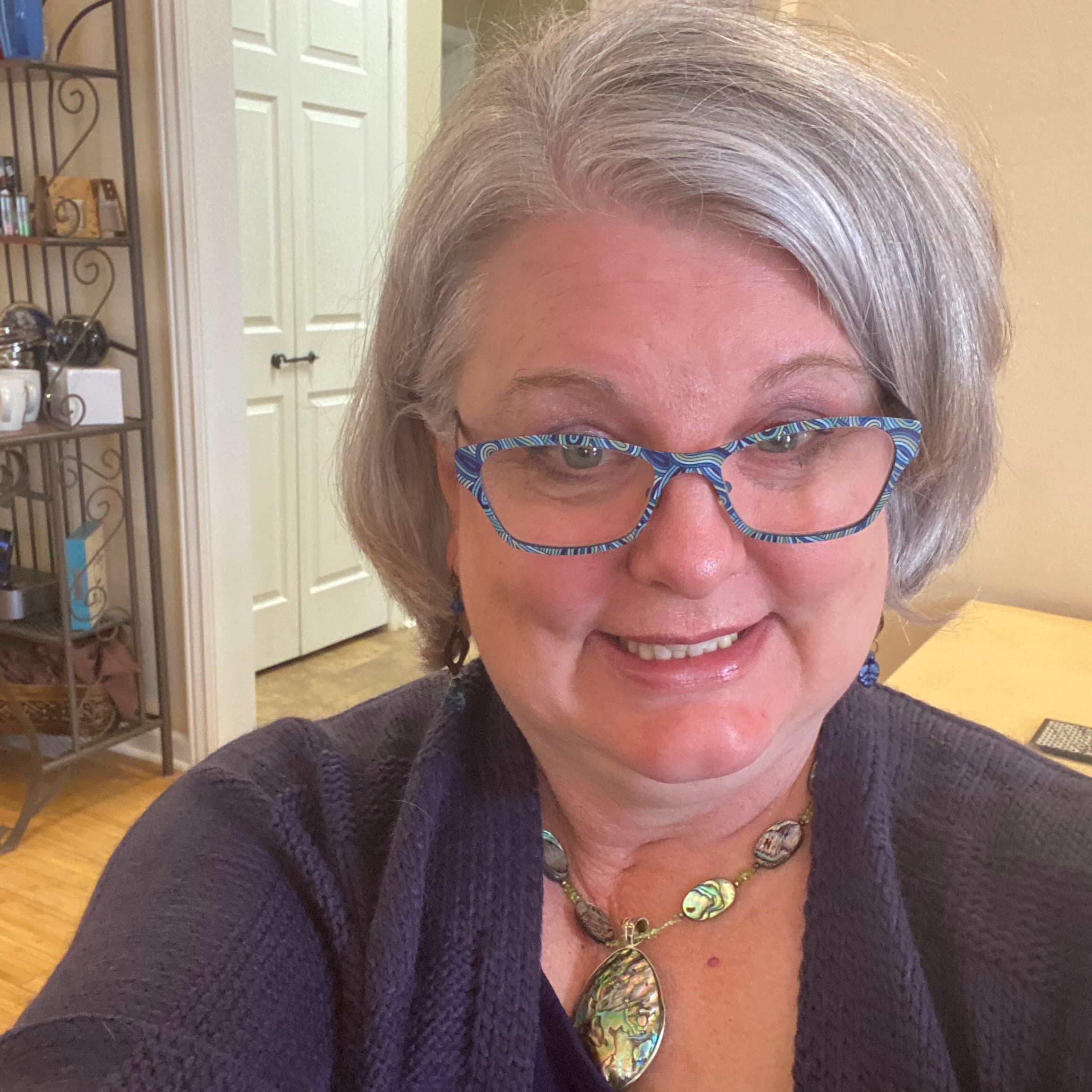
Teaching history means teaching all of it.
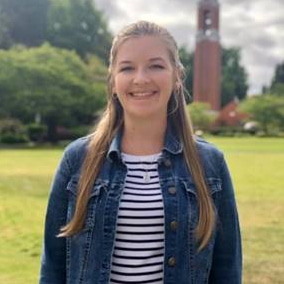
As teachers, we are called to teach the truth and hiding history from our students means lying about our identity as Americans. Yes, our history is not pretty and we have had to take steps to become what we are today, but we, as teachers, are also lifelong learners who are called to shape the minds of the future. Lying to students means hiding the past and rewriting the history of this country.

History is literally present in all that we do and I will not allow those who want to whitewash it to do so. The circle must be broken.
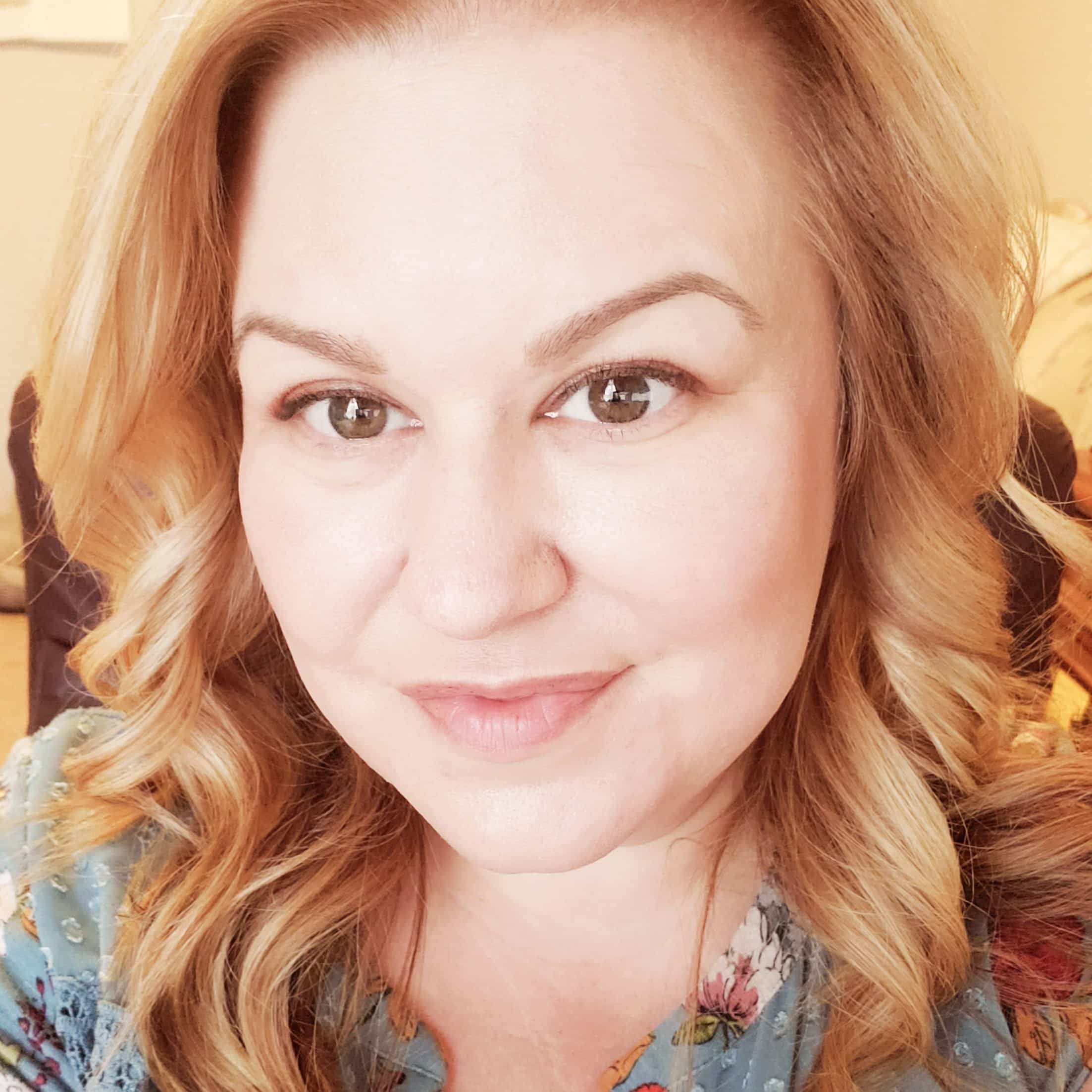
The truth is worth more than the $5,000 fine the State of Arizona wants to slap on me if I allow my students to become critical thinkers.
Students need to see themselves in our nation’s history. Sometimes that history is uncomfortable, but acknowledging this serves to support culturally sensitive teaching.
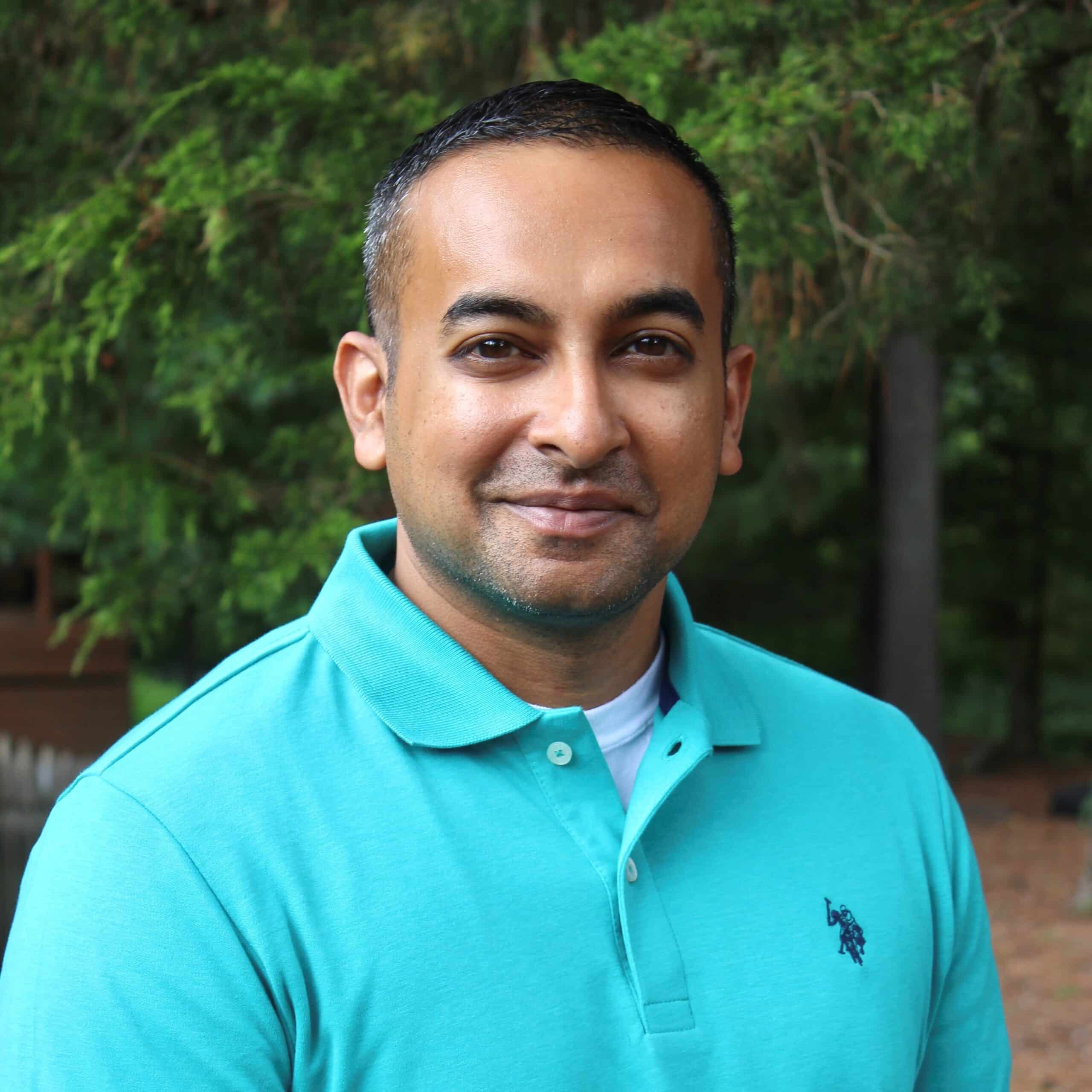
I want to be on the right side of history. Future generations will talk about this moment, the way legislators and extremist white supremacy groups used fear-mongering and conspiracy theories to stop teachers from teaching the truth.
I want it to be known that I was one of countless educators nationwide who taught kids to identify, understand, and work to end racism, sexism, white supremacy culture, and the silencing of marginalized voices from our curricula. Teaching the truth does not mean teaching kids to hate America. It is teaching them that we all play a role in helping our country become a more perfect union.
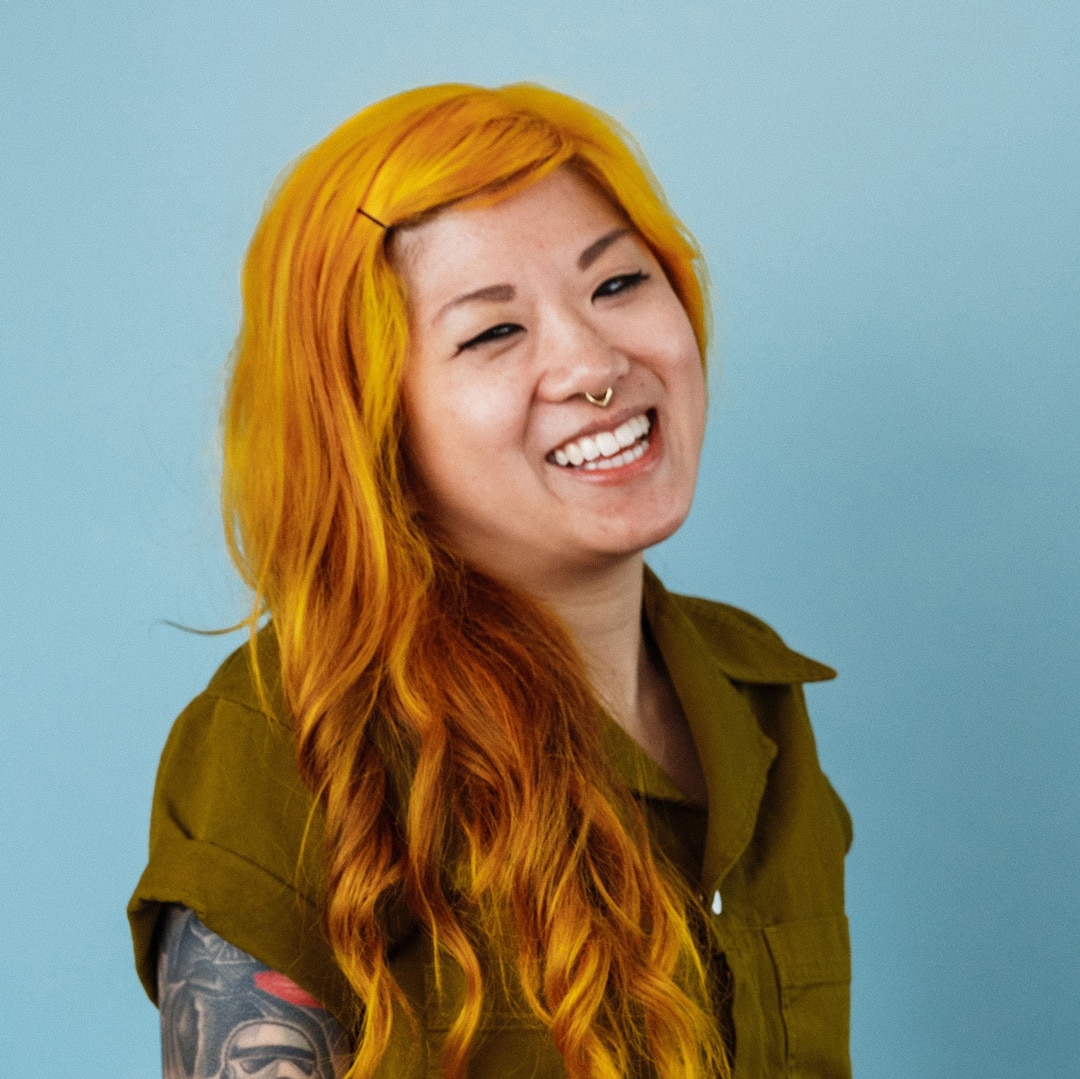
When our national story is devoid of truth, we are not giving students the tools and ancestral knowledge they need to make a better world possible. We are simply teaching them to adapt to the status quo. As an Asian student in a mostly white community, I had to seek Black, Indigenous, queer, and Asian perspectives on my own as an adult. I can only imagine who I’d be had I learned earlier, had I been taught narratives that allowed me to love myself. As educators, it’s our duty to prevent this cycle from perpetuating. Teach our true history.
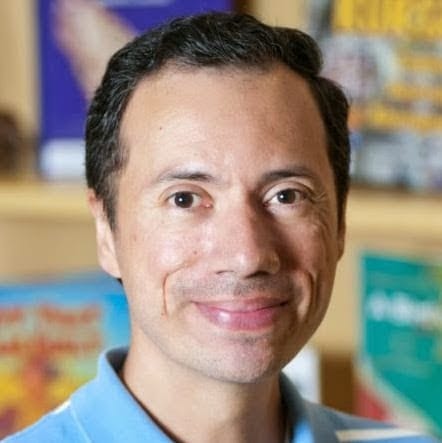
We have a responsibility to be more inclusive and truthful to our students — especially those whose cultures have been marginalized in history books for years.
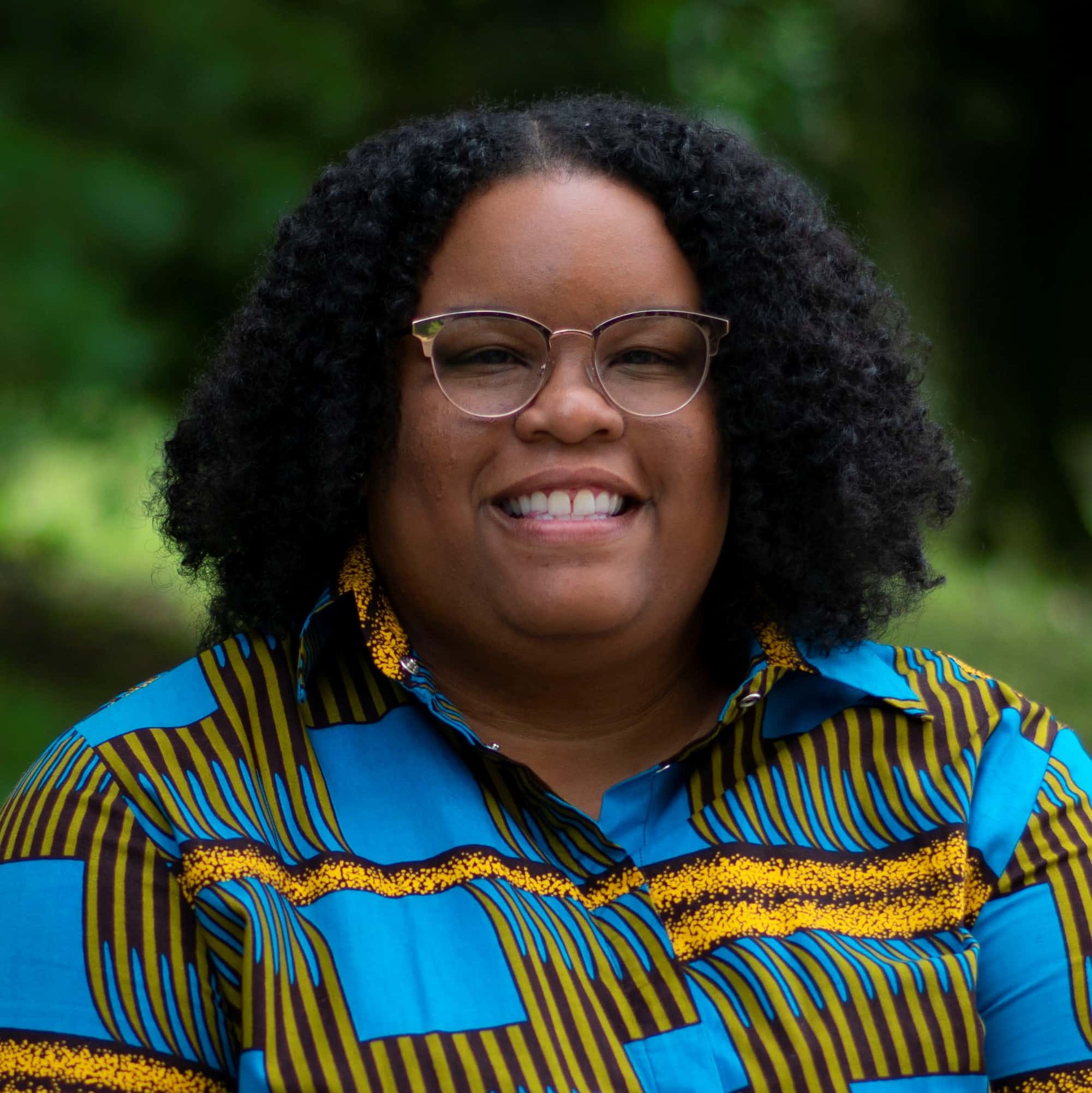
The road to freedom hinges on the youth knowing the raw and rugged truth about the systemic ills of this country.
Through truth our young people can imagine and fight for a new world where we are ALL free.
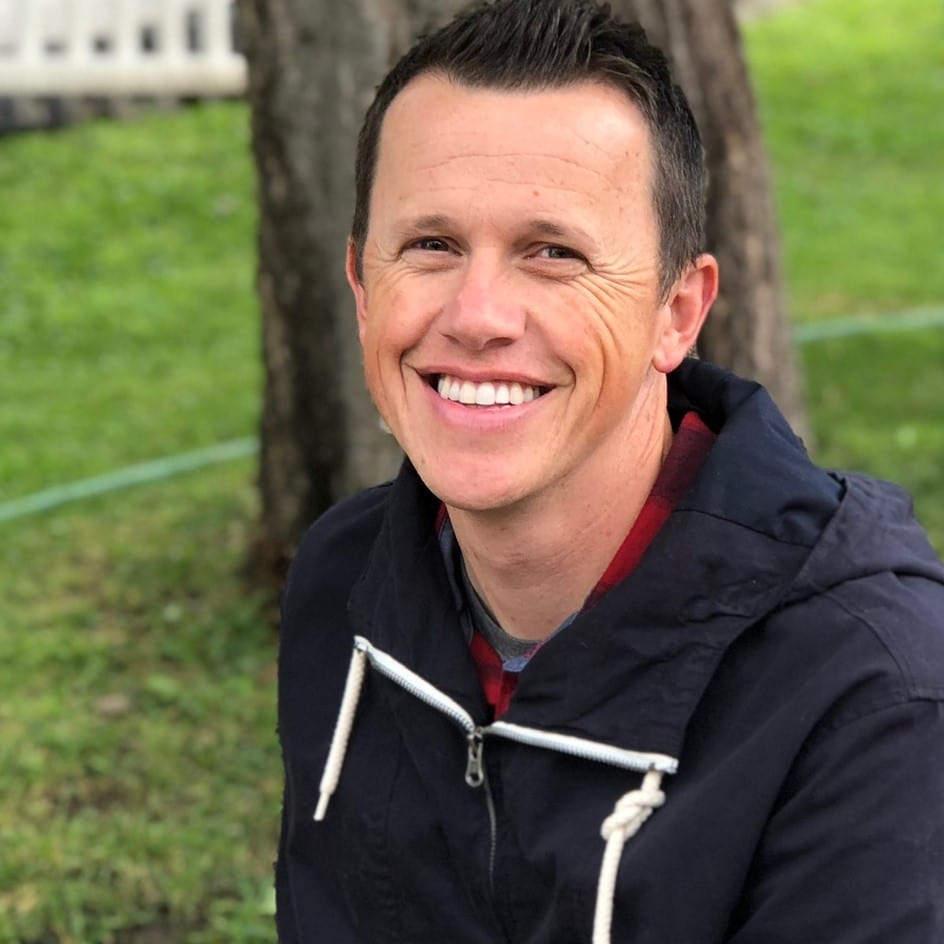
If I wanted to teach mythology, I would have become an English teacher.
I can’t believe we have to defend the importance of telling the truth.
I respect and trust my students enough to not feed them lies, misinformation, or oversimplified narratives.
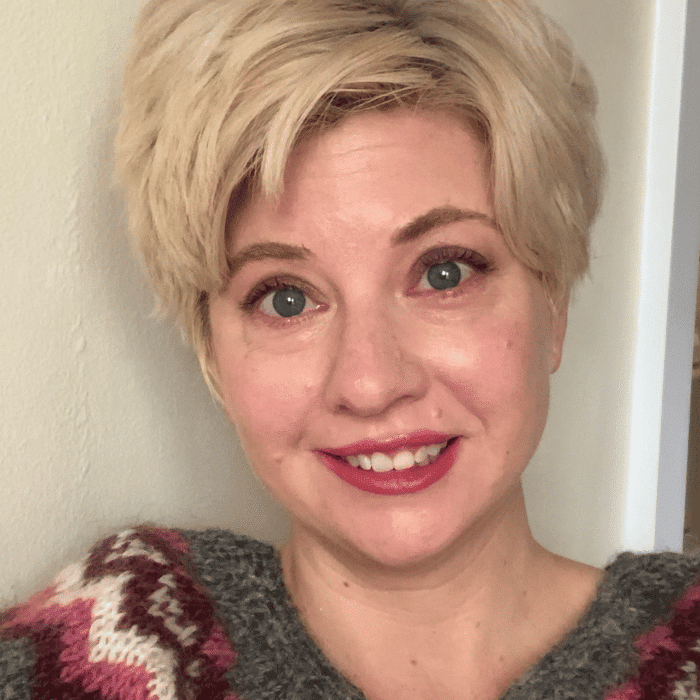
I did not learn about Vincent Chin’s murder until I was in my 30s, even though he was killed a half hour from my home when I was 6. I did not learn about white Detroiters attempting to lynch Dr. Ossian Sweet until I was in my 40s, although I was assigned To Kill a Mockingbird multiple times. I did not learn the racial history of my own state, including sundown towns and redlining and restrictive covenants, or why my hometown had no Black residents, until middle-age.
My students deserve better than I received — they deserve to know about their state and their community in age-appropriate ways, without huge important chunks of history being removed or sanitized to avoid hard conversations about race, privilege, power, and hatred. Kids see these things in their own lives and it is dishonest for adults to prevent them from having opportunities to learn and think and practice working through them. True and meaningful pride comes out of hard work.
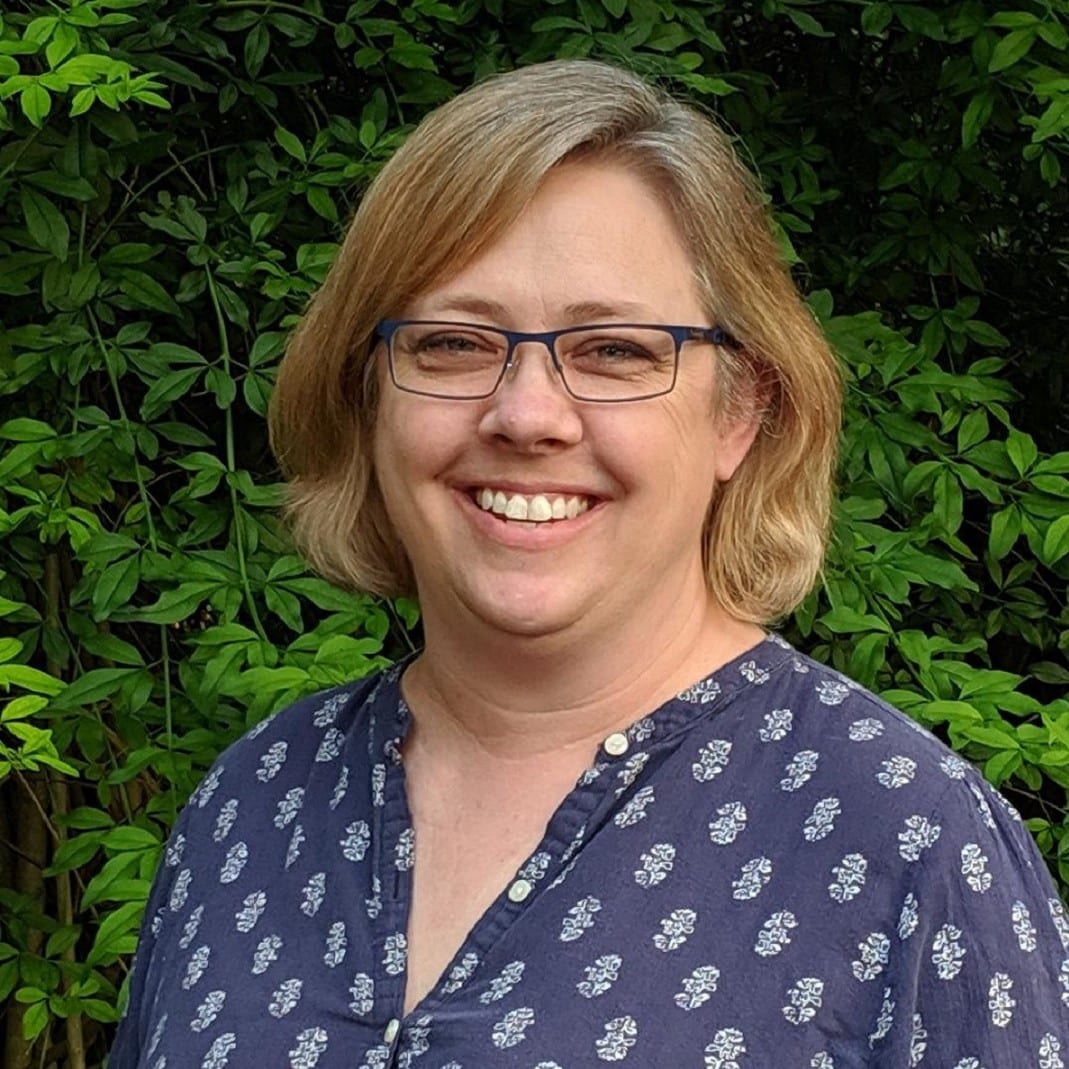
To think children are not aware of the inequalities that exist in their everyday lives is ignorant and insulting.
Parents and educators have a duty to help them understand what they see, what they hear, and what they experience.
Hiding from the ugly truth does not make it go away but only serves to create a citizenry that is ill-equipped for fighting to change it.
A calculated attempt to weaken the populace through misinformation and ignorance is in direct opposition of what a representative government should be and should not be tolerated.
Censoring history, and hiding truths is an incredibly dangerous deed in any case. But in public schools? It undermines our entire goal: to liberate all American youth through knowledge and critical thinking skills.
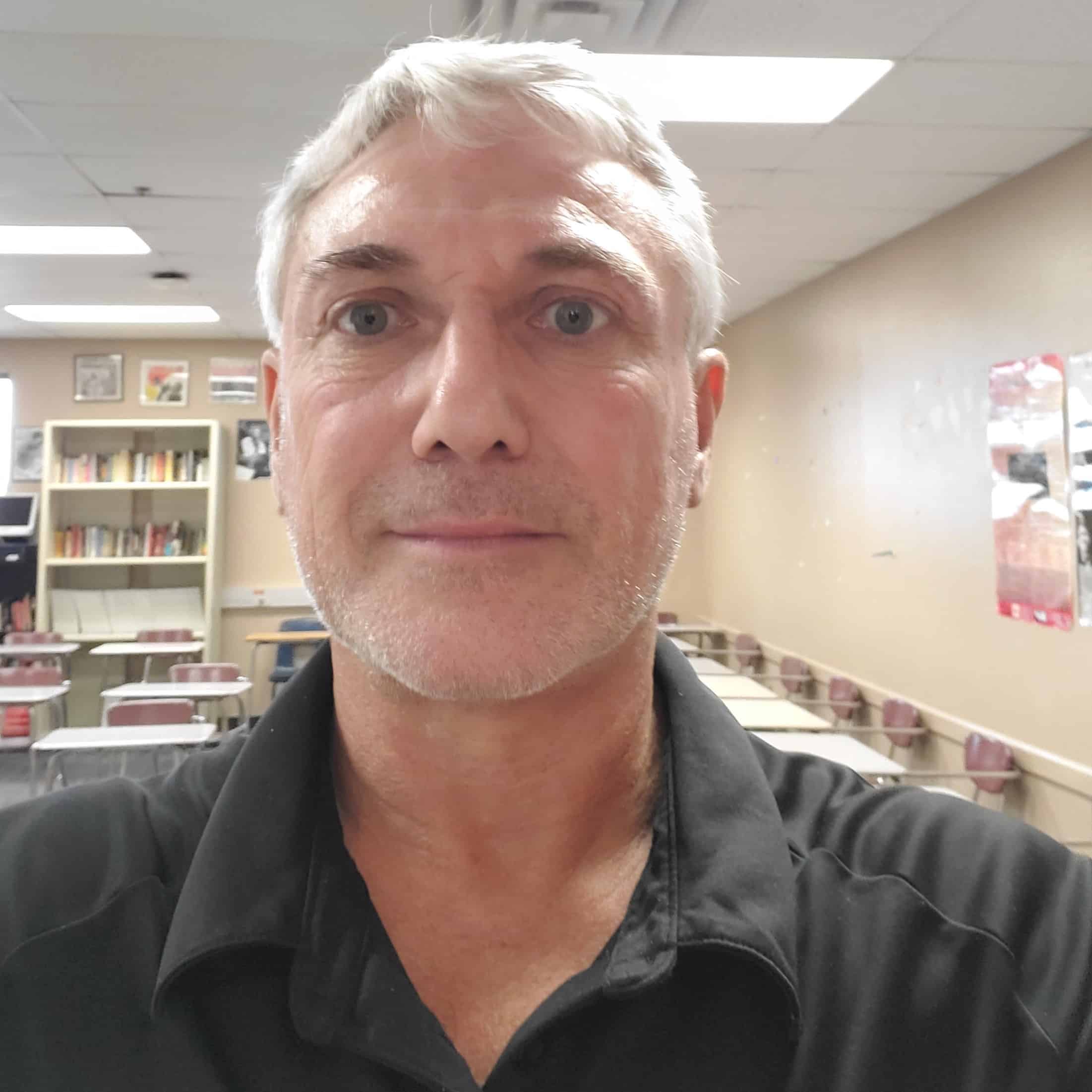
Am I supposed to teach The Crucible, yet not discuss McCarthy, the Red Scare, religious persecution, or slavery, which is an integral aspect of the play? Can I mention that Miller was blacklisted (a term that needs immediate revision) for refusing to speak in front of the HUAC? Can I even mention the HUAC??
And Gatsby, another book in our school curriculum: Should I ignore the blatant anti-Semitic stereotyping of Meyer Wolfsheim and the derogatory language included, without reference to historical similarities? Do I disregard Tom Buchanan’s raging racist rants and chalk that up to the times, or do I get to explain that this was a prevalent attitude, and still is?
If I am fined $5,000 by the state of Arizona for teaching the truth, they’ll have to put me in jail to get me to pay it, and the state will lose one more of the hundreds and hundreds of teachers who have been leaving the field in the past few years.
Actually, let’s just give all of the students the material to read without any historical references or adult guidance. Apparently, my state is trying to make it clear that, if teachers are not allowed to teach, we are no longer even necessary.
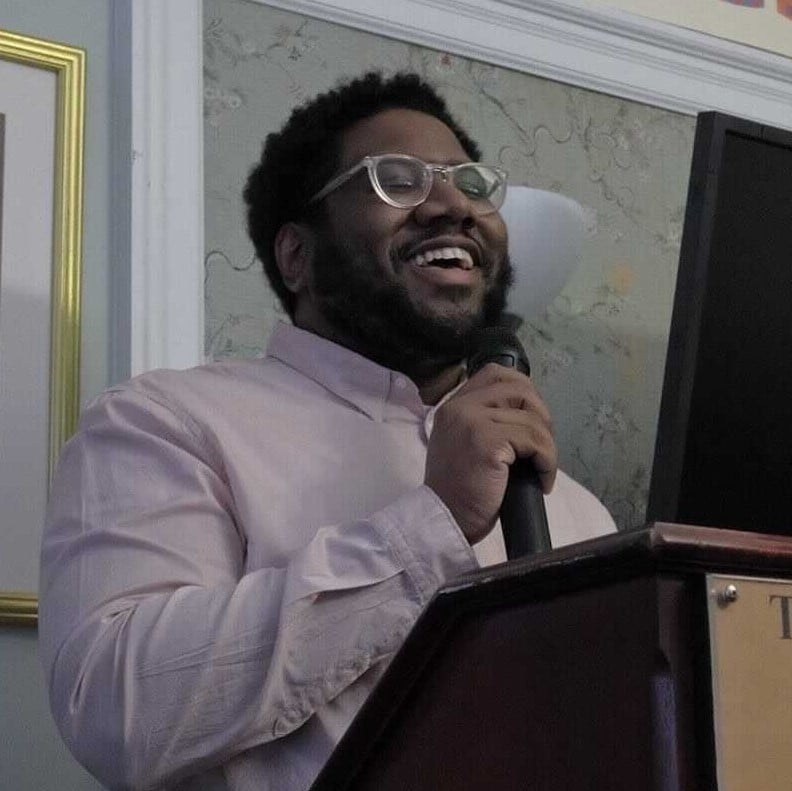
As an educator who has previously worked in K-8 schools and who now serves his Philadelphia community through stewarding the oft-ignored but deeply-reverberating impact of Paul Robeson, I know that teaching the truth, regardless of the law, points our way to freedom.
In paraphrasing the words of Robeson: The [educator] must elect to fight for freedom or slavery. I have made my choice. I had no alternative.
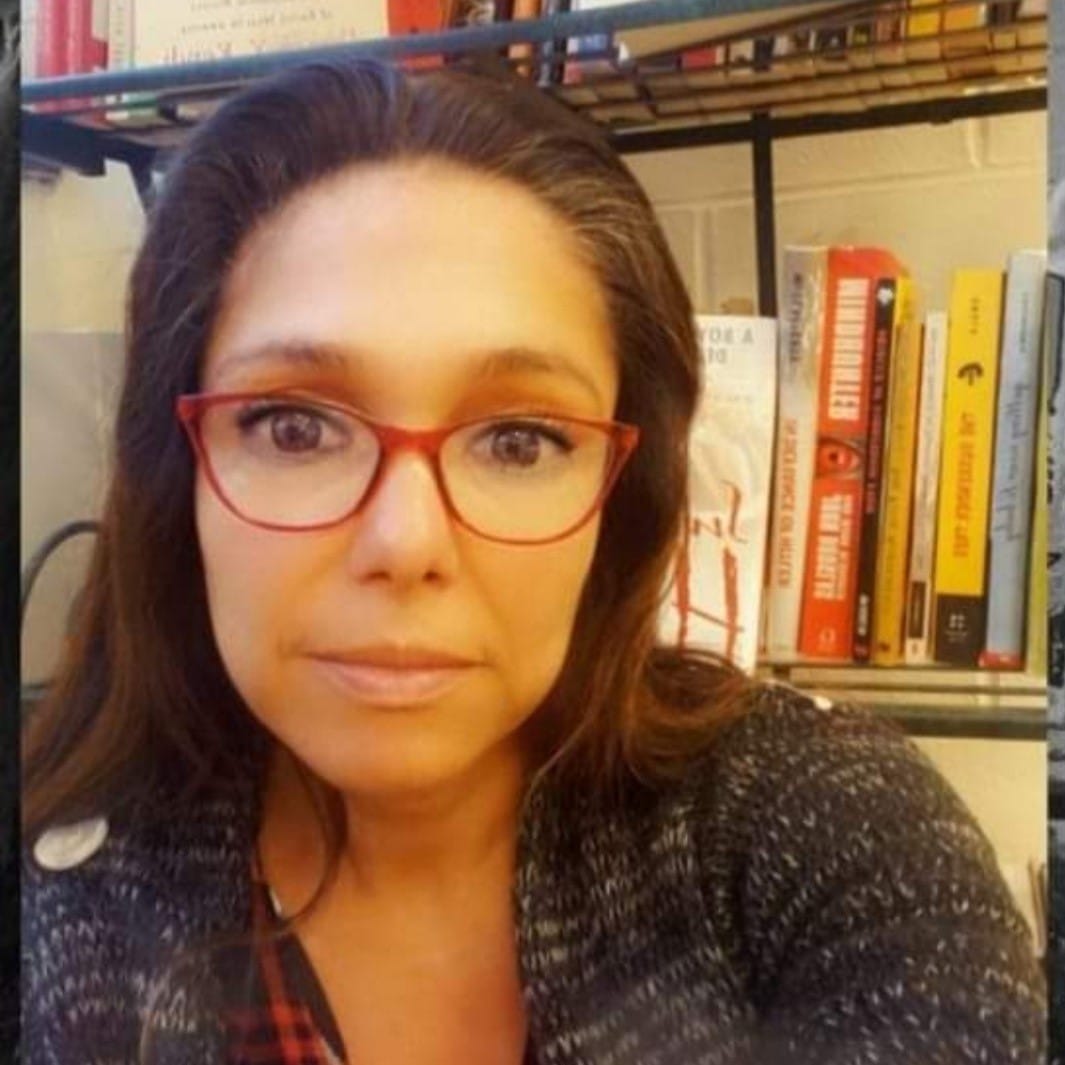
My students are brilliant and powerful.
Their history is their birthright. I will not rob them.
The future is theirs to shape.
I’m willing to die on this hill. I cannot meet benchmarks for U.S. History or Civics if we remove all discussion about “racial bias,” as the new legislation is worded in Florida.
How can I teach the Civil War, Emancipation, or the 13th, 14th, 15th amendments without discussing racial motivations?
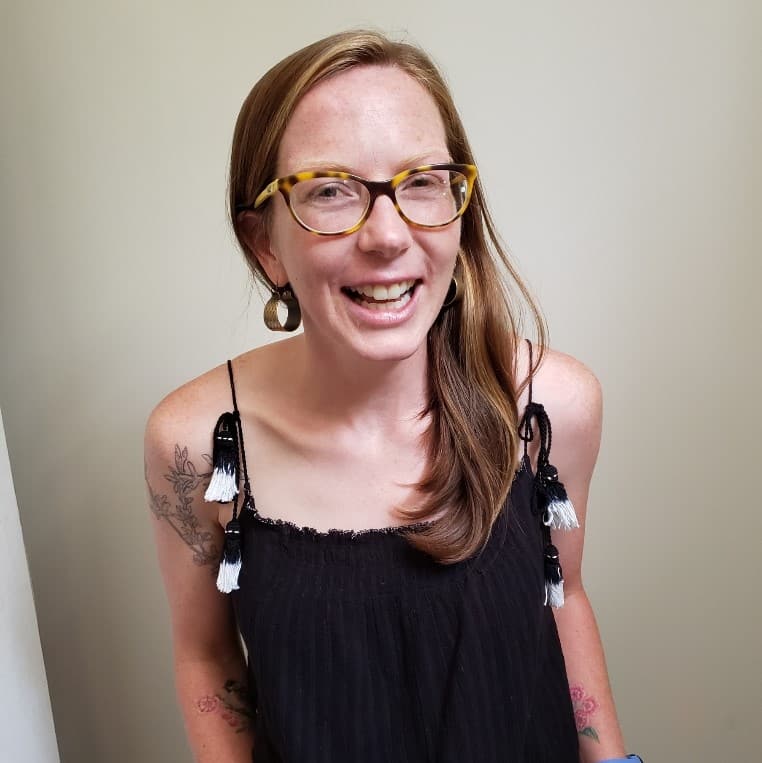
Teaching historical facts is a way to repair and create the world we wish to see!
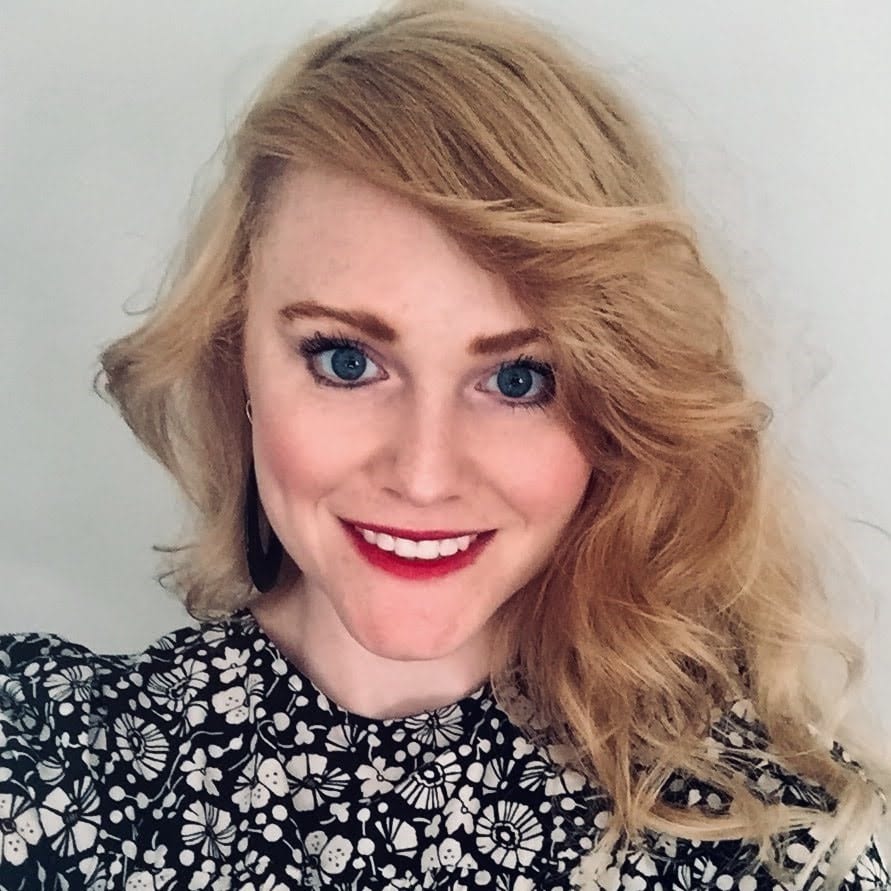
There is no value in erasing historical fact.
To become better citizens of the world, it is imperative to learn the reality of our past and to strive for a more just present.
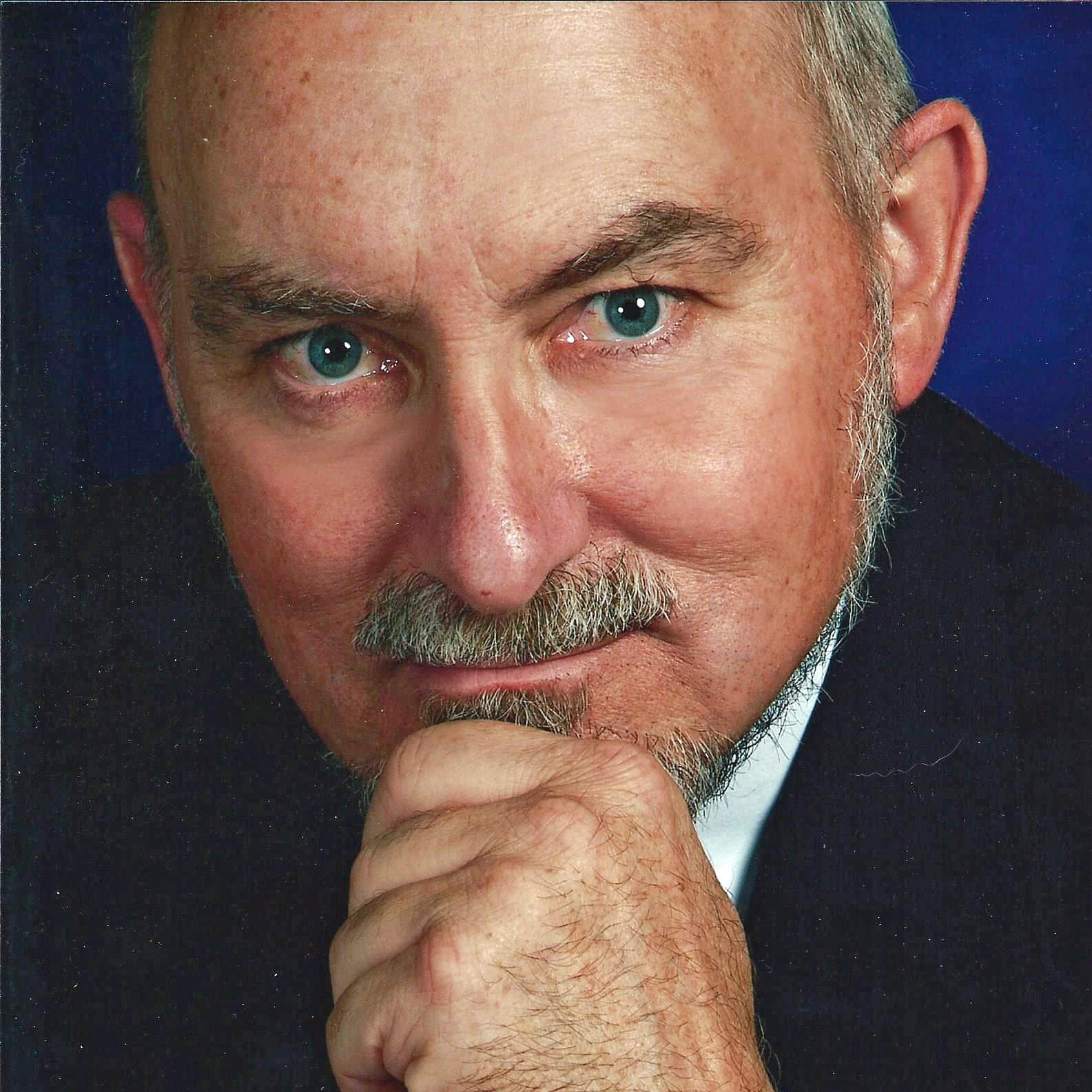
To not teach the truth . . . is to not educate.
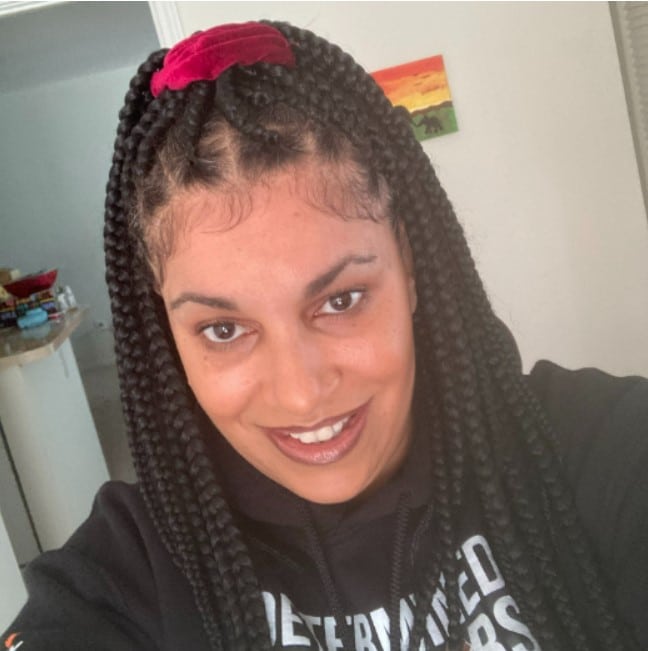
I have been teaching social justice at my school for five years now. I believe that our students have the right to learn about the truth. The point of teaching is to teach our students to think for themselves using critical thinking.

Students deserve to see themselves in the history they learn, as they continue to rewrite it and to add their own narratives.
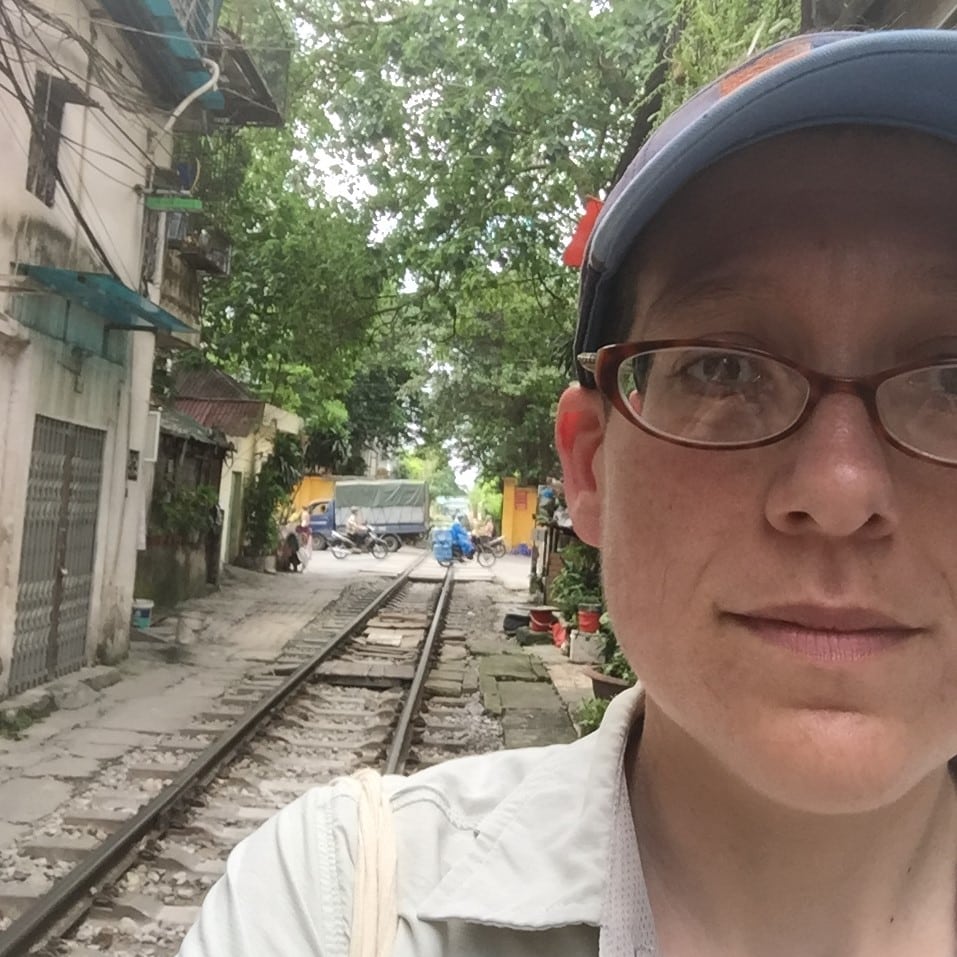
The whole story is so important to understanding who we are and how we got to this point.
And in making the world a better place.
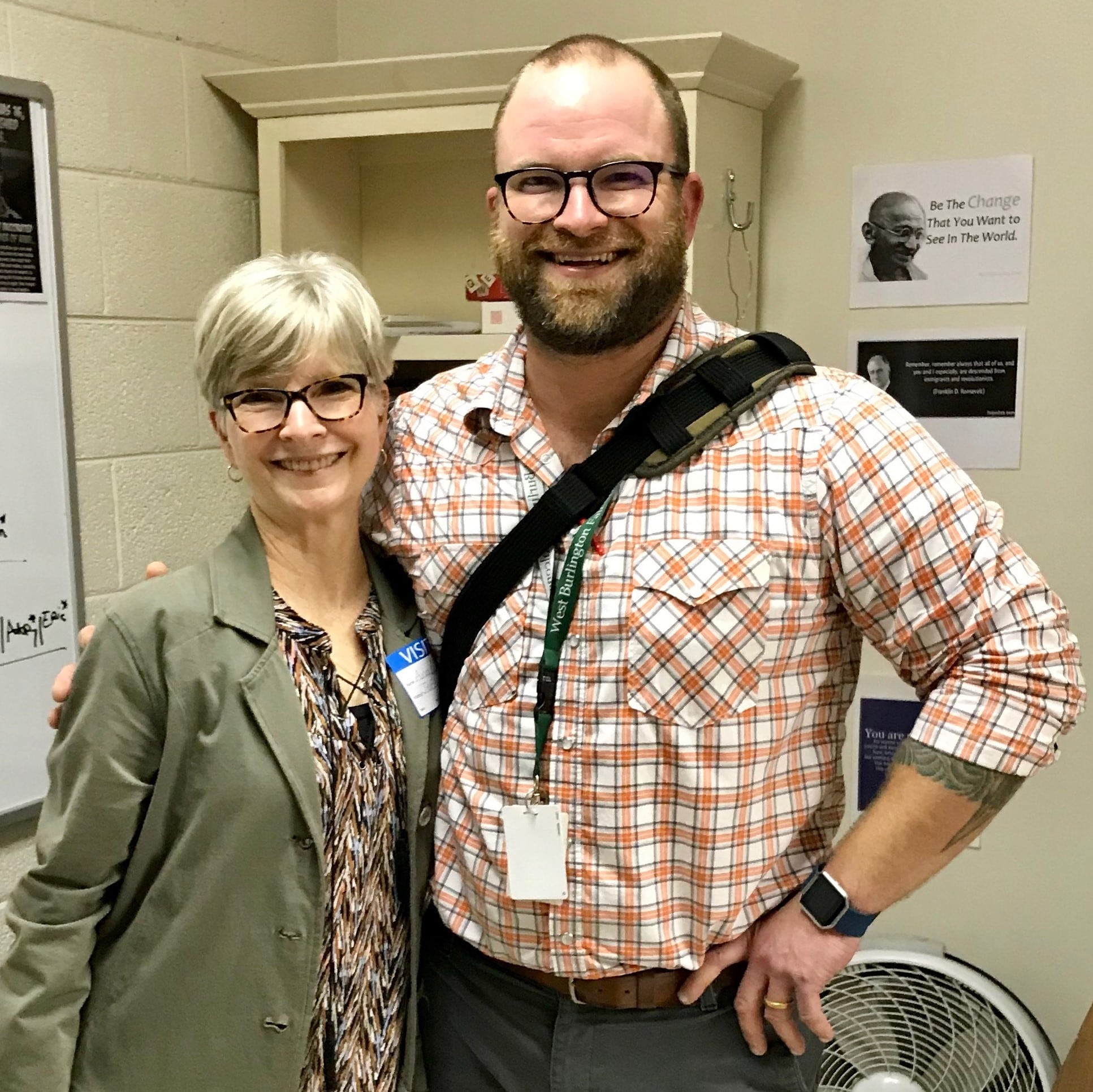
I will not whitewash our history. I will not allow the U.S. government to control our future generations’ thoughts and inhibit their ability to critically analyze OUR history.
The U.S. is an incredible nation, with a past built upon stolen land and the blood of enslaved peoples, a legacy that lives with us today.
The photo is of my mother and me. My mom was an educator for a couple of decades and she 100% agrees with our cause and my statements.

My 7th and 8th graders are smart, perceptive, and caring young people. They don’t want to be fed a whitewashed version of U.S. history.
They want to know the fullness of it, so they can come to a deeper understanding of where we’ve been, and how we can create a more just society and world.
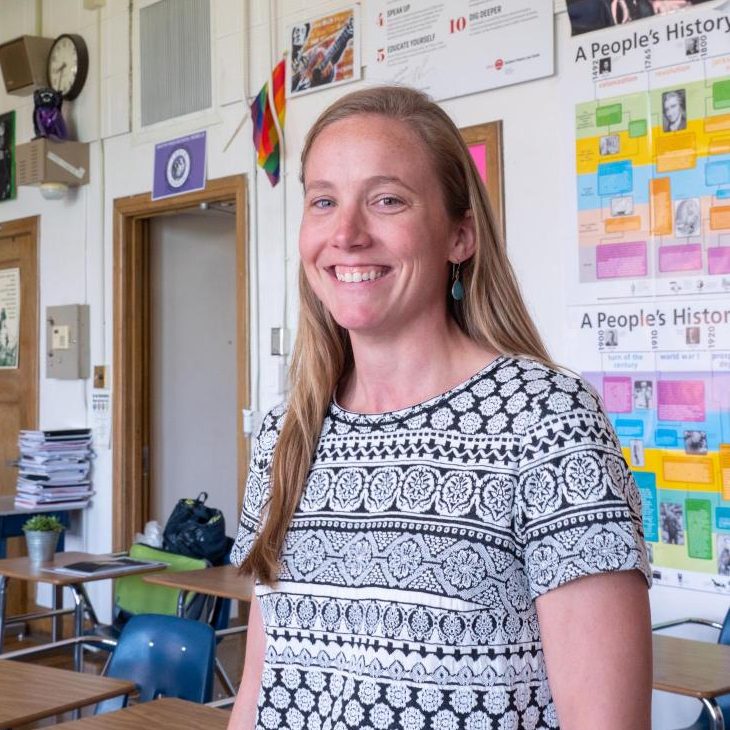
Providing young people with accurate information about this country’s past is the best way to help them form their own opinions about the present and future and realize their own agency in our society.
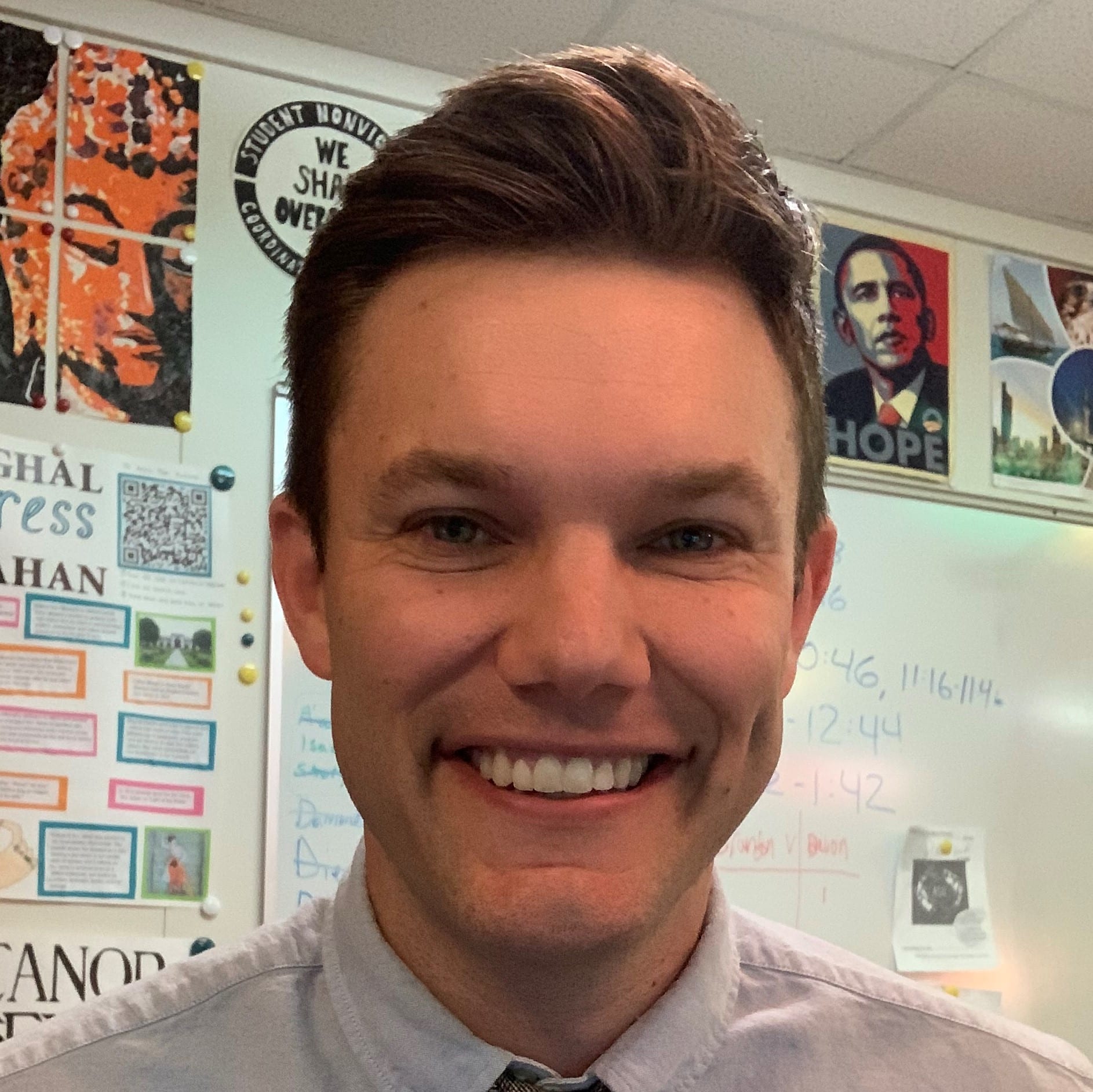
I pledge to expose racist mythology in every corner of the curriculum. I pledge to help students identify and expose the racist policies that have led to the deplorable racial disparities in American society.
If our society is to have a more equitable 21st century, all U.S. Americans must be able to contextualize Black suffering and articulate the history of injustice. Much structural change and healing is needed. As history teachers, we have an immense responsibility to confront racism and call it what it is.
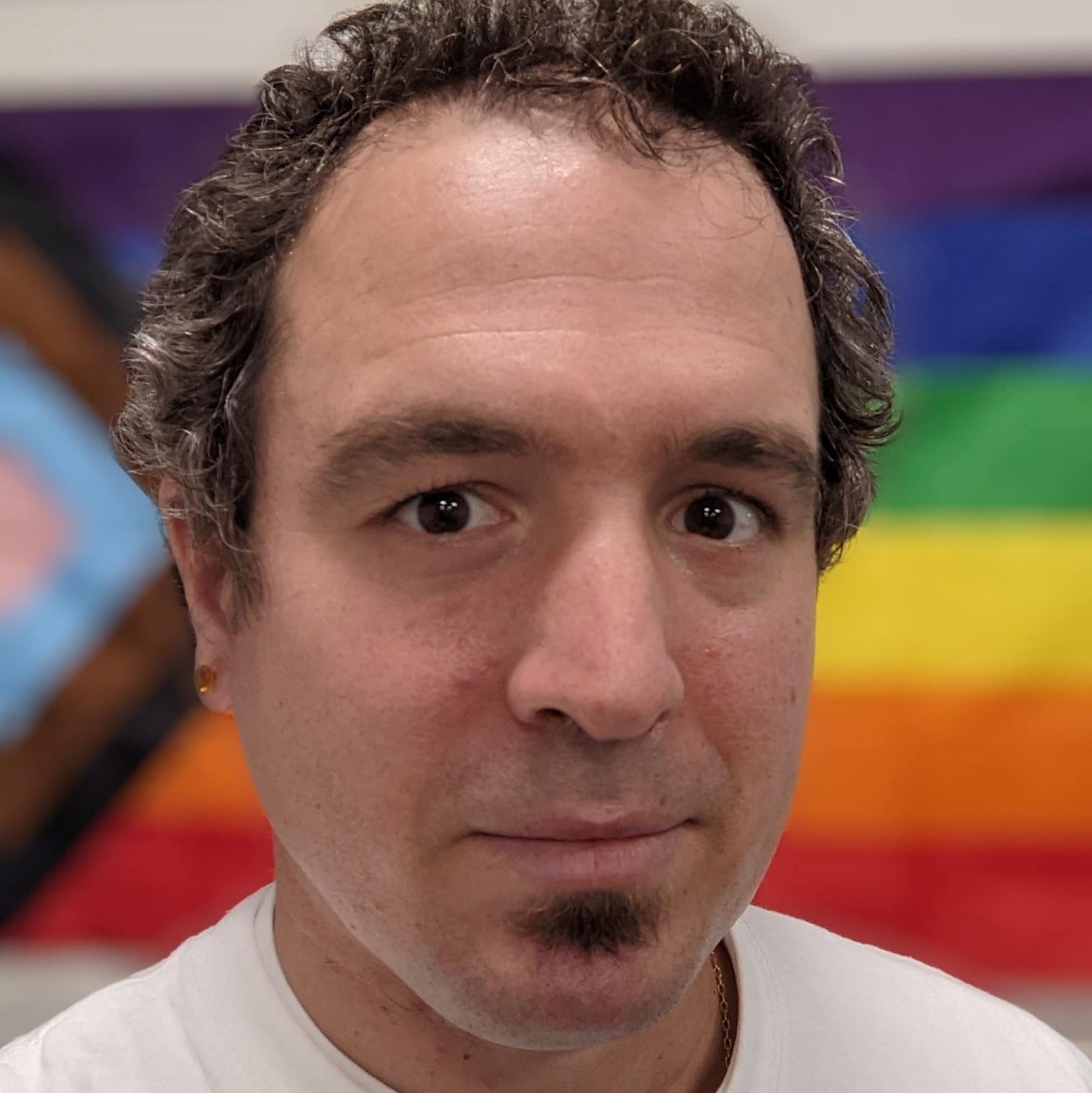
Without teaching un-apologetically honest history and the legacy that it has produced, we cannot complete our national Reconstruction.

I have a responsibility to build informed citizens not because they are responsible for the inequality of the systems or the tragedies of the past, but because knowledge is a power that belongs to all children.
Understanding the inequality of the system will help us make a stronger future together.

I was raised to stand up to bullies. These pieces of legislation are attempts to bully teachers into inculcating a whitewashed view of our country and its past. There is a lot that is right with the United States, and there is a lot that is not. It is our responsibility to share all of that with our students, and to inspire them to embrace the good and change the bad, and the wisdom to tell the difference.
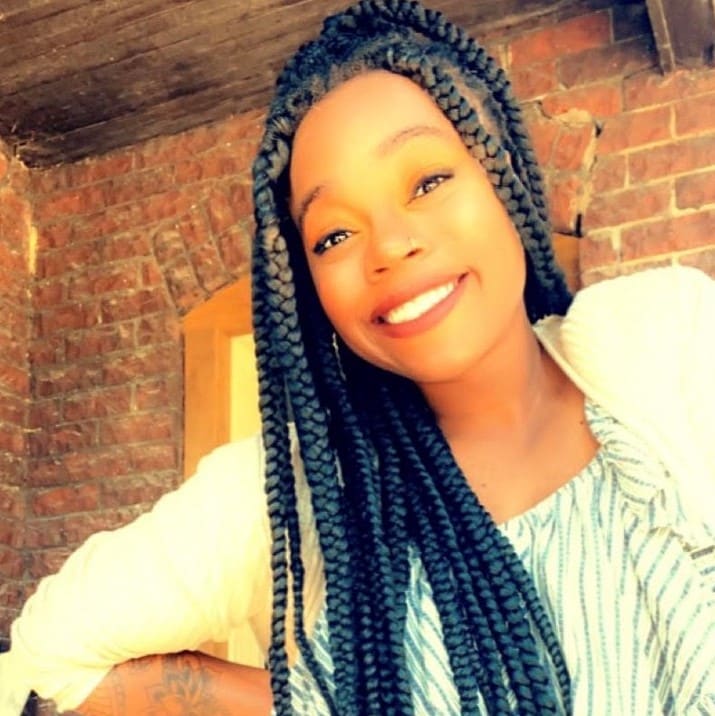
I will not simply comply with racist laws, or be disrespected, dismissed, and traumatized by administrators and political leaders who proudly inflict harm on BIPOC students, families, and educators across the nation.
In the words of Angela Davis, “I am no longer accepting the things I cannot change. I am changing the things I cannot accept.”
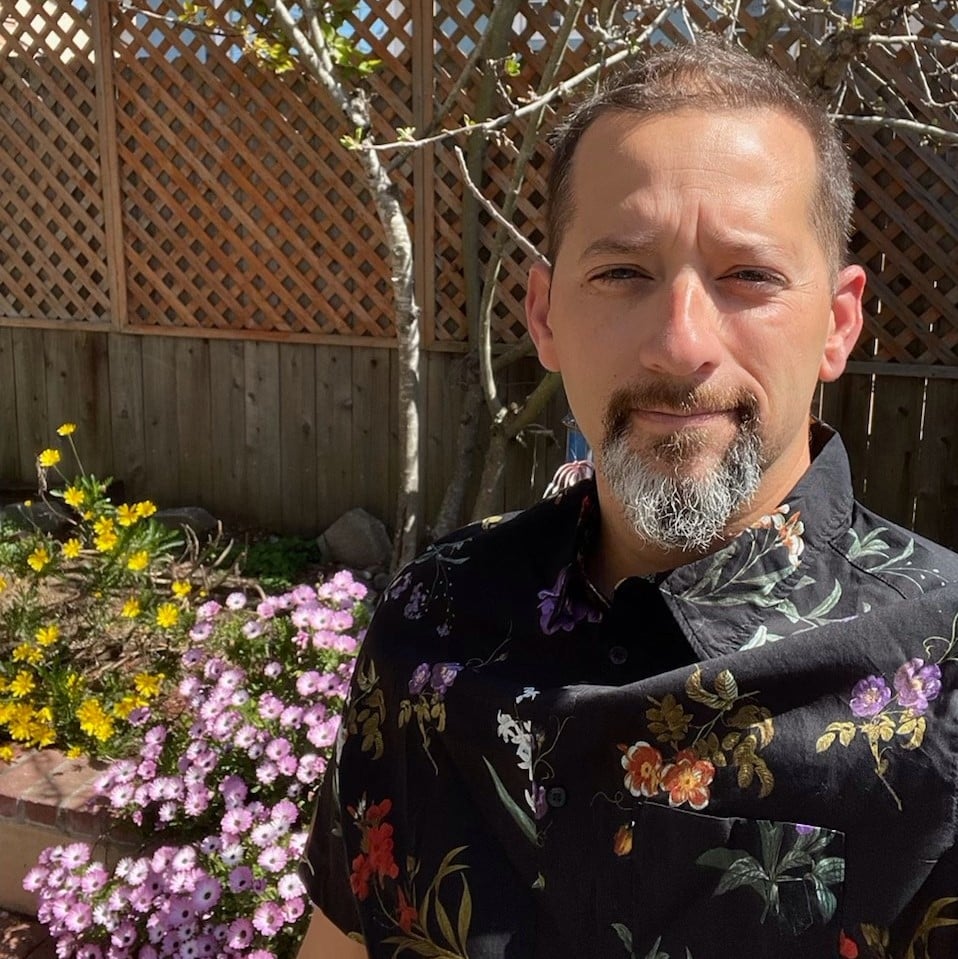
The teaching of history as a discipline and discourse requires us to have students contend with difficult historical truths that illuminate contemporary realities.
Beyond teaching the content knowledge and skill sets of historical reasoning, we have a moral imperative to courageously leverage what we know about the past, in all its pain, to have students engage in civic reasoning and discourse in order to include their voices and imaginations to help us heal.
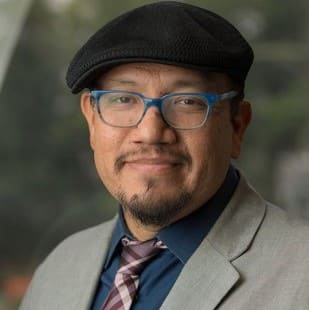
The claim that telling the truth about the United States past — as one that is soaked in colonialism and enslavement, AND collective struggle and abolition — is something ideologically radical is profoundly disturbing.
This nation will not be part of constructing a more just world if we fail to teach our students to think and act in critical and transformative ways in our classrooms and in our communities.
Let’s Keep Tellin’ Truth.
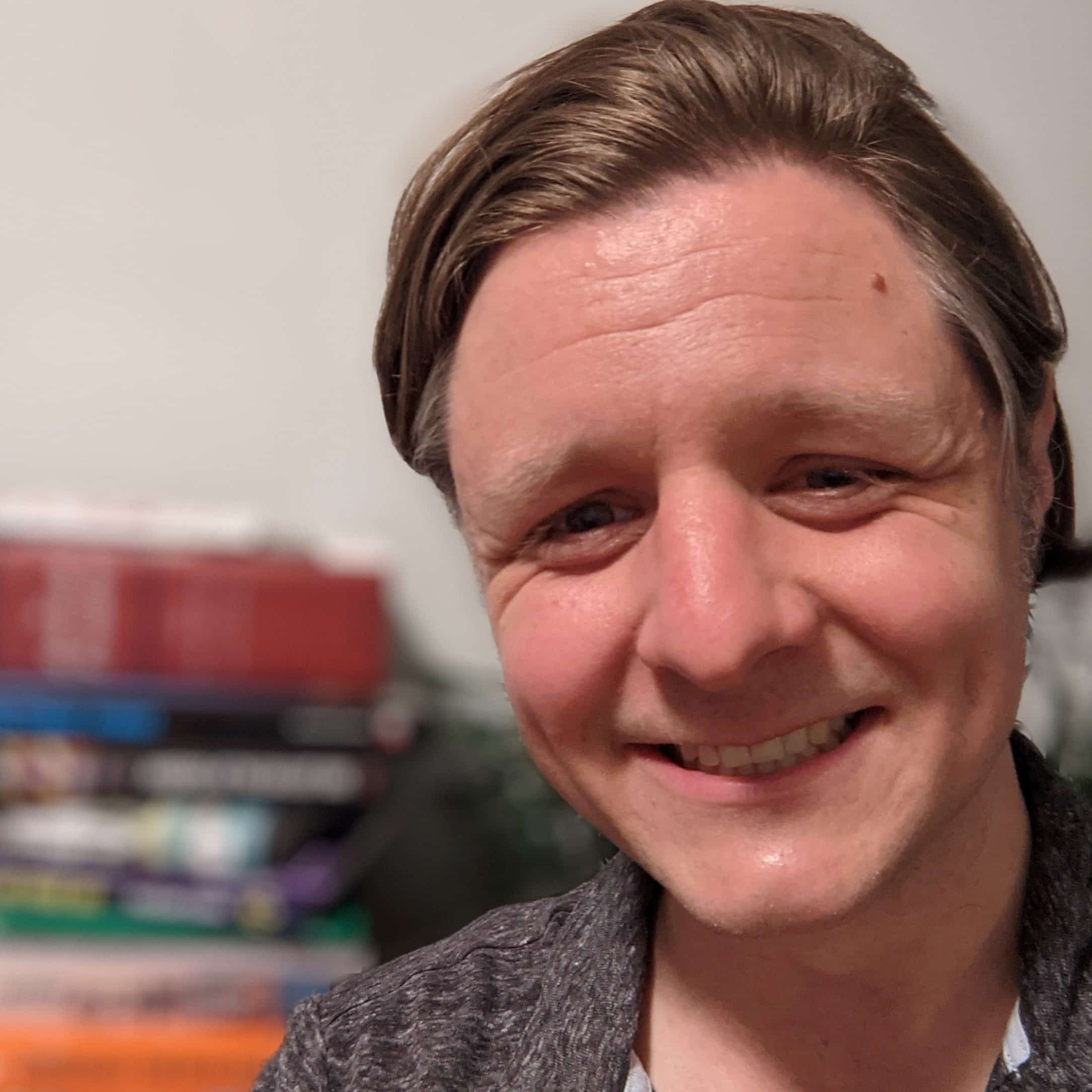
We must continue to work to dismantle white supremacy in our nation. Teaching and learning the truth about its past is one tool toward that end.
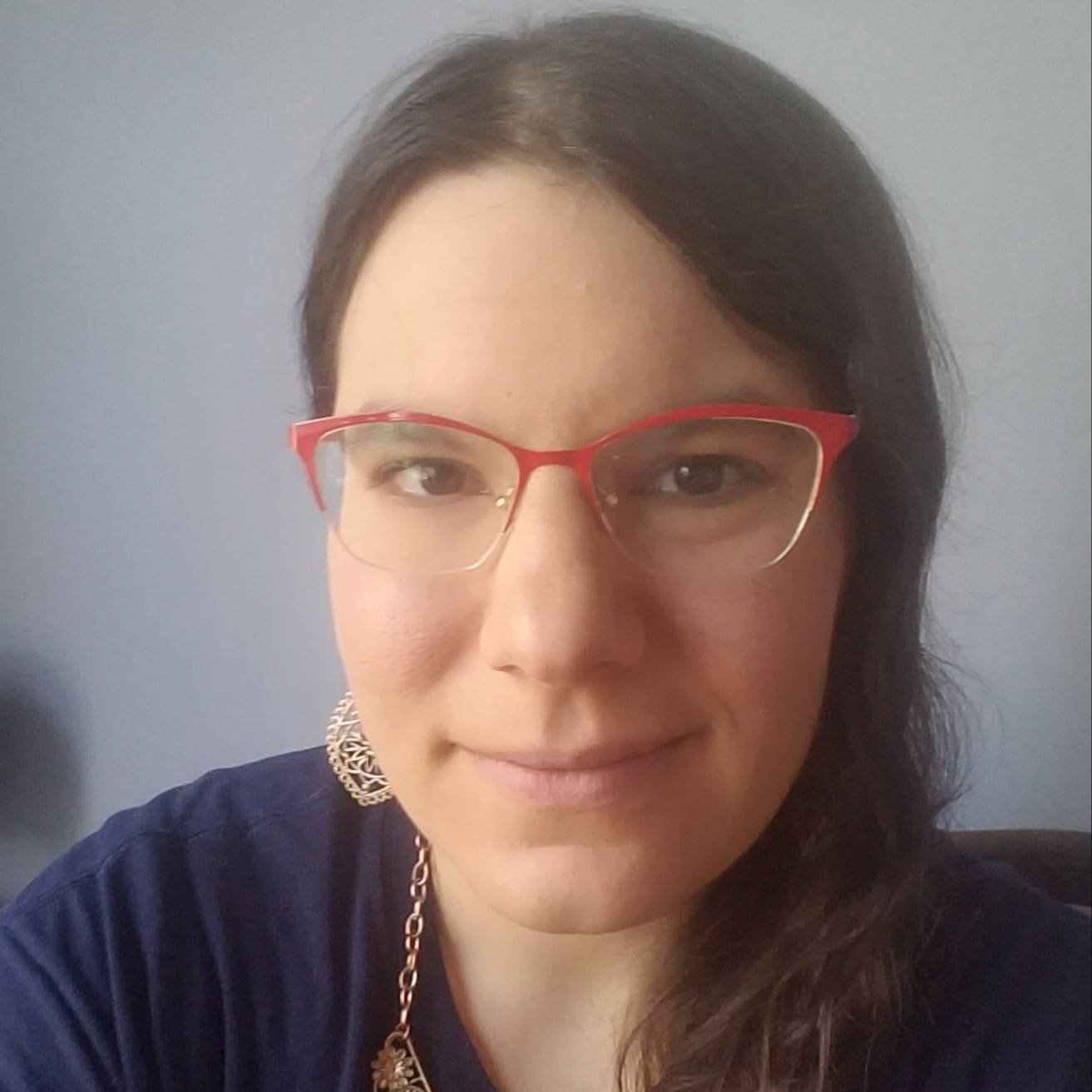
My students, despite facing racism and threats their entire lives, talk eloquently about their belief in the United States. They do this not in spite of my teaching them the awful and heartbreaking truths of our past, but because of it. Only these state legislatures appear to believe that racism and hate are so intrinsic to the U.S. that you cannot be a true American if you reject them. These legislators are telling on themselves.
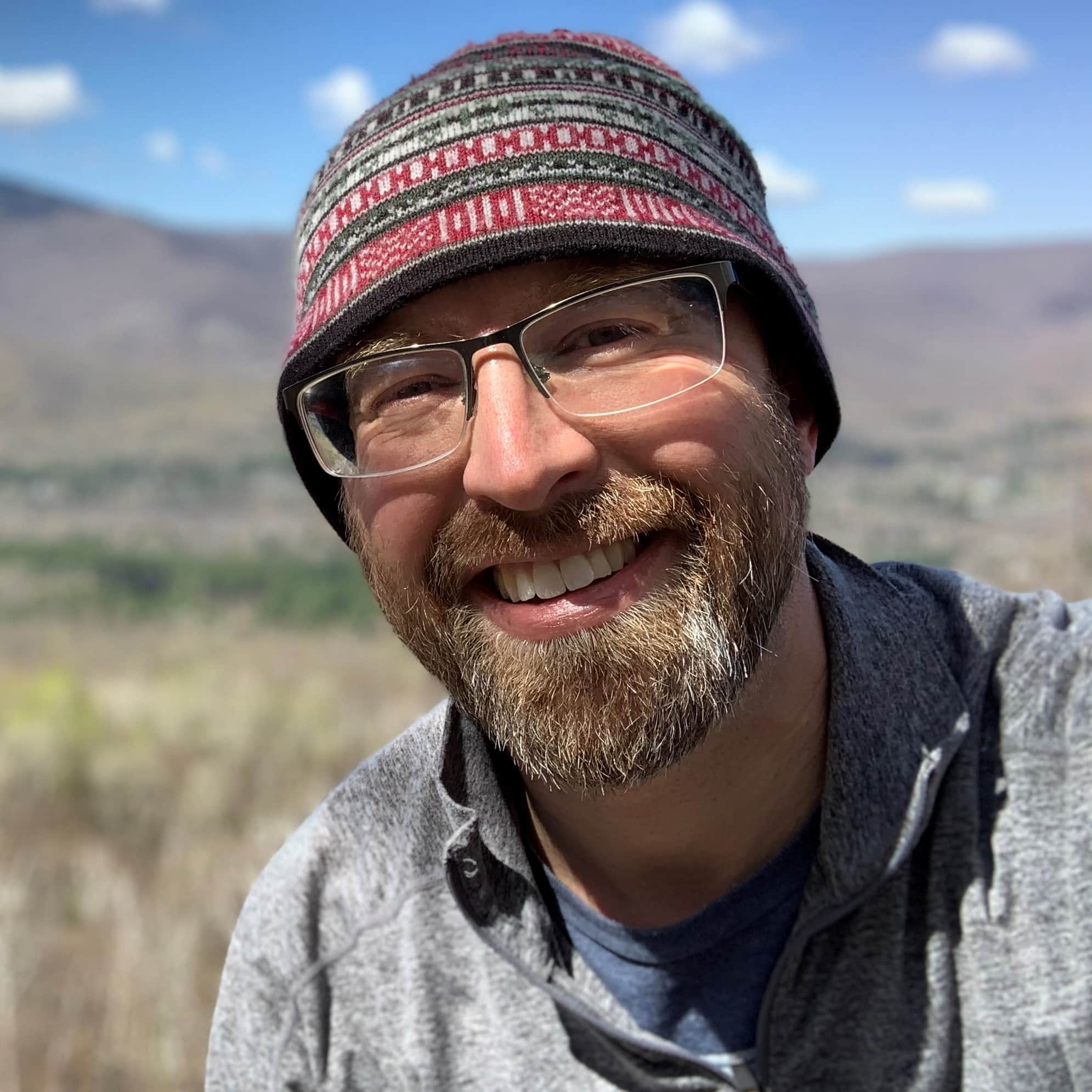
I refuse to lie to my students. I refuse to White-wash history. I refuse to “make America great again” by ignoring the deeper truths and darker parts of our history. I refuse to ignore the role of racism, sexism, heterosexism, and oppression throughout U.S. history and in current events. The only way to move forward is to educate.
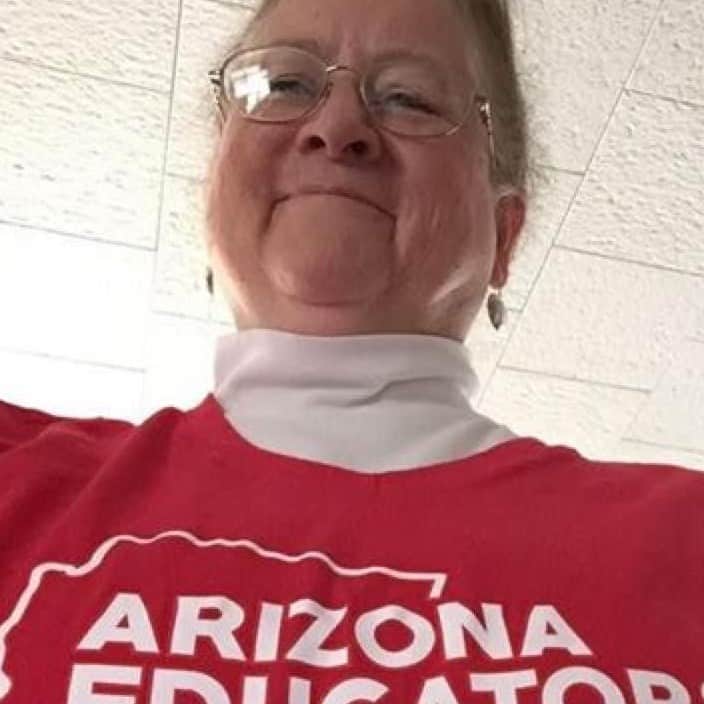
Teaching history is about making connections and helping students explore how we became who we are today. There is no room for lies.
Presenting truthful information to students, along with the tools to debate, evaluate evidence, understand nuance, and listen to others’ point of view is critical for democracy.
History is so important, but even more important is the ability to decipher the truth from nostalgia.
My students, mostly young men and women of color, need to know the true story of this country so they can find a way to live in it.
The side that is trying to eliminate the proper and truthful telling of history is only interested in maintaining power. Truth to power is real and I’ll fight for that and continue teaching my students (and my own children and anybody else that will listen) real history as I continue to learn it myself.
I feel that my country lied to me when teachers did not disclose the true nature of our history. The history books I had as a student reflected only progress and power, without describing how my country became a power through slavery and other colonial acts.
The men we regard as heroes in our history books are often the ones who brought about the most destruction and pain to others. We owe our children the truth.
As a teacher, I want to be part of the healing that needs to happen in this country. However, that is not possible unless we honestly examine the nation’s history and collaboratively commit to repairing the trauma of colonialism.
I teach math and numbers don’t lie. The playing field is not level and the systems have not treated all people equally. Pretending it is so will not make it so.
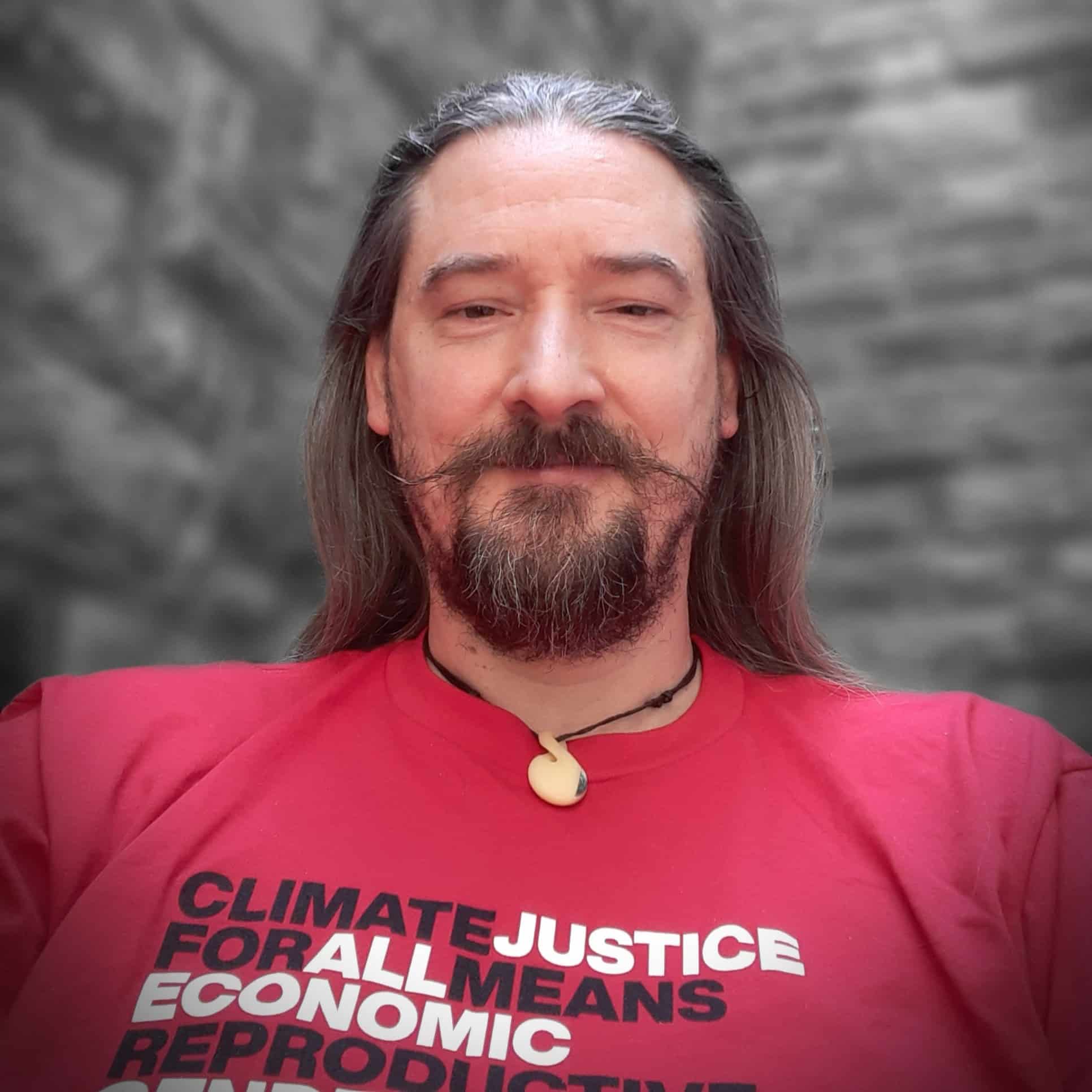
Students need to know historical truths, no matter how uncomfortable or ugly they are. Any attempts by state and national politicians to restrict, silence, or whitewash historical truths must be fought against and resisted — such as attacks on teaching the realities of Indigenous land theft and anti-Black politics that are deeply tangled up with the founding of the U.S.
Until we finally come to terms with the full extent of this history, the deeper social changes we need will remain out of reach. As an educator, I’m committed to doing my part to ensure students learn these hard historical truths.
I refuse to teach the narrative that has been created to make it seem like there is only one group that matters and that has made long-lasting contributions to our nation.
Working in a very diverse district, I want my students to know that they matter and they are a part of their country’s history, too.
I will not be complicit in the effort to cover up the real history of this nation and the deleterious effects of that history on the peoples it oppresses.
As a teacher it is my duty to teach my students to think reflectively, critically, and creatively about all things. This is especially critical when it comes to the history and present state of the United States. I would be failing them if I did not teach them to ask questions, dig deeper, and uncover the things that we are not so proud of.
A citizenry that cannot see the defects of its nation is helpless in making it a better place for all. We must move forward to build a more perfect union even if it is uncomfortable, embarrassing, and challenging. As with all of life, change can be painful, but it is necessary for progress.
Teachers are meant to teach, and there is no knowledge without honesty, so I will teach with honesty and hope for a better future for my students and my country.
I never learned about Japanese American internment camps in high school even though I live 2 hours from Minidoka.
Japanese internment camps are finally in our standards and my students learned about it this year. They appreciate not being lied to, and like me, they know when they have been deceived. We will not go back. I will not lie to my students. I will continue to teach the truth.
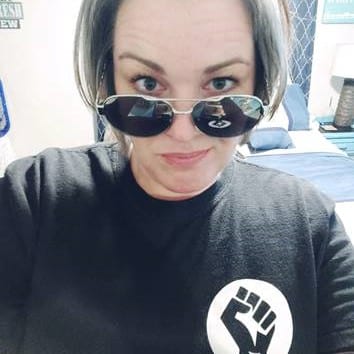
I know how conservative media describes the work we are doing as something negative and something to be feared, causing confusion to the public, including teachers as to what should and should not be taught in the classroom. However, education is not about telling students what to think, it’s helping them develop the skills on how to think critically about the world around them, enhancing their curiosity.
The only way to help students understand the present world is to gain a more accurate understanding of our past. We should ask what stories are missing and why. Who had a voice and who did not? Who did the voices from the past benefit? Who was harmed? The first step in the problem solving process is to define the problem. If you cannot accurately define the problem, then the solutions proposed will not work.
Teaching the truth about our country’s history is beyond important and it boggles my mind that we are even debating this. I will always teach my students the truth about our country because everyone has a right to know!
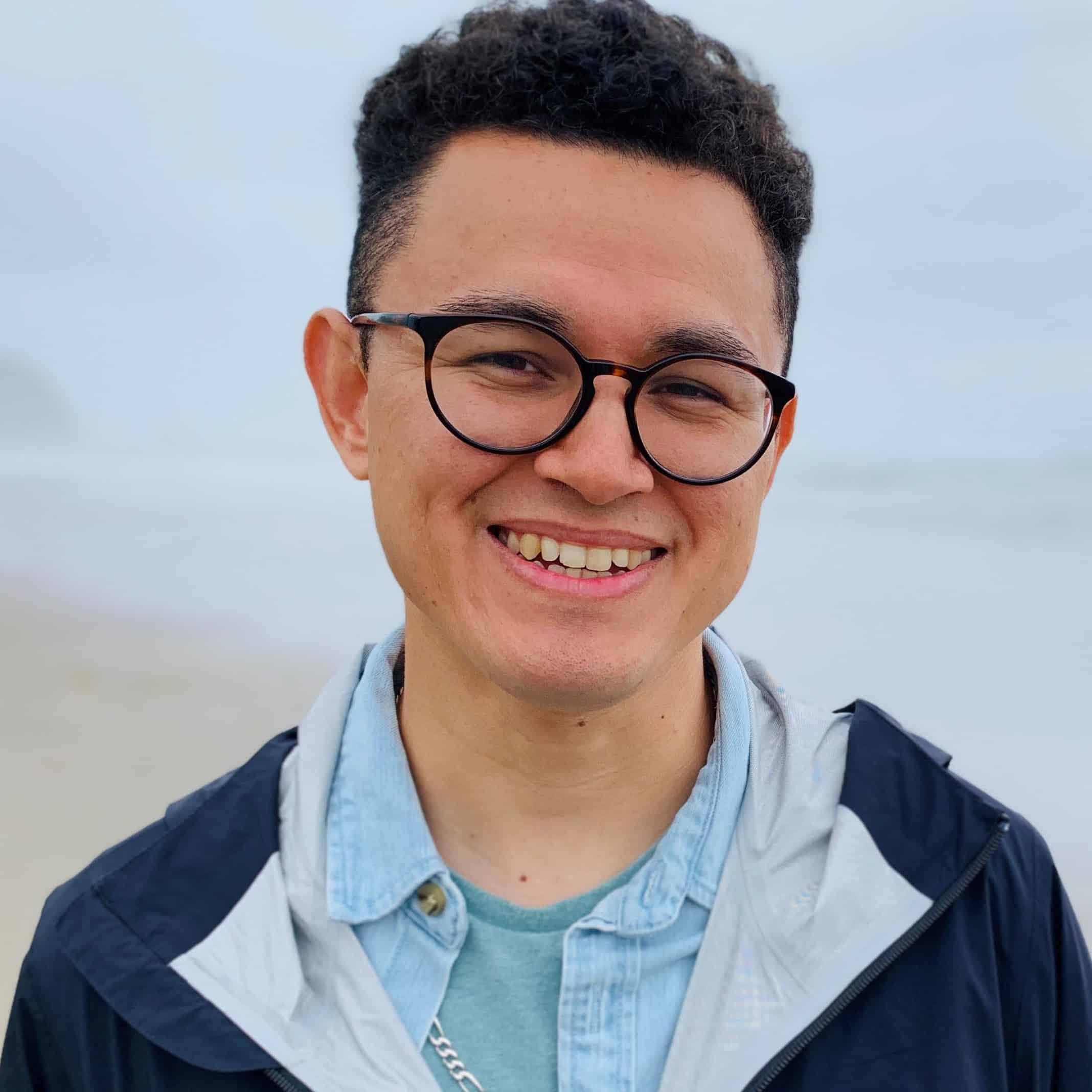
As a kid, I was taught a version of history that was void of my people, the injustices we’ve endured, our struggles, and our triumphs.
I refuse to continue this cycle of oppressive education that damages our students’ potential, especially our marginalized students.
This laughable attempt to censor knowledge cannot stand. I refuse to sit idly by while the world of alternative facts tries to change reality.
Seeing my students parrot the pledge of allegiance out of a compulsory sense of community, hearing the words “and justice and liberty *for all*” ring so, so hollow . . . to see people putting blinders on with such determination is very problematic, not to mention childish. I encourage all of my fellow educators to read Charles Bukowski’s letter on censorship.
Our children must know the past in order to impact our future.
This is long overdue and needs to happen. The amount of my students who tell me “Why DIDN’T I learn this in school?” “Why did I have to learn this in college?” is unending.
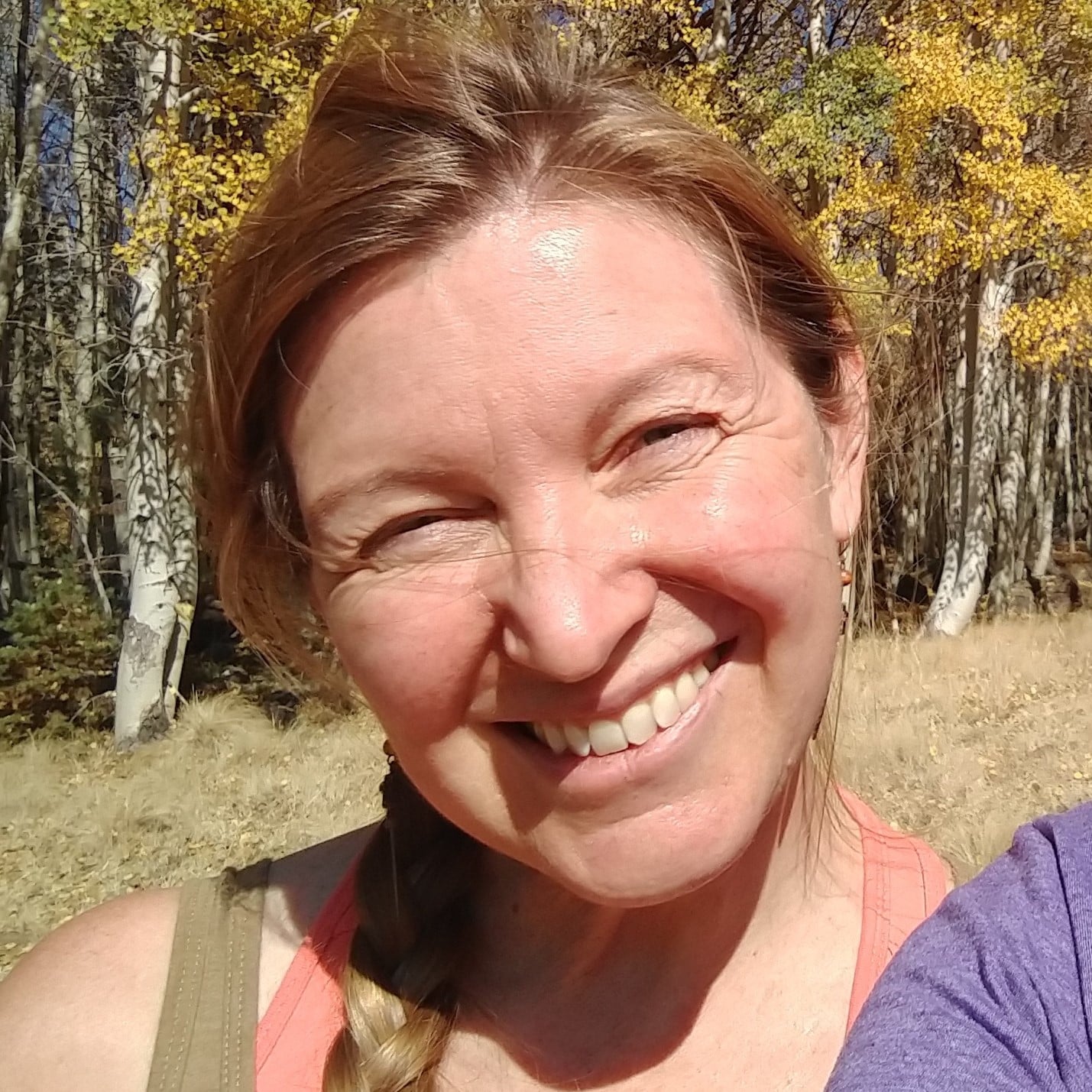
Healing the rifts in society requires empathy, which in turn requires an accurate history of how those rifts came to be. We must face our past in order to create a better future.
I have a responsibility to my students to teach them about the long-standing forces of oppression that continue to shape our country and world today, as well as the ways groups have worked to face head-on and dismantle these forces.
We cannot provide real and lasting change in our country and communities, if the history behind current systemic problems is not confronted. We have a responsibility to tell the truth, the whole truth, and nothing but the truth.
History is too important to let reactionary politicians control. Our students and nation deserve better.
I’ve always taught the truth regardless of the law or the state curriculum. That’s why I got into teaching history.
It is a sin to lie. When the government creates laws to oppress thought and actions in it oppressive and abusive. I will not sin, be oppressed, or abused. I will not be a part of a fraud.
Silencing the perspectives and experiences of Black people and people of color, to maintain the status quo, is what white supremacy and the propagation of racist systems looks like.
As Kendi says, denial is the heartbeat of racism. It is only through an honest and truthful reckoning with our history that we can choose an anti racist future.
Children deserve to know our history and how to prevent it from happening again. Knowledge is power.
I will ensure my students are prepared to be highly effective educators, meaning they are well versed in accurate understandings of history and will utilize quality pedagogical practices to ensure all identities are welcomed and accepted and taught within their classrooms.
I will teach the truth and make my voice heard.
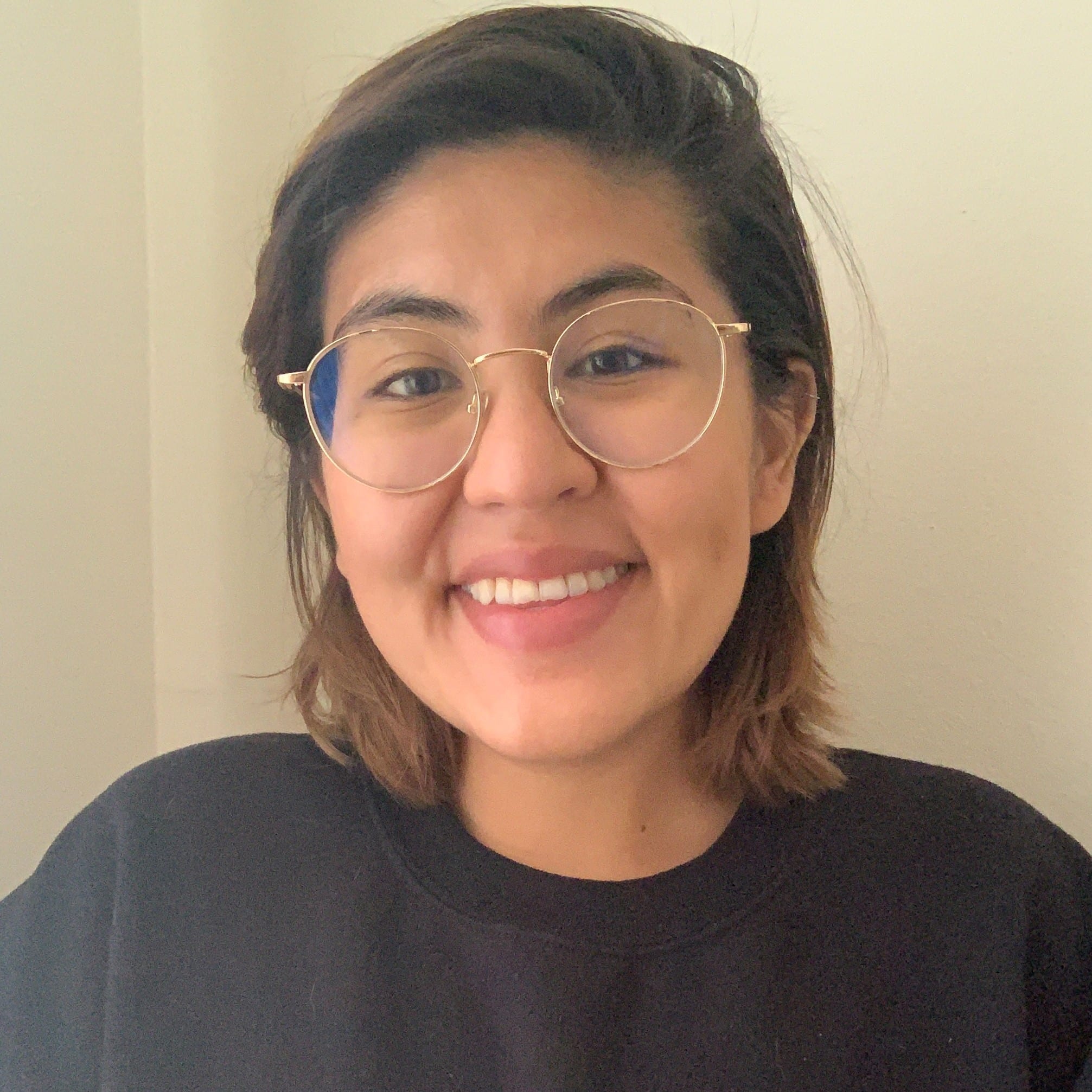
As an educator of ethnic studies, it is so essential that I teach my students the true history of Black, Brown, and Indigenous people in the United States and around the world. I will not stand down as legislators try to hide the truth from our students
We must tell the truth or we are a part of the crime. If the United States is to be a truly Great America, her sins and the people who are guilty must be known. And repairing the brokenness starts with being truthful, and accountable. Truth has come to you.
Students without the truth of their history are misguided and have no sense of pride.
I have tutored students and discovered that they didn’t know about important events in history — The Trail of Tears/Indian Removal, Black Wall Street, Residential Schools, Reconstruction, etc. This can’t continue.
History should be taught through the full scope of its facts. Albeit unflattering to some ethnic groups, the complete and honest stories of the American past should be taught so society and our growing youth have a clear and honest understanding of U.S. history.
I am concerned that my state’s recent legislation will stifle my ability to teach students about how they fit into our histories and why they fit where they fit in society today.
Being white is not mutually exclusive to the goals of contextually teaching the reality of various American histories and the roles of various groups within that history. Young people understand this, and it is our job to be both thoughtful and critical when we have discussions about race, gender, class and other methods of social classification.
Having the state of Florida legislate teaching by eradicating the voices of minorities is scary, and while it might just be happening in the social sciences today, the path is now open for this kind of regulation to happen in all disciplines.
Rather than placating adults who are scared of systems and change, we should be teaching our students how to dismantle the systems and look at the world from a different lens. We should learn from the past so that we do not repeat it!
Freedom and justice for all require truth, restoration, reparation, then reconciliation. Teaching complete, if contested, histories of social systems and civic governance is an indispensable predicate to shared and lasting peace in Beloved Community.
Political positioning and government overreach should never be allowed to dictate the instruction of a trained educator.
I pledge to teach the truth, regardless of what was passed in June 2021 by the Florida Board of Education and signed into law by Governor DeSantis. My students deserve nothing less.
My students are capable of learning and thinking critically about a diverse range of subjects.
I will not lower my expectations of them or the quality of my instruction in order to appease the fickle winds of political favor.
Our nation’s true story must be told. We cannot hide from the truth. We can only heal and move forward when ALL voices have been heard and stories shared.
We must create the opportunity and structure for our students to become critical thinkers. We absolutely have to provide them with a variety of viewpoints and experiences from our storied past. Only with this added perspective do we truly have a chance to continue to build to a more perfect and inclusive ideal.
How can we truly solve a problem without looking at all the factors in a critical way? We need to build a shared lexicon that allows for thoughtful and nuanced discussions on how to mitigate our past and the best way to build our future.
I refuse to lie to my students about U.S. History.
Iowa has passed a law banning the truth and I can’t stand for it.
It is unethical to withhold truths from our students and for an entity of government to expect educators to change our history.
It is our duty as educators to provide facts and allow students to develop their own opinions and beliefs.
The idea that teachers should be limited in what they teach based on an incorrect perception of ‘critical race theory’ is unacceptable. It is a thinly-veiled attempt to avoid huge swaths of U.S. history and its role in persistent racist behaviors, as a culture and as individuals.
Hiding the truth from children will not make them responsible, critical-thinking adults. Teaching a variety of perspectives is necessary for students to take in the entire picture of events and make decisions based on all the information available with consideration for all stakeholders involved.
Give students the truth and teach them to think critically about their history and the world.
I believe in academic freedom. The truth of our collective history is key to upholding the democratic traditions of our country.

I believe our children have a right to know the truth, no matter how painful or messed up it was. We can’t teach them so young not to lie and then turn around and do the very opposite.
If those who are trying to omit the truth believe it was right, then why not embrace it? Allow generations after us to know what happened. It can bring about positive change in this country and also the world.
I refuse to allow history to repeat itself through ignorance and allowing hate to fester.
It is IMPOSSIBLE to teach a song like “Follow the Drinking Gourd” without explaining why it’s a code song or why it needed to be in code.
The smart students will NOT accept “have your parents ask your legislators” as an educated answer.
Kids deserve to know the truth. There is simply no way to understand history of you don’t know the whole story.
Talking about race in my classes is important in order to help my students think critically about the society in which they live. They have to understand it, so when they graduate they aren’t shocked to find out that school sugar-coated the truth.
I pledge to teach our state and national history with truth and accuracy.
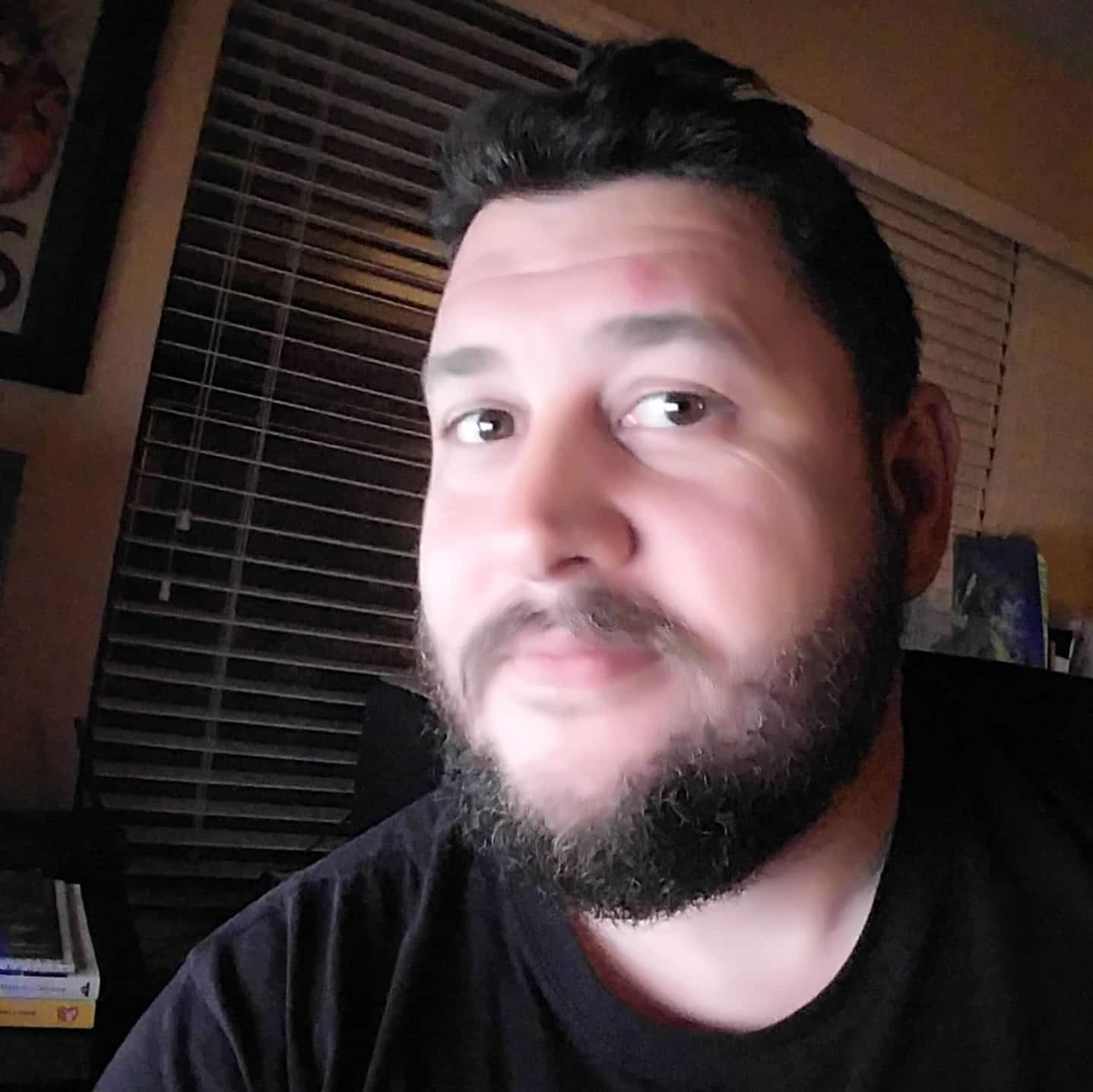
Teachers should always be committed to teaching the truth, even if that truth makes us uncomfortable and forces us to confront our nation’s imperfect past.
Adopting laws that actively promote denial and ignorance is a strategy that will not move society forward. My best guess is that very few teachers will actually conform to these new mandates. Many of us will respond by increasing class time spent on critical race theory, structural sexism, and LGBT oppression.
I want my son, and my students to learn to think critically about the world. Whitewashing history will not prepare them for adulthood and their lives outside of school, and outside of their parents.
This proposed legislation is based on fear and it promotes deception for the sake of increasing political power.

We will not truly heal as a nation and make progress on understanding each other until we discontinue the sugar-coated history in our classrooms, use an equitable lens to teach our youth about oppression as well as the resilience of peoples, and honestly reflect on our past and how these events affect current events.
History must be based in comprehensive fact, not just the cherry-picking of easy truths.
It is critical, to the future of all people in the United States, to teach the unvarnished truth about our past.
If we continue to pretend racism does not exists, then hate and violence will continue in our society. If we don’t talk about the past we cannot change the future. One political party is controlling the education system and the rhetoric and it will damage the public education for students learning history and the truth. We should not be suppressing history even if it’s painful.
My students deserve the truth — always, not just when it’s convenient for politicians.

I am a teacher, but specifically I am a teacher to incredible immigrants to our country. All of my students’ first language is Spanish and/or Indigenous. They deserve to know our history, especially as it pertains to their rights and their peers’ rights. We cannot mask the truth. We must face it head on and discuss it as individuals and a community.
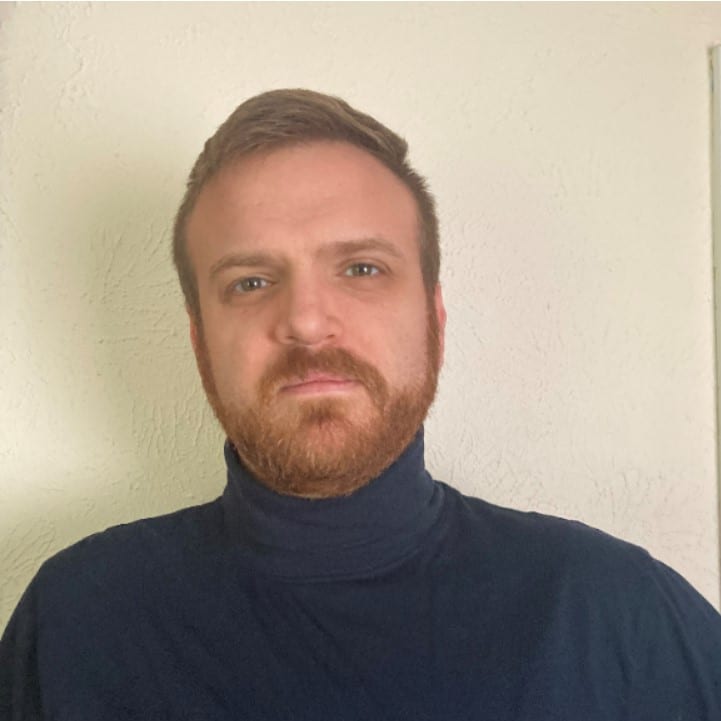
Students need to know the wonderful stories of the brave folks that fought against systems of oppression and sparked hope and solidarity for the creation of a freer, kinder world.
“The truth will set us free.”
There must be truth telling in order for there to be justice, peace, and reconciliation.
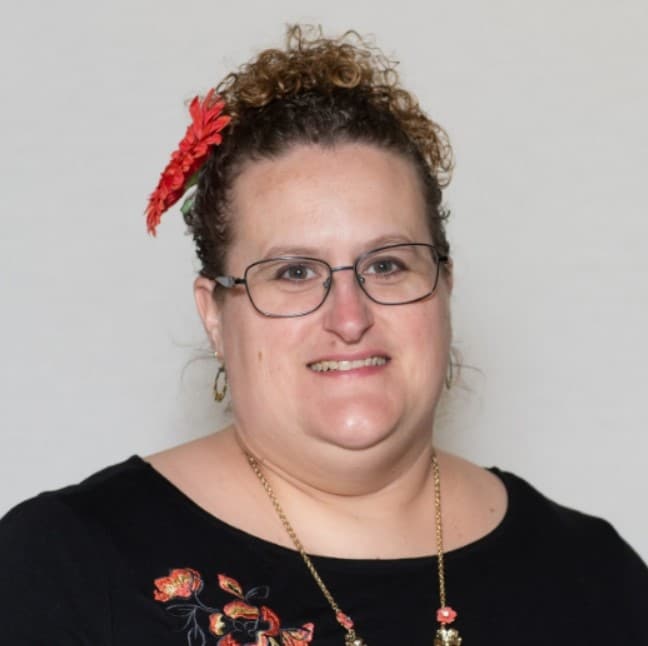
The history of BIPOC isn’t just their history, it’s OUR history!
Often, the contributions of BIPOC are overlooked, not shared, downplayed, or wrongly attributed, sometimes on purpose, to white people. Not only is it wrong and unjust, but doing this takes away role models for our students who are BIPOC. It also doesn’t allow white students to likewise see the valuable contributions people who aren’t like them have made.
History offers us a way to see ourselves and where we have come from. Distorting this mirror means denying ourselves a truthful and meaningful identity. Teach truth, love justice.

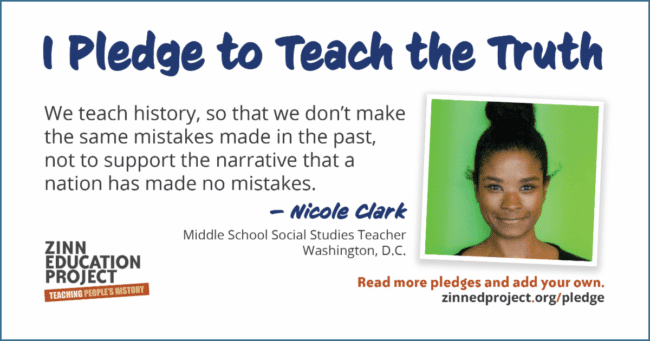
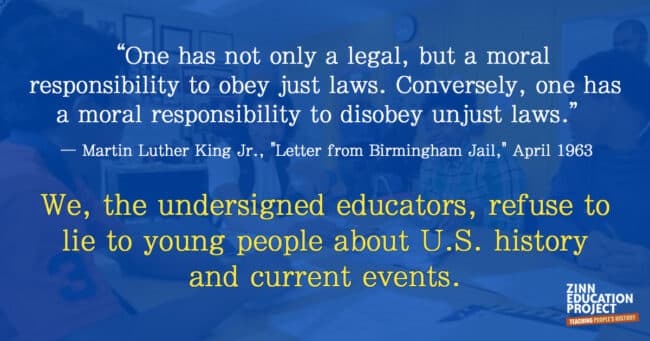
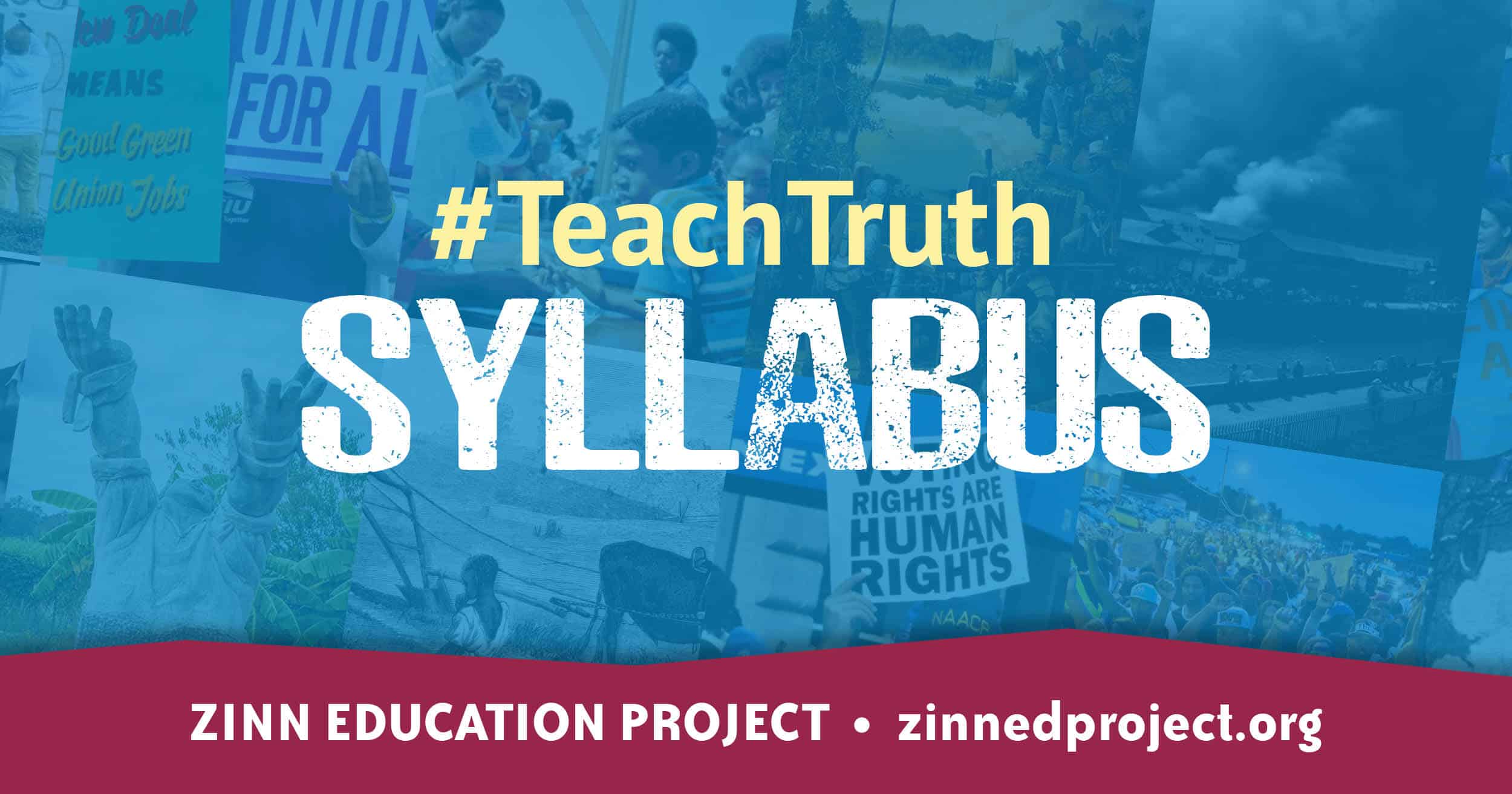
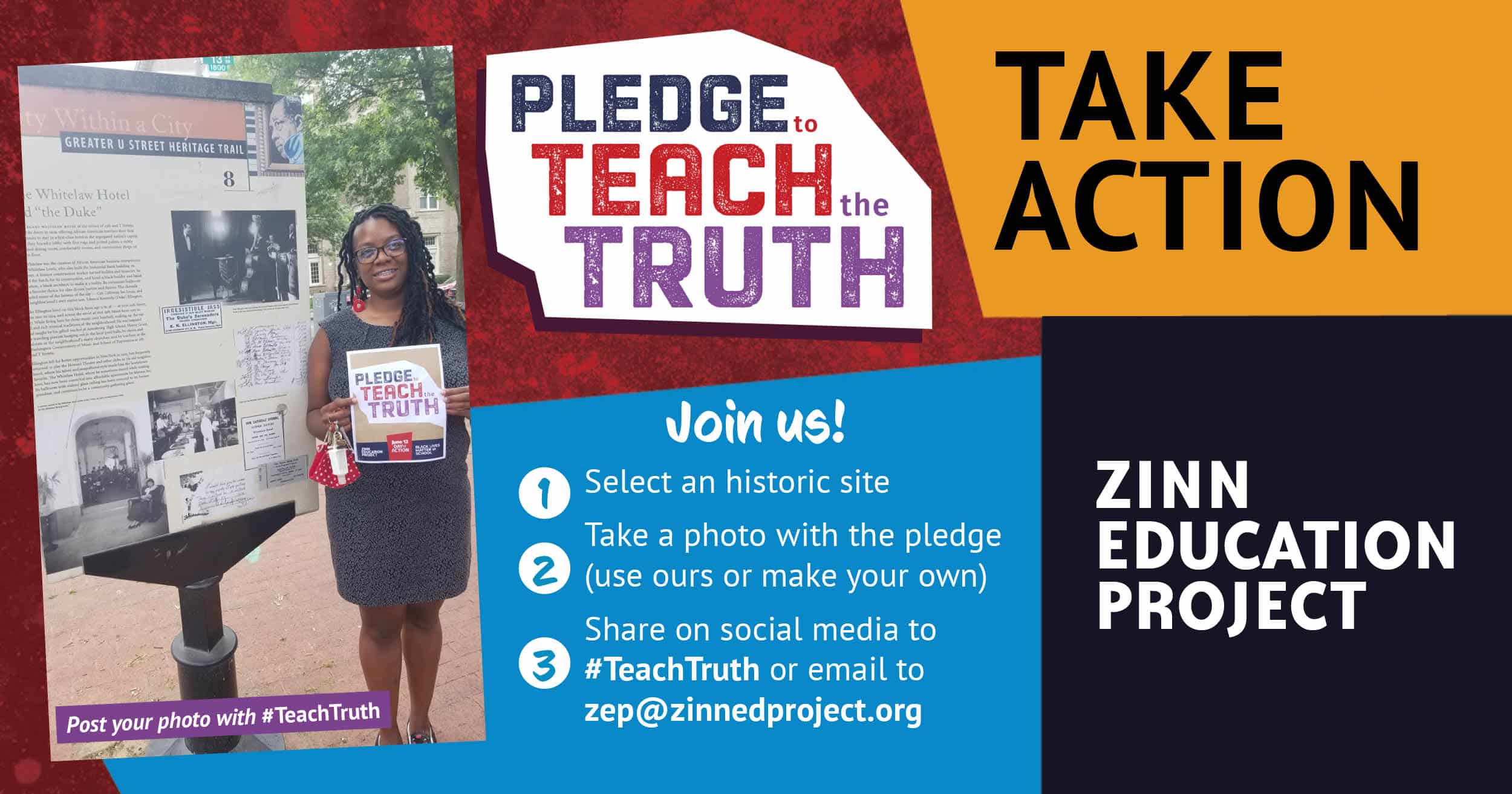





Being an activist at what is now Midtown High School in the mid to late ‘60’s in Atlanta changed my life. As a art teacher in Massachusetts for 25 years, I did not hold back when it came to social justice. After meeting him at a Boston Anti-Iraq War Rally, Zinn graciously accepted an invitation to speak at Salem High. The auditorium was packed and never as quiet before. Now retired but substitute teaching and seeing the ramping up of right wing hate speech and intentional misinformation, I’m forever compelled to spread the truth. My dream for over 50 years has been the forward movement of social justice, never anticipating this grossly anti-democratic backlash. I cannot, will not stay quiet!
As Cesar Chavez said,” Preservation of one’s own culture does not require contempt or disrespect for other cultures.” It is critical that our students see themselves as valued members of our society and of our history. This country was built on the backs of people of color and its true history must be shared. The white washed history we teach in schools needs to be a thing of the past!
All students need to know the truth about history, So history does not repeat itself. We know better, we do better. Tell the Truth!
Learning our true history is vital because it gives us a sense of our true identity and as the Black Panther Party taught us “If you do not have knowledge of yourself and your position in the society and in the world, then you will have little chance to know anything else.”